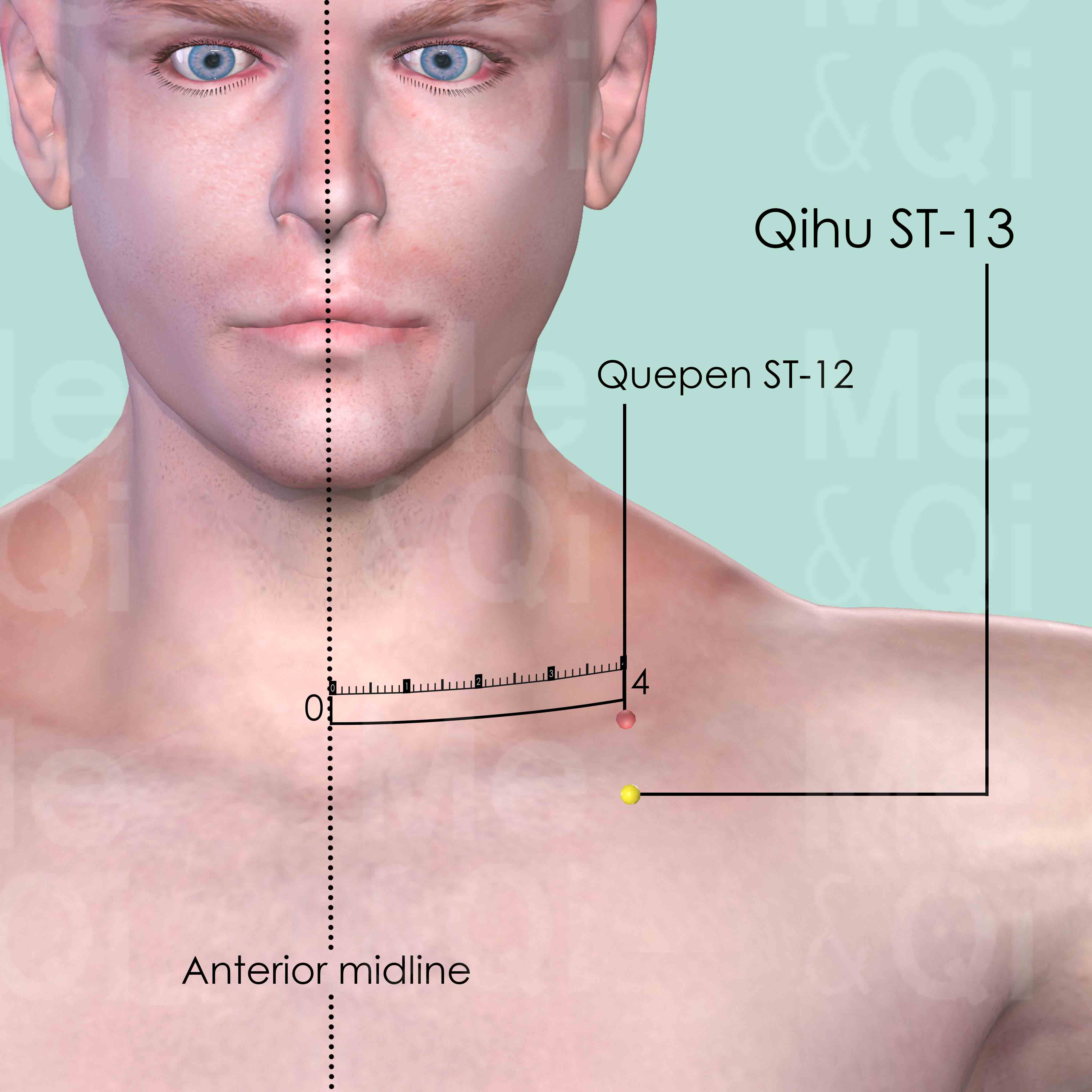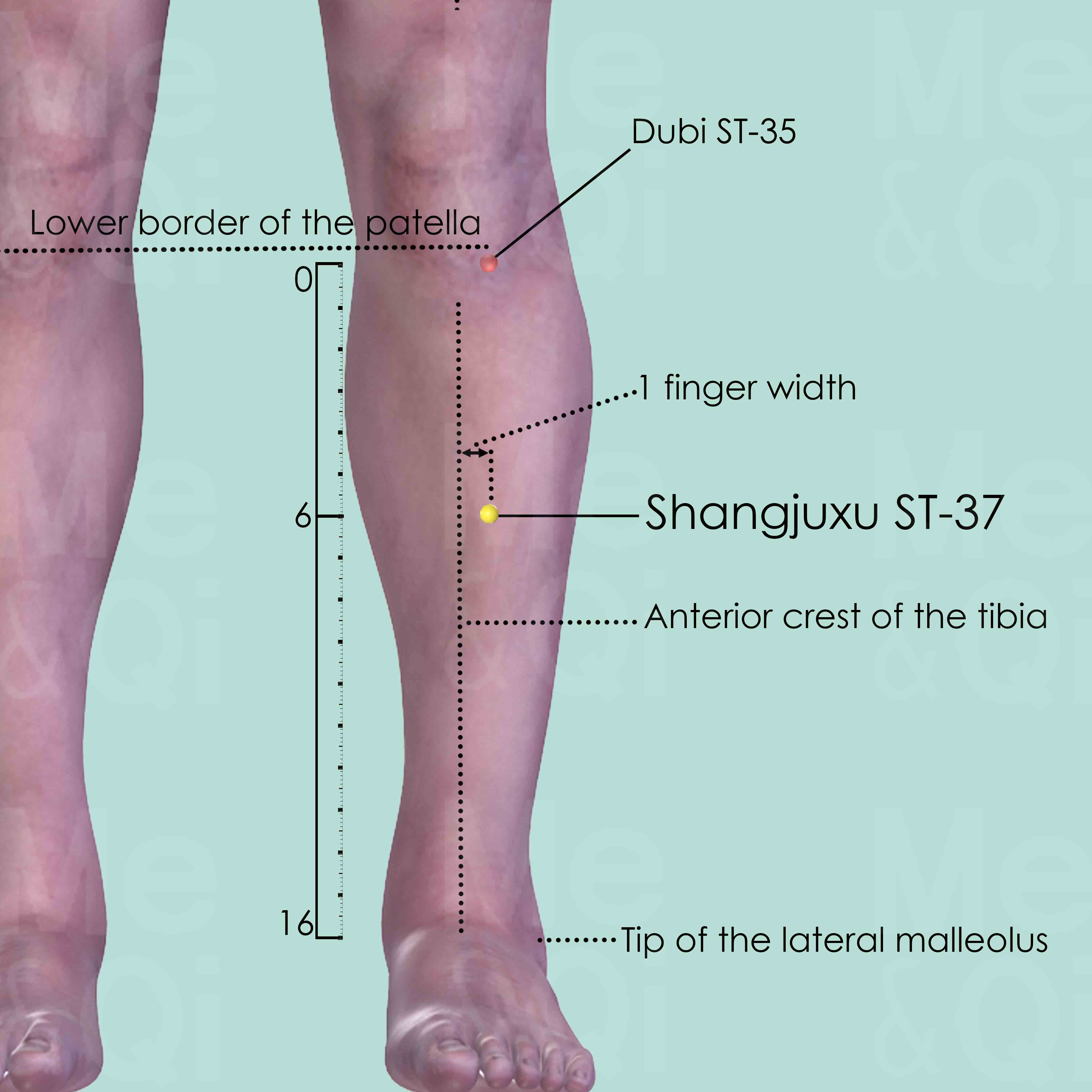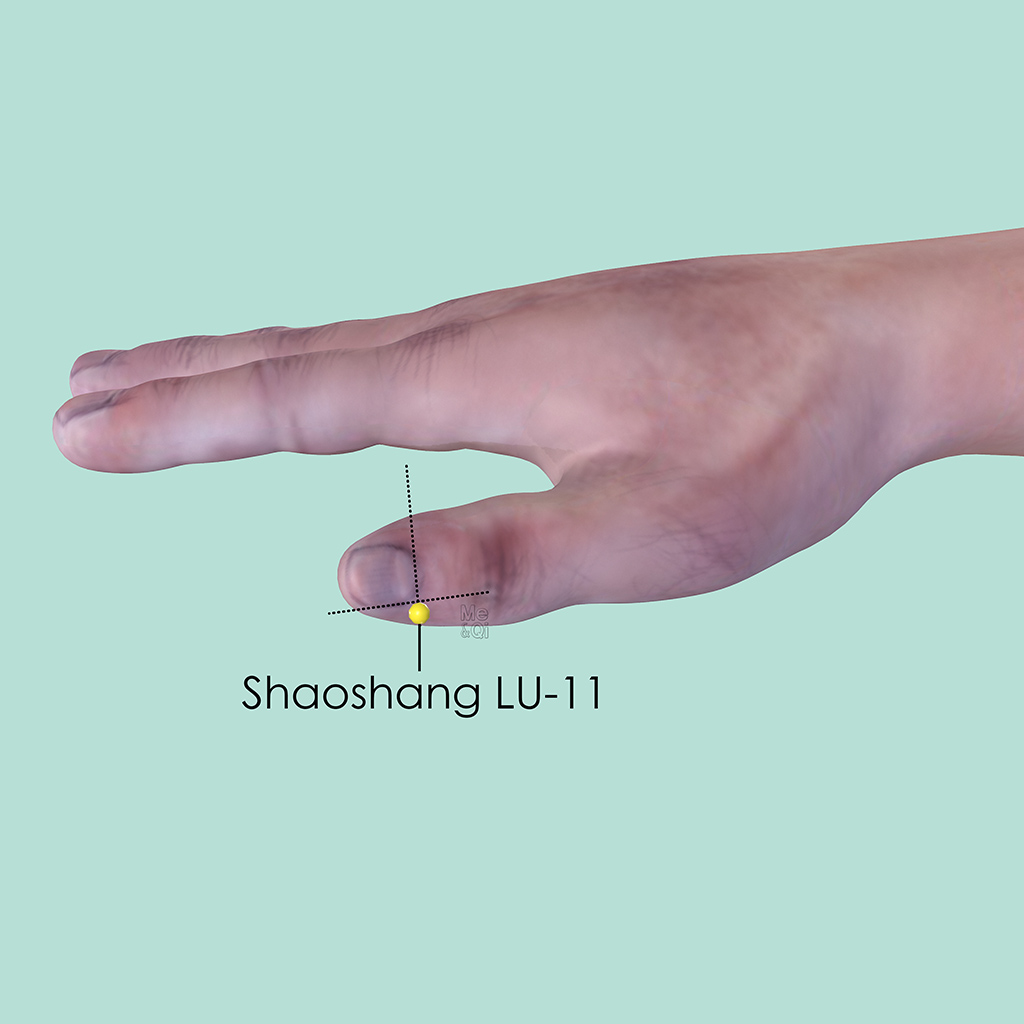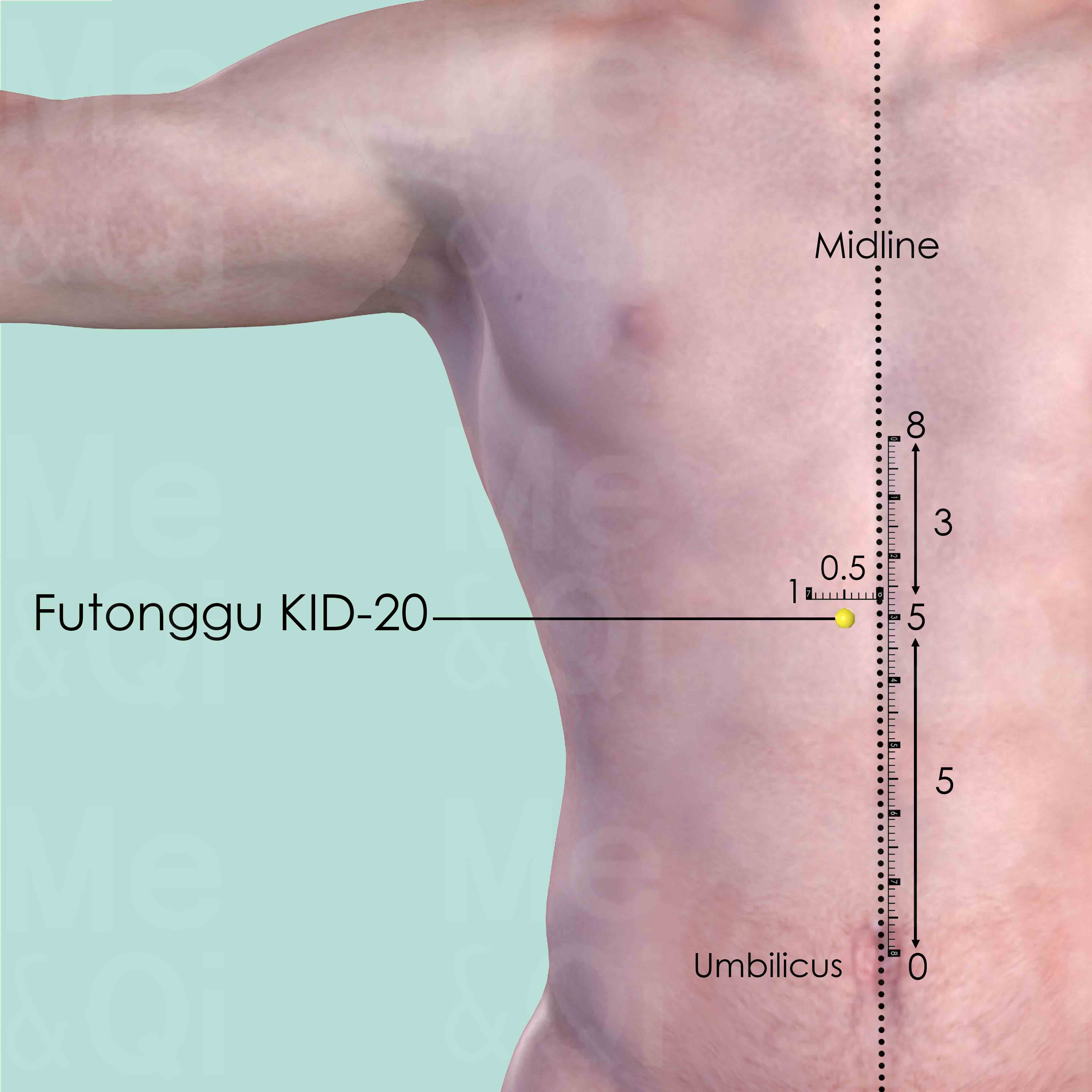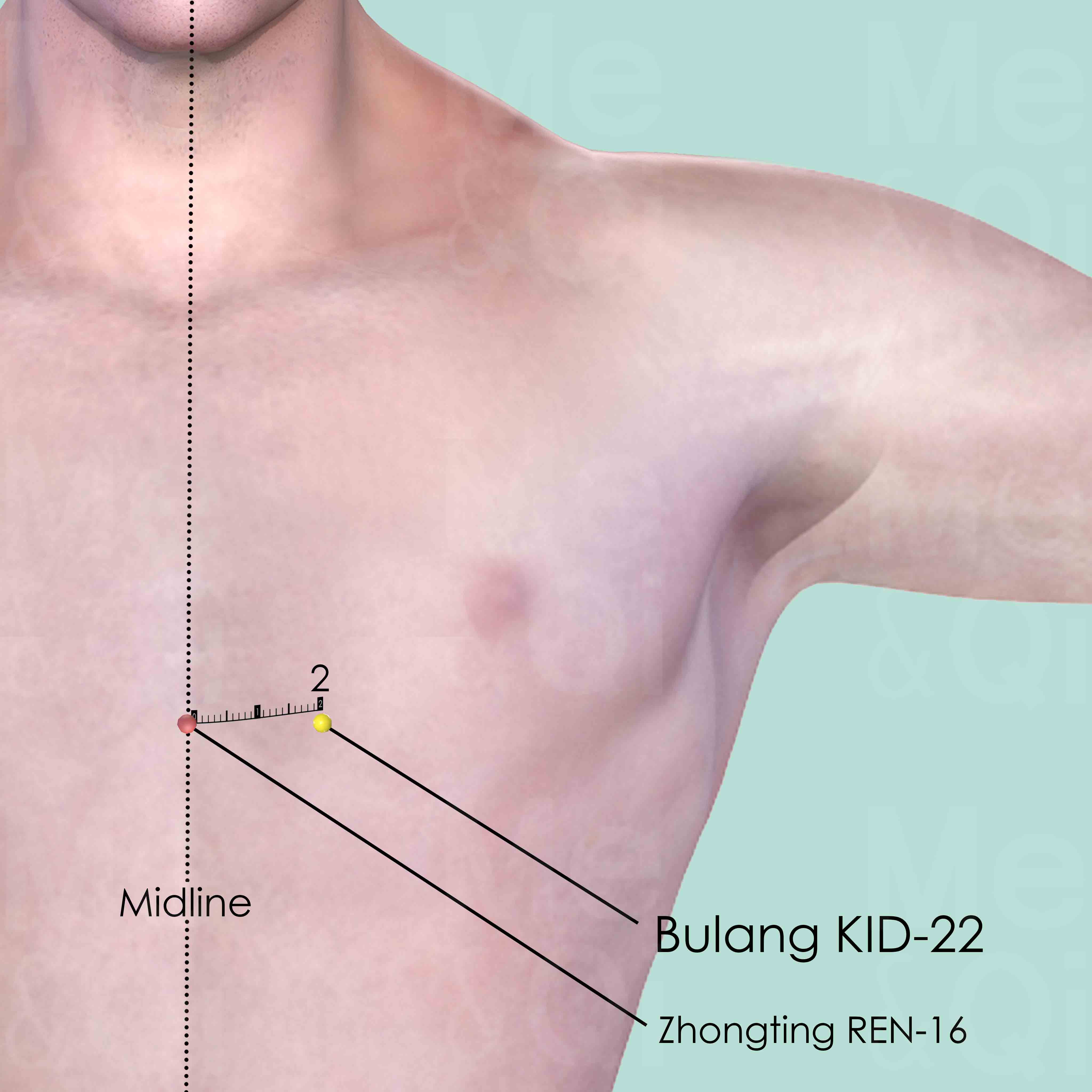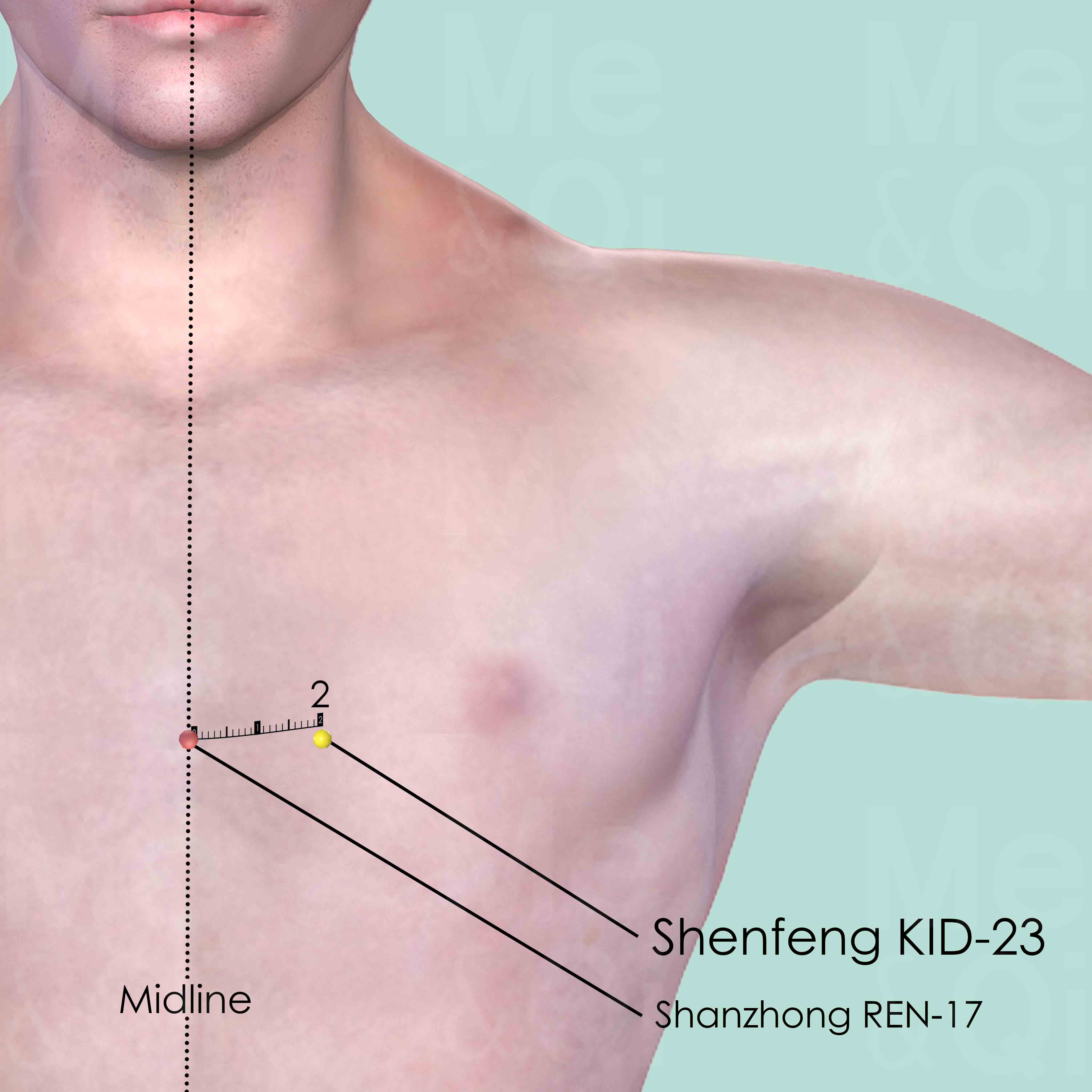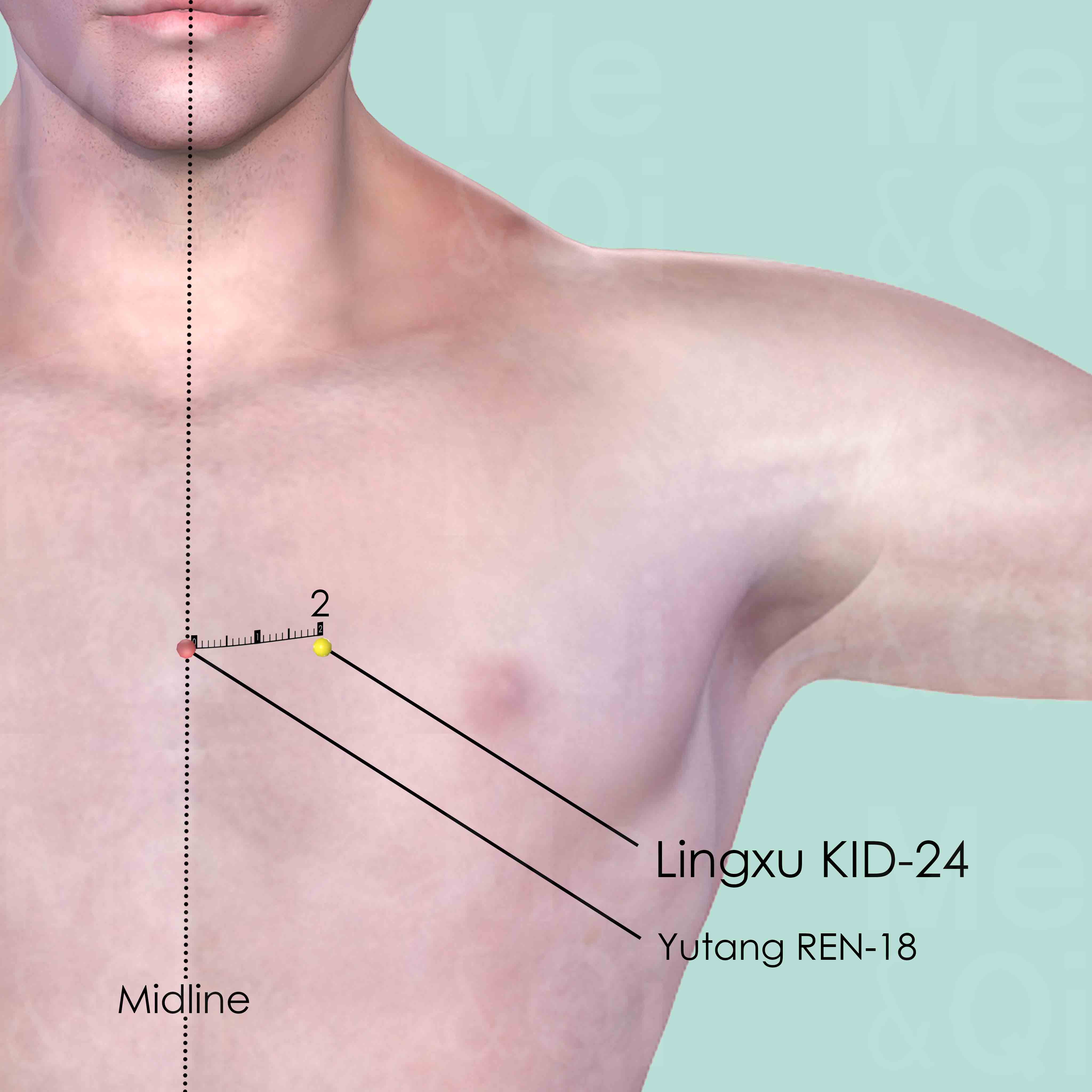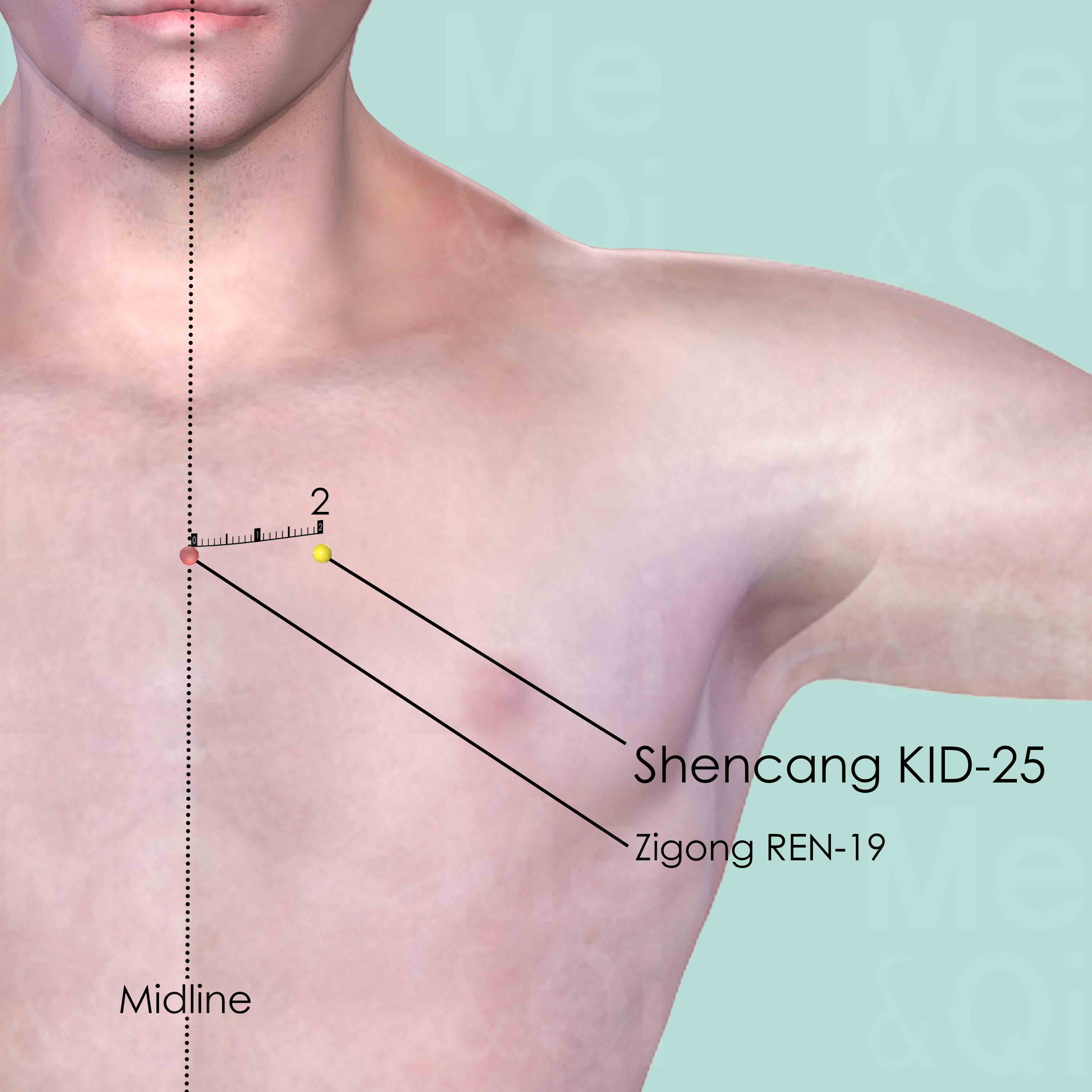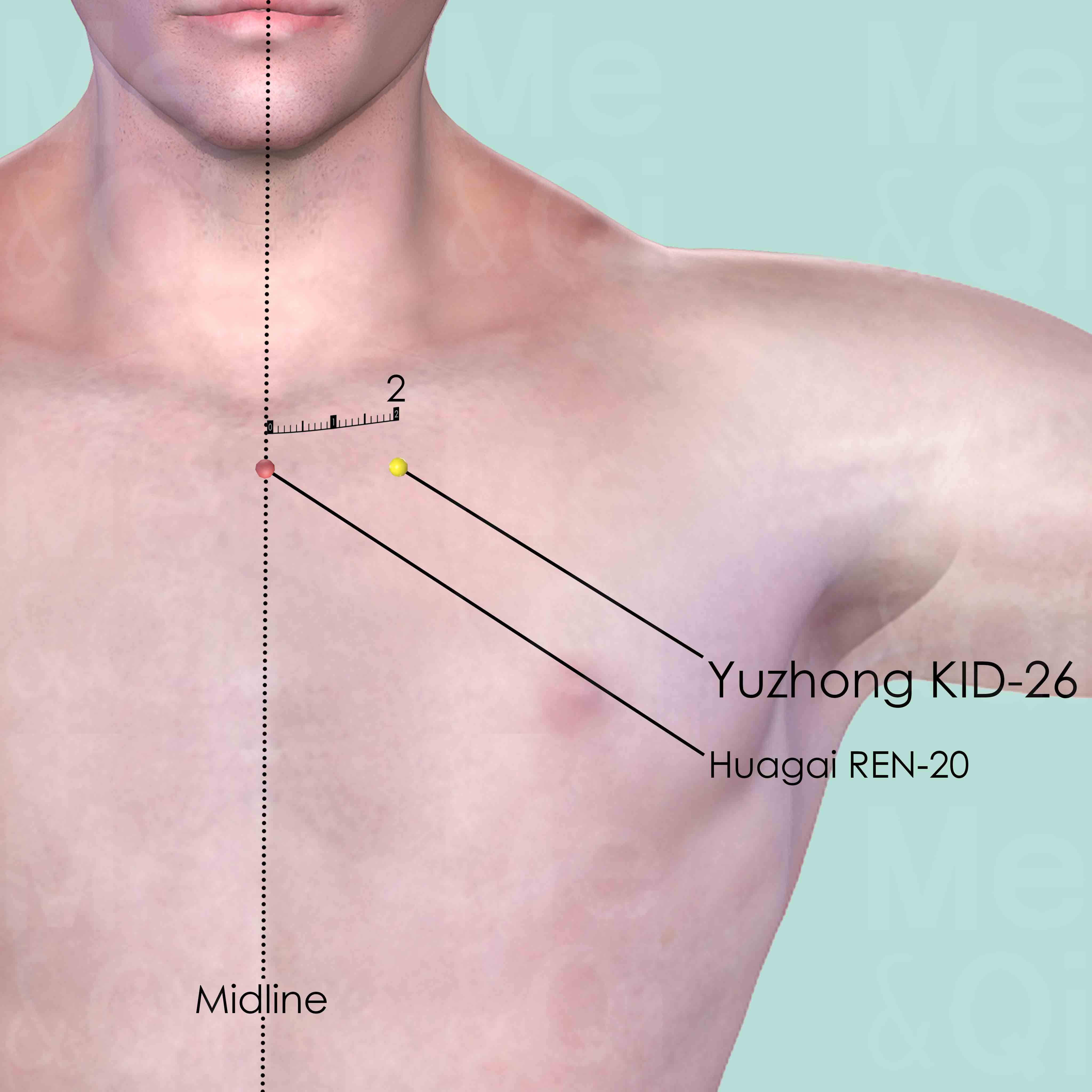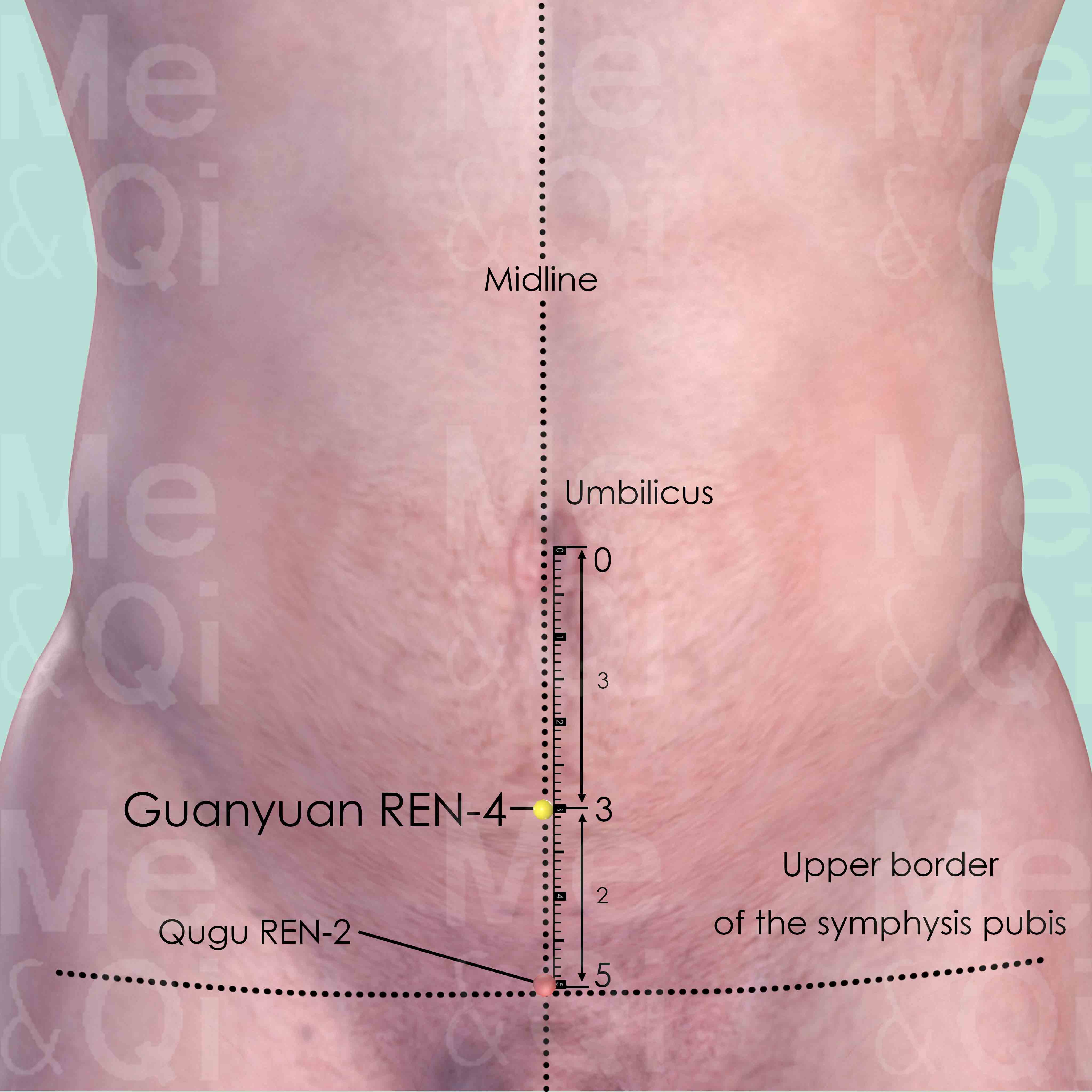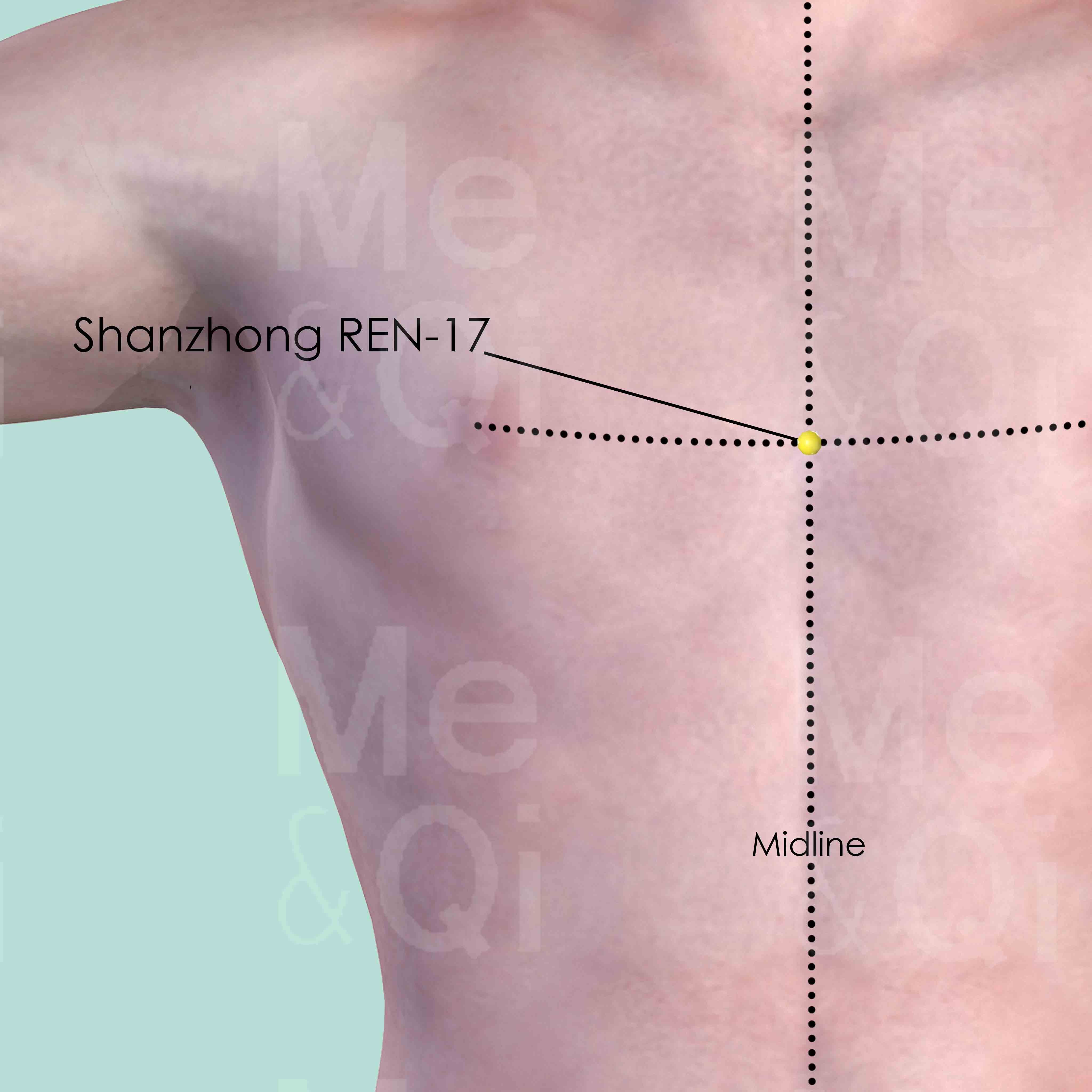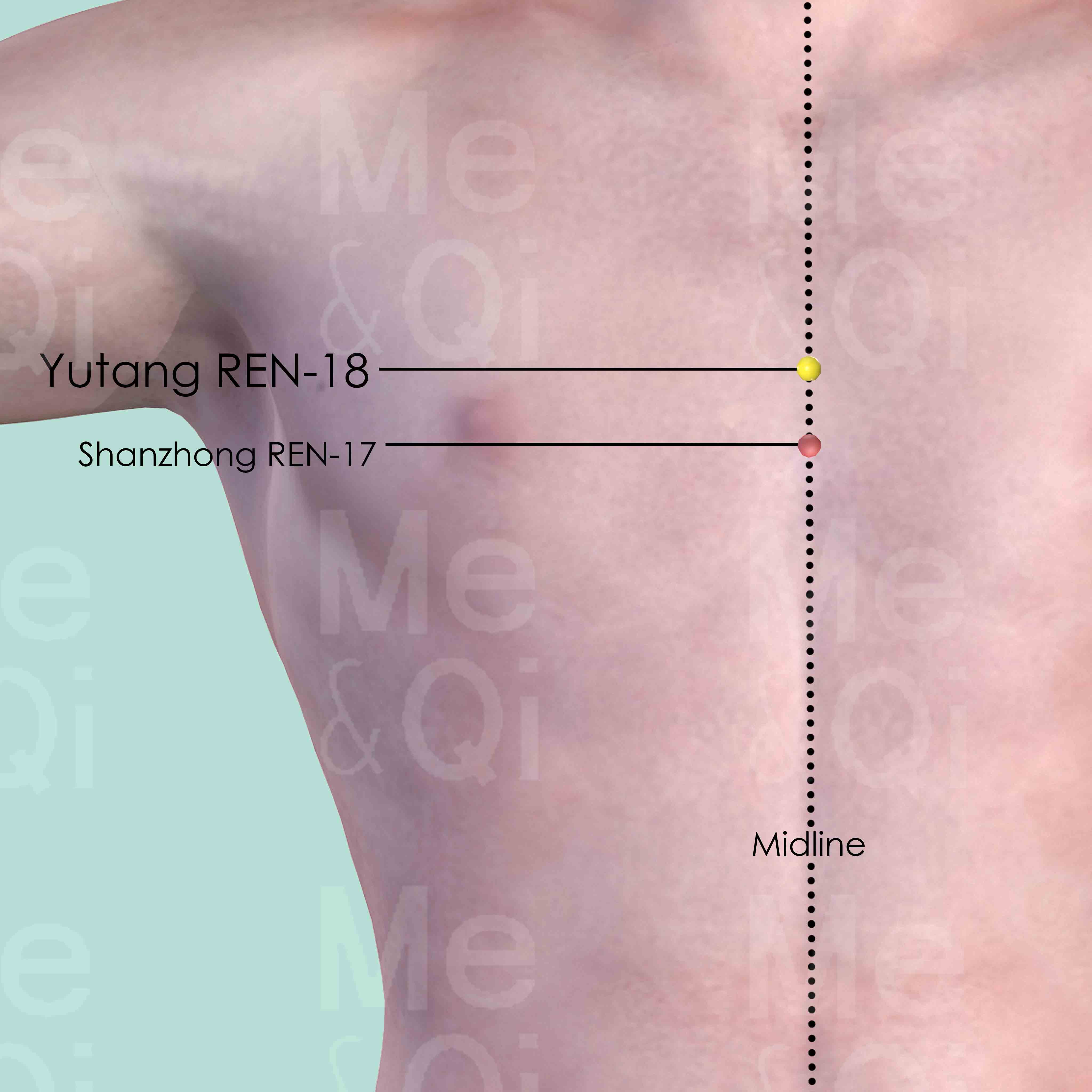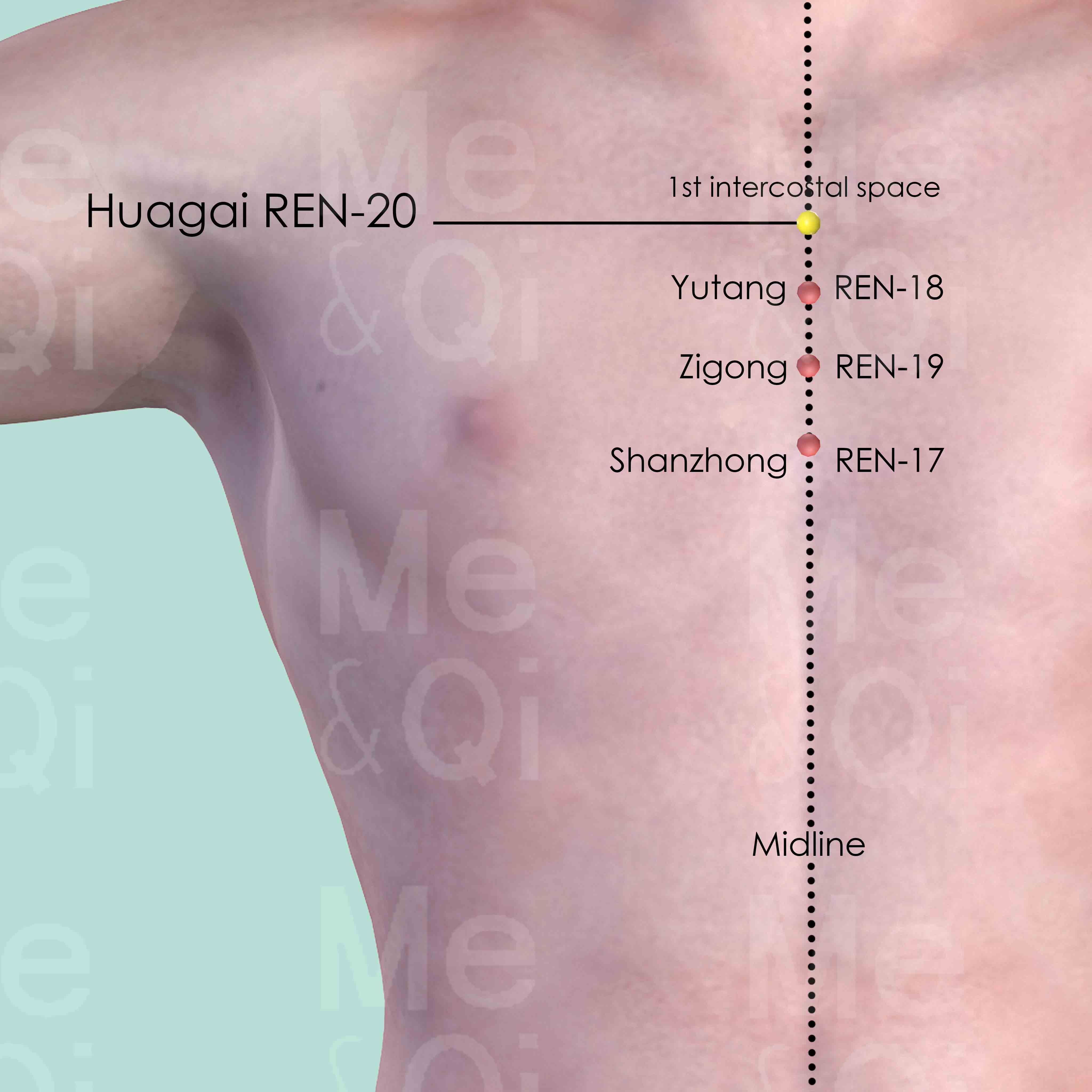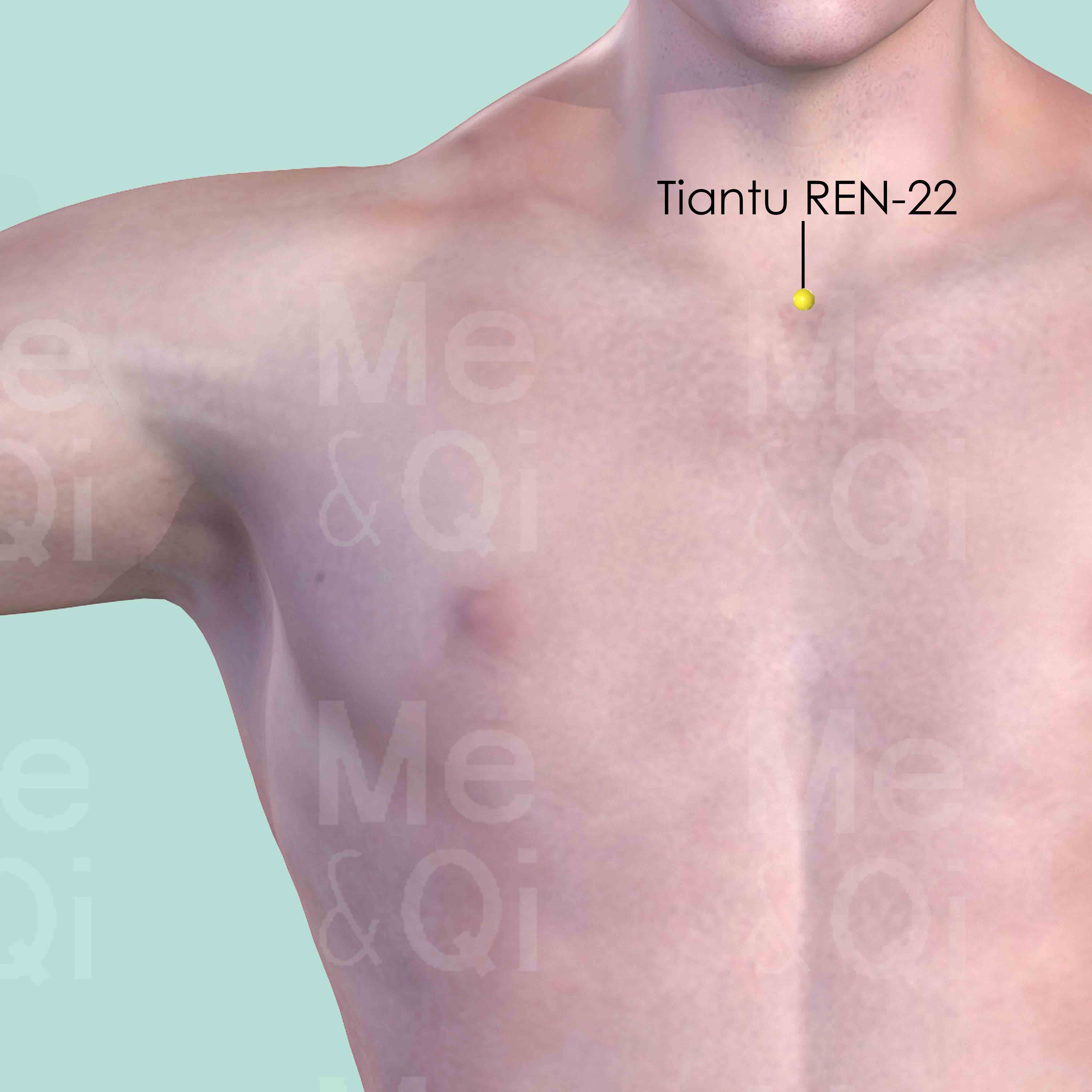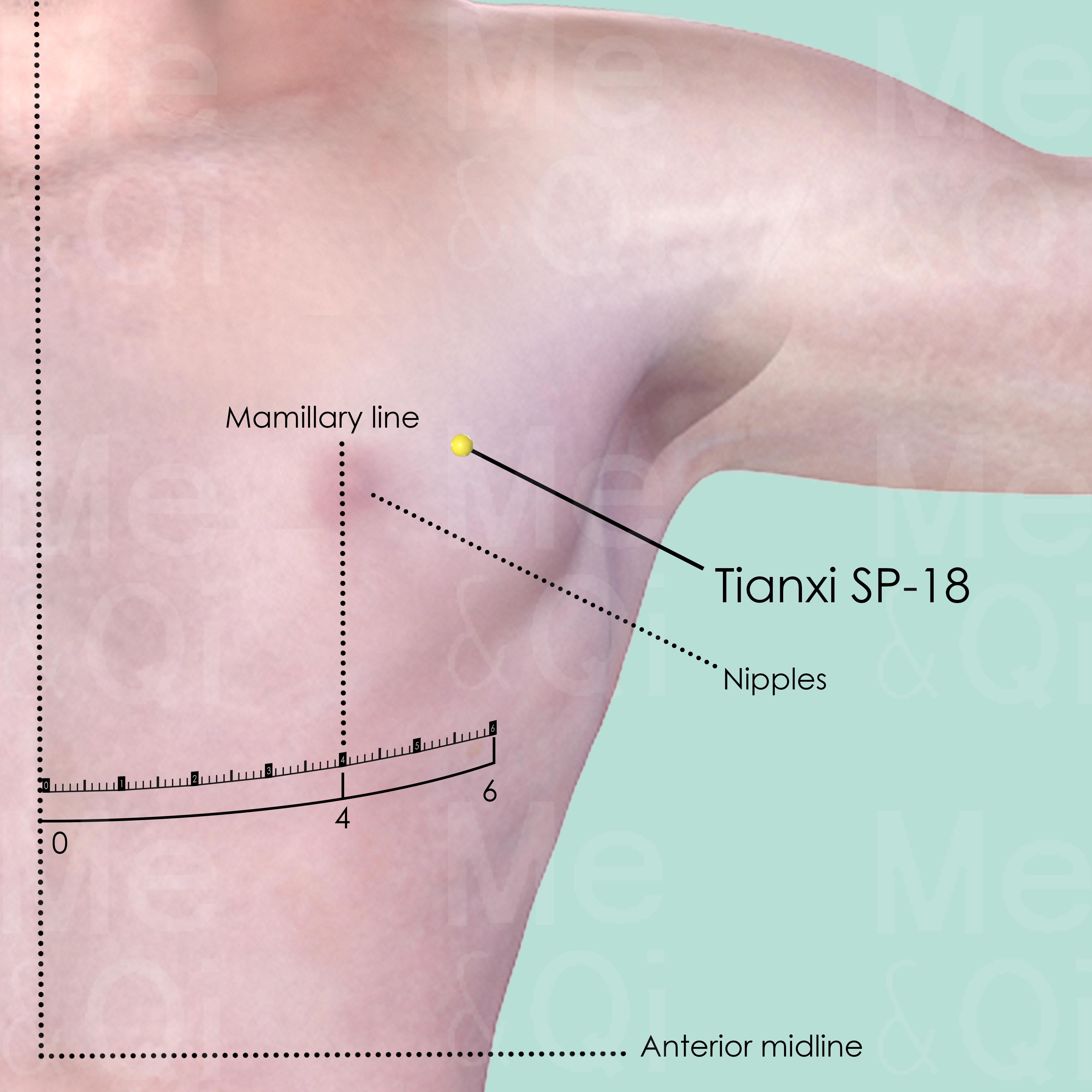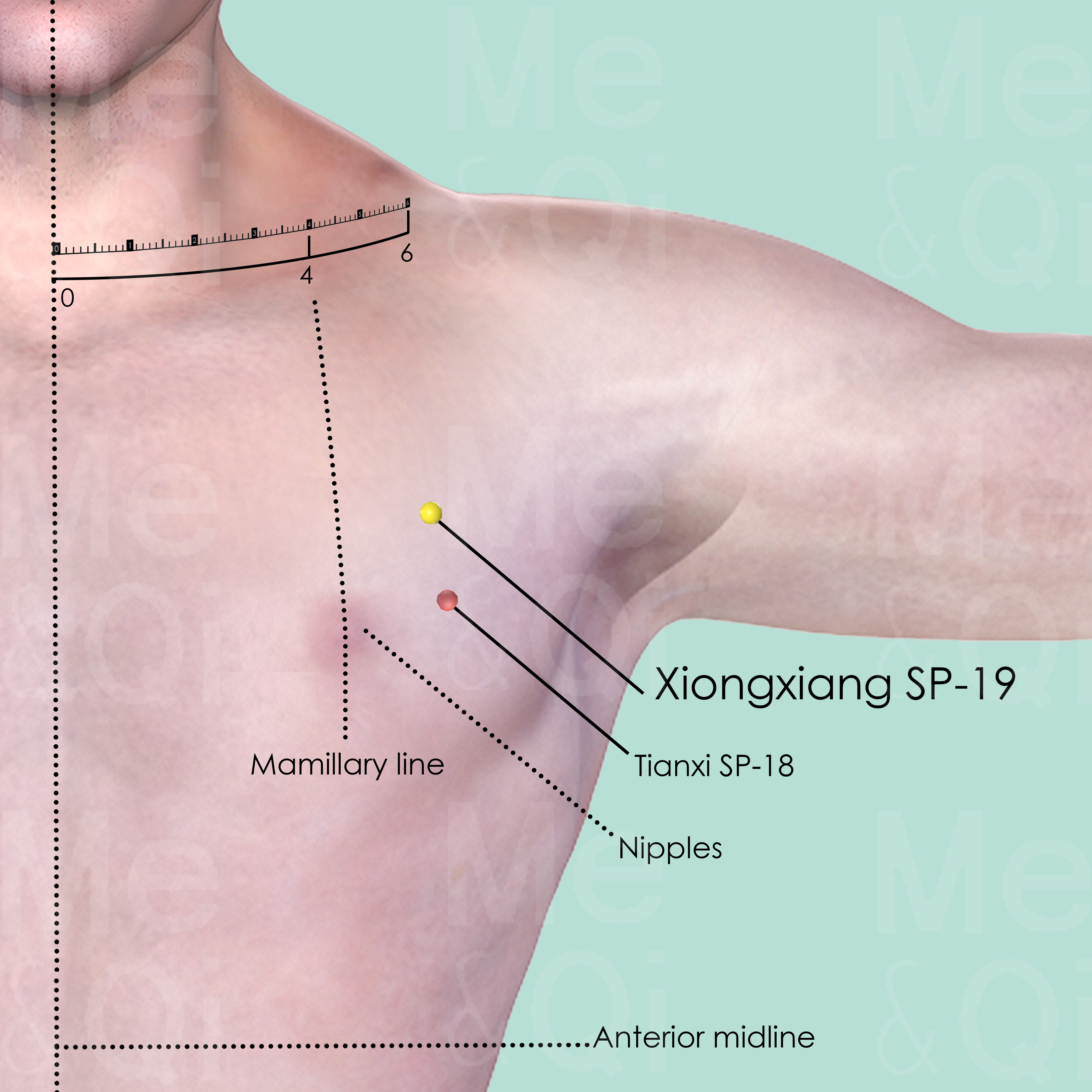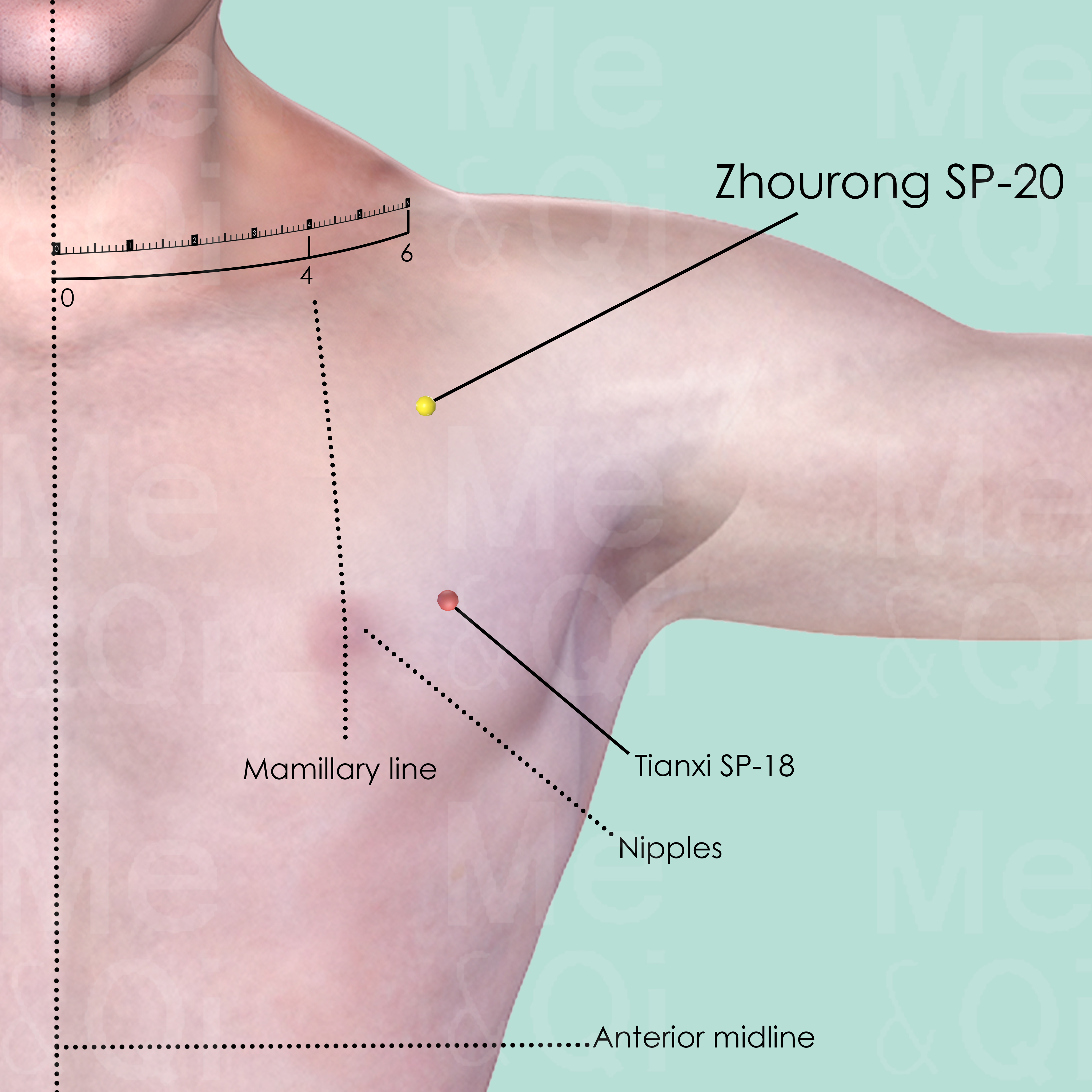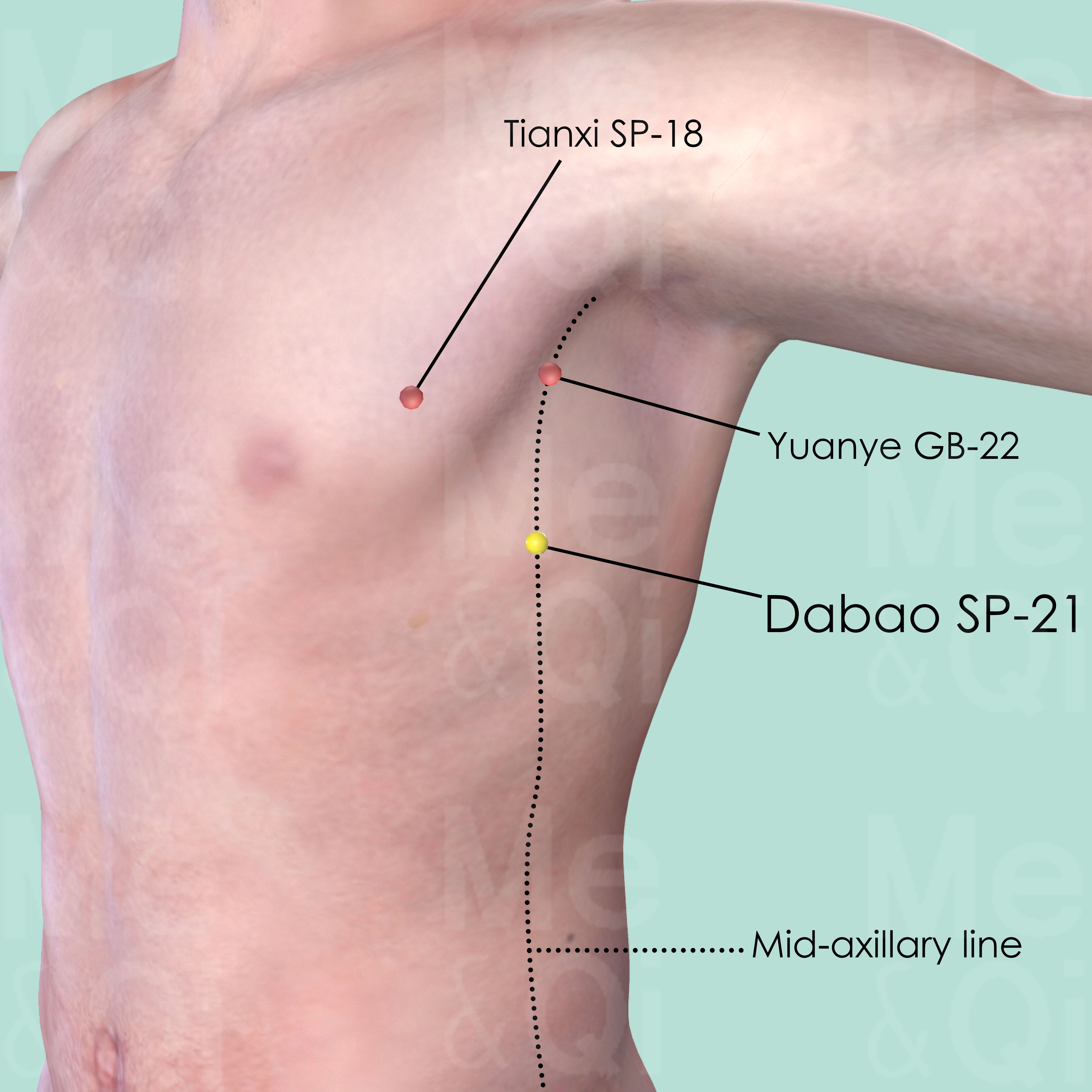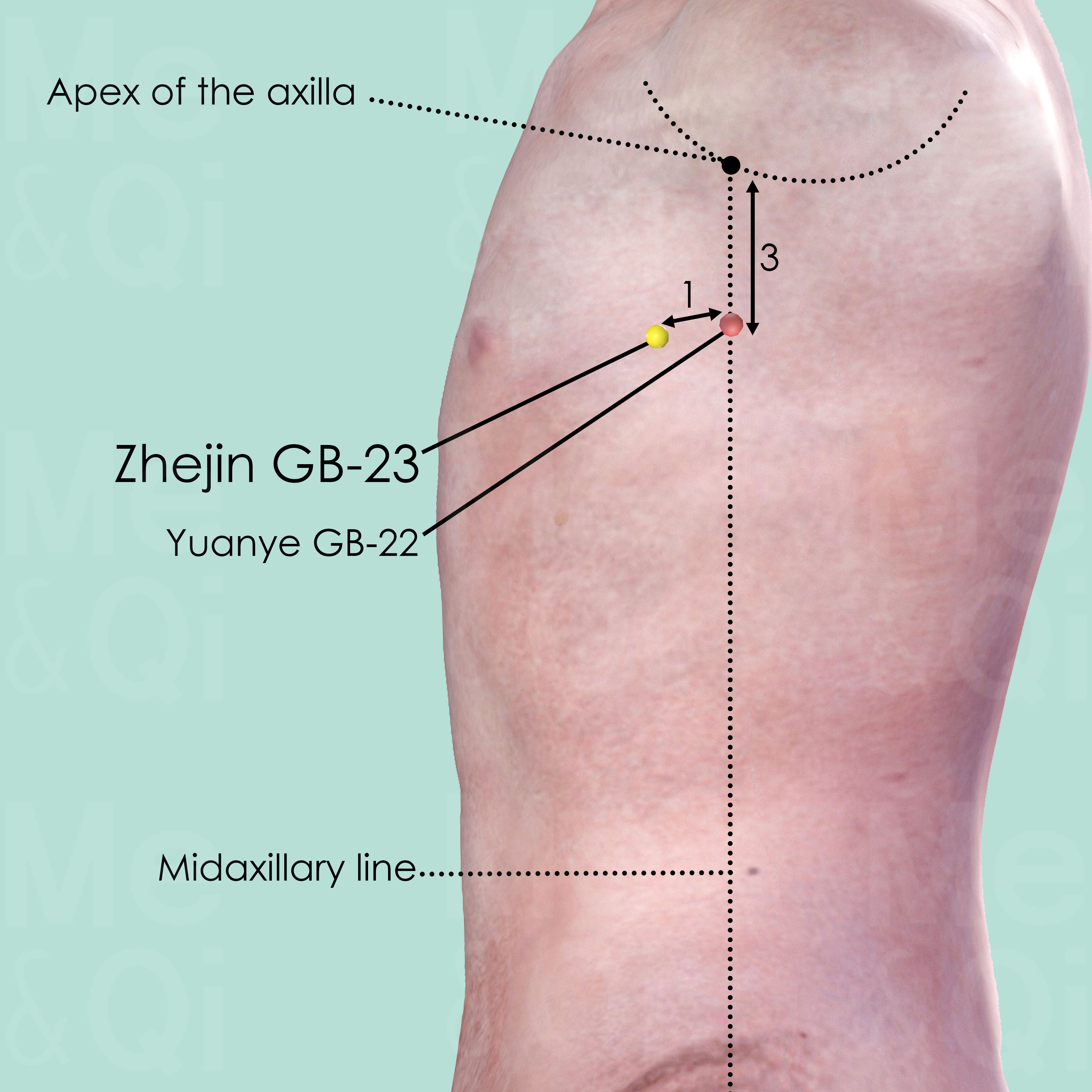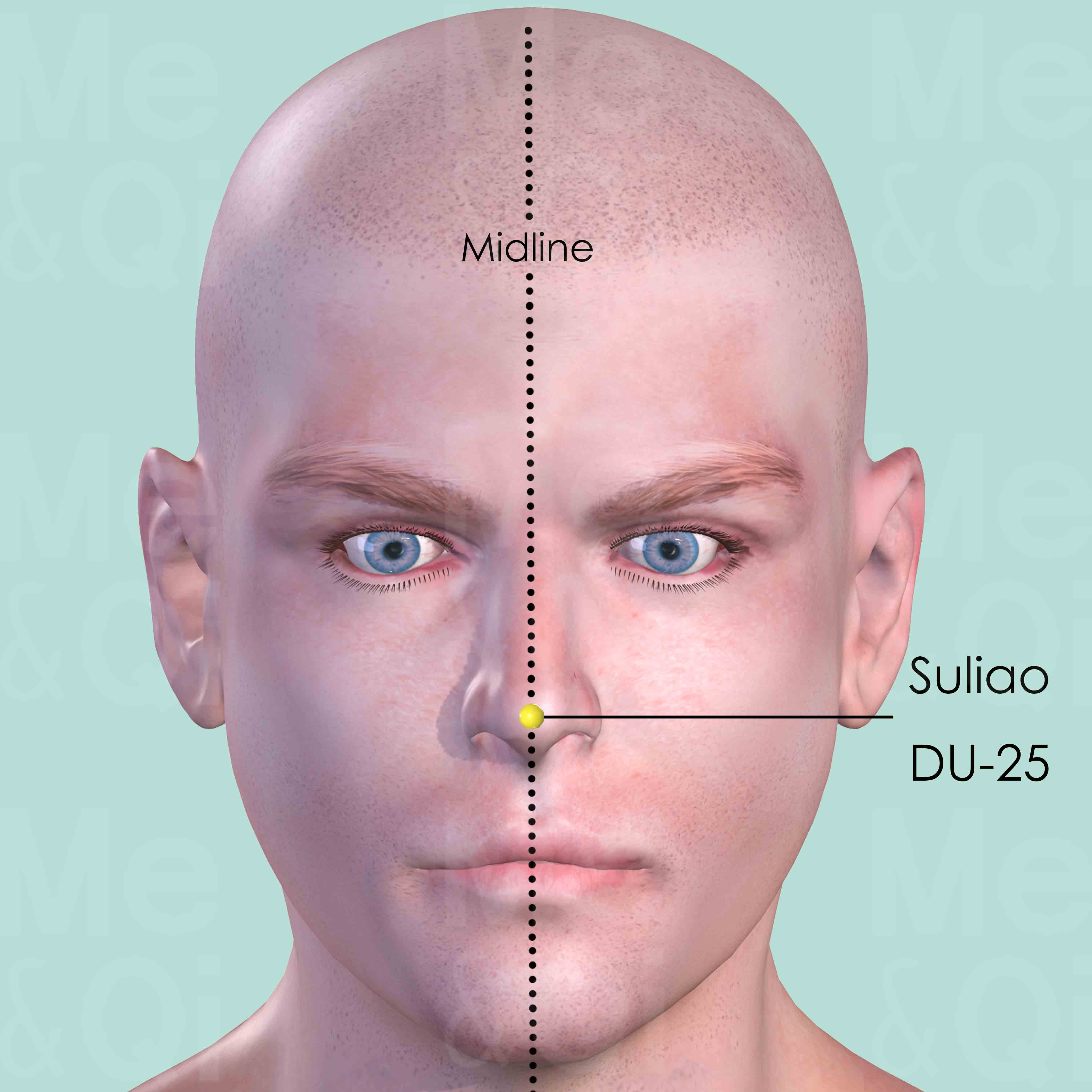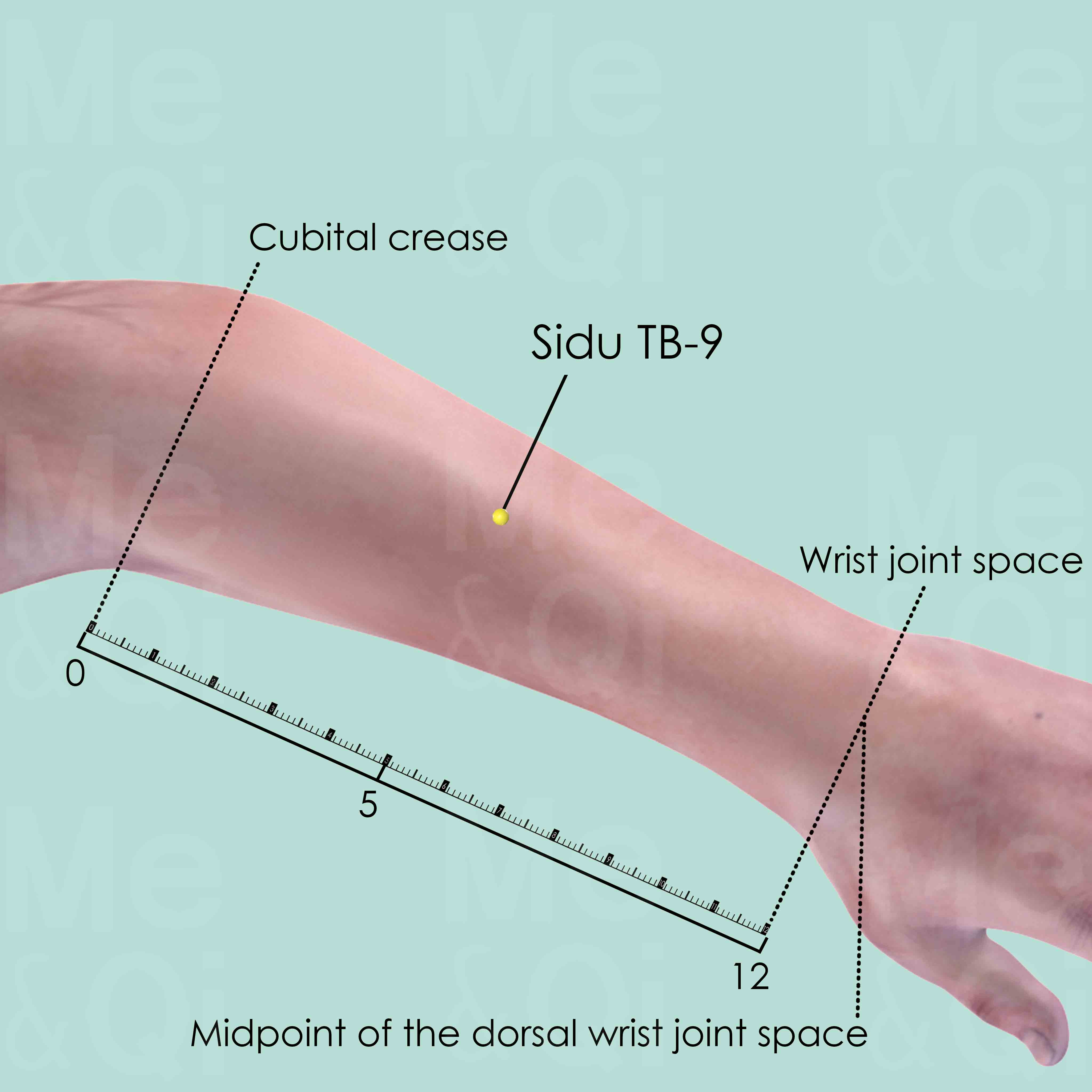Shortness Of Breathaccording to TCM
Symptom family: Respiratory Disorders and Symptoms
Sub-symptom(s): Difficulty Breathing In Exertional Dyspnea
Root Causes of Shortness Of Breath in TCM
Explore below more details about what might cause Shortness of breath according to TCM.
- By Syndrome
- By Organ
- Phlegm
- Qi Deficiency
- Dampness
- Cold
- Yang Deficiency
- Heat
- Wind
- Blood Deficiency
- Yin Deficiency
- Qi Stagnation
- Blood Stasis
- Qi Sinking
- Dryness
- Summer Heat
- View More Causes
- Lung
- Kidney
- Spleen
- Heart
- Pericardium
- Liver
- Stomach
- Uterus
- Triple Burner
- View More Organs
Phlegm
In TCM "Phlegm" as a pattern of disharmony is a complex concept that extends beyond the physical manifestation of mucus. It represents a pathological factor that can disrupt the flow of Qi (vital energy) and blood, leading to various health issues. Phlegm in TCM is seen as a sticky, turbid substance arising from the body's inability to metabolize fluids properly, often due to a dysfunction of the spleen. It's not only associated with respiratory problems like cough and congestion but also with systemic issues. Symptoms can include a feeling of heaviness, mental cloudiness, dizziness, and in some cases, the formation of lumps or masses. Phlegm can even be "invisible," contributing to emotional disturbances like depression or stress. ... see more
Phlegm Patterns That Can Lead to Shortness Of Breath
Common Symptoms: Feeling Of Heaviness Coughing Dizziness Asthma Sputum Stifling Sensation In The Chest Chest Distension Vertigo
| Pattern Name | Relevant Symptoms | Relevant Formulas |
|---|---|---|
| Oedema | Labored breathing, Abdominal edema, Ankle edema, Facial edema, Foot edema, Oedema of hands, Leg edema, Ocular swelling, Abdominal distention... see more | Wu Pi Yin |
| Damp-Phlegm in the Lungs | Shortness of breath, Coughing, Pale face, Sputum, Stifling sensation in the chest, Discomfort when lying down, Wheezing, Nausea, Feeling of heaviness, Dizziness, Profuse white sputum, Asthma, Chest distension... see more | Er Chen Tang |
| Dry-Phlegm in the Lungs | Shortness of breath, Dry cough, Scanty sputum, Stifling sensation in the chest, Sputum, Feeling of heaviness, Dizziness, Dry throat, Wheezing, Pale face... see more | Bei Mu Gua Lou San |
| Damp-Phlegm in the Uterus | Shortness of breath, Late menstruation, Amenorrhea, Scanty menstruation, Lower abdominal pain, Abdominal heaviness, Feeling of oppression of the chest, Generalized fatigue, Diarrhea, Dull pale complexion, Obesity, Infertility, Ovarian cysts, Ovarian fibroids, Polycystic ovary syndrome, Pseudocyesis, Sputum, Feeling of heaviness... see more | Xiong Gui Er Chen Tang | Xiang Sha Liu Jun Zi Tang |
| Phlegm-Fluids | Shortness of breath, Abdominal distention, Vomiting clear liquid, Feeling of heaviness, Hypochondrial pain that is worse on coughing and breathing, Coughing, Lack of sweating, Absence of thirst, Edema, Chest distension... see more | Wu Ling San | Er Chen Tang | Wen Dan Tang | Ling Gui Zhu Gan Tang |
| Phlegm-Fluids in the hypochondrium | Shortness of breath, Hypochondrial pain that is worse on coughing and breathing, Hypochondriac distention... see more | Shi Zao Tang |
| Phlegm-Fluids in the Lungs | Shortness of breath, Coughing, White and watery sputum, Gurgling noise in the chest, Stifling sensation in the chest, Feeling of heaviness, Dizziness, Chills, Cought with sticky phlegm, Itchy throat... see more | Ling Gan Wu Wei Jiang Xin Tang | Zhi Sou San |
| Phlegm-Heat in the Lungs | Shortness of breath, Coughing, Wheezing, Stifling sensation in the chest, Sputum, Feeling hot, Thirst, Head and body heaviness, Dizziness, Copious thick yellow sputum... see more | Er Chen Tang | Ma Xing Shi Gan Tang | Qing Qi Hua Tan Wan | Pi Pa Qing Fei Yin | Ren Shen Ge Jie San | Wen Dan Tang | Qing Xin Li Ge Tang |
| Turbid Phlegm Blocks Orifices | Short of breath, Coma, Loss of consciousness, Clenching of teeth, Shortness of breath, Pale face, Copious sputum, Drooling... see more | Tong Guan San |
| Phlegm in Chest | Difficult breathing, Focal distention of the chest, Difficulty breathing in | Gua Di San |
| Wind-Cold invading the Interior with Phelgm-Heat | Labored breathing, Shortness of breath, Copious thick yellow sputum, Chronic bronchitis, Asthma, Bronchiolitis... see more | Ding Chuan Tang |
| Phlegm-Fluids in the chest and hypochondrium | Shortness of breath, Cough with chest pain, Upper abdominal focal distention, Dry heaving, Headaches, Vertigo, Pericardial effusion, Pneumonia, Ascites due to liver cirrhosis, Nephritis... see more | Shi Zao Tang |
| Phlegm in the Lower Burner | Shortness of breath, Throbbing below the belly button, Vomiting frothy saliva, Vertigo, Coughing, Edema, Glomerulonephritis, Kidney infection, Nephrotic syndrome, Cystitis, Hydrocele... see more | Wu Ling San |
Qi Deficiency
Qi Deficiency in TCM is like running low on battery power. Qi is the vital energy that powers every function in your body. When there's a Qi Deficiency, it means your body doesn't have enough of this essential energy. This can make you feel tired all the time, weak, or even cause shortness of breath. It's similar to how you feel when you haven't had enough sleep or nutritious food. Your body just doesn't have the energy it needs to perform at its best. Unlike modern medicine, which often focuses on specific physical causes for fatigue and weakness, TCM views Qi Deficiency as an overall energy depletion that affects your entire well-being, and it seeks to replenish and balance this vital energy.... see more
Qi Deficiency Patterns That Can Lead to Shortness Of Breath
Common Symptoms: Generalized Fatigue Pale Face Palpitations Weak Voice Lack Of Appetite Spontaneous Sweat Reluctance To Speak Coughing
| Pattern Name | Relevant Symptoms | Relevant Formulas |
|---|---|---|
| Lung Qi Deficiency | Shortness of breath, Diurnal hyperhidrosis, Reluctance to speak | Ba Zhen Tang | Si Jun Zi Tang | Jiu Xian San | Bu Fei Tang | Ren Shen Ge Jie San | Zhi Gan Cao Tang |
| Qi Deficiency | Shortness of breath, General weakness, Weak voice, Generalized fatigue, Low energy, Reluctance to speak, Spontaneous sweat, Frequent colds or flu, Lack of appetite, Diarrhea... see more | Bu Zhong Yi Qi Tang | Gui Pi Tang | Ju Yuan Jian | Si Jun Zi Tang | Liu Jun Zi Tang |
| Lung and Heart Qi Deficiency | Shortness of breath, Coughing, Weak voice, Reluctance to speak, Pale face, Frequent colds or flu, Generalized fatigue, Palpitations, Depression, Spontaneous sweat, Sighing... see more | Si Jun Zi Tang | Bao Yuan Tang |
| Qi and Blood Deficiency | Shortness of breath, General weakness, Generalized fatigue, Weak voice, Pale face, Palpitations, Dizziness, Poor memory, Insomnia, Reluctance to speak, Lack of appetite, Limb numbness, Skin numbness... see more | Ba Zhen Tang | Gui Pi Tang | Zhi Gan Cao Tang | Ba Zhen Yi Mu Tang | Sheng Yu Tang | Guo Qi Yin |
| Spleen and Lung Qi Deficiency | Shortness of breath, Lack of appetite, Slight abdominal distension after eating, Generalized fatigue, General weakness, Pale face, Weak limbs, Diarrhea, Obesity, Coughing, Weak voice, Spontaneous sweat, Reluctance to speak, Frequent colds or flu, Aversion to cold... see more | Si Jun Zi Tang | Liu Jun Zi Tang |
| Spleen and Kidney Qi Deficiency | Short of breath, Excessive menstruation, Pale menstrual flow, Thin menstrual blood, Prolonged menstrual periods, Shortness of breath, Palpitations... see more | Gu Chong Tang |
| Heart Qi Deficiency | Shortness of breath on exertion, Palpitations, Exertional dyspnea, Pale face, Spontaneous sweat, Generalized fatigue... see more | Bao Yuan Tang | Bai Zi Yang Xin Wan | Bai Zi Yang Xin Tang |
| Spleen and Stomach Qi Deficiency | Shortness of breath, Dizziness, Unsteadiness, Blurry vision, Deafness, Tinnitus, Weak voice, Pale face, Lack of appetite, Diarrhea, Belching... see more | Bu Zhong Yi Qi Tang |
| Spleen or Kidney Qi Deficiency | Shortness of breath, Early menstruation, Pale menstrual flow, Lower back pain, Dizziness, Chills, Nocturia, Thin menstrual blood, Palpitations, Spontaneous sweat, Generalized fatigue... see more | Bu Zhong Yi Qi Tang | Gui Pi Tang | He Che Da Zao Wan |
| Heart and Spleen Qi and Blood Deficiency | Shortness of breath, Dyspnea on exertion, Palpitations, Poor memory, Restless sleeplessness, Fever, Lack of appetite, Generalized fatigue, Coughing, Exertional dyspnea, Weight loss, Skin dryness... see more | Ren Shen Yang Rong Tang |
Dampness
"Dampness" in TCM is a concept that describes a pattern of disharmony where the body accumulates excess moisture. Imagine the heavy, sticky feeling you get on a very humid day; that's similar to what dampness feels like internally. It can manifest as a sense of heaviness, bloating, sluggishness, or even a foggy mind. This condition is often thought to arise from environmental factors like living in a damp place, dietary habits that promote moisture in the body, or internal imbalances that hinder the body's ability to process fluids properly. In TCM, dampness can obstruct the normal flow of energy and fluids in the body, leading to various symptoms.... see more
Dampness Patterns That Can Lead to Shortness Of Breath
Common Symptoms: Feeling Of Heaviness Coughing Diarrhea Nausea Dizziness Chest Distension Abdominal Distention Scanty Clear Urination
| Pattern Name | Relevant Symptoms | Relevant Formulas |
|---|---|---|
| Kidney Yang Deficiency with Water overflowing | Breathlessness, Edema of the lower extremities, Cold sensation in legs and back, Abdominal distention, Lumbar pain, Chills, Scanty clear urination, Palpitations, Shortness of breath, Cold hands, White and watery sputum, Coughing, Asthma... see more | Wu Ling San | Ji Sheng Shen Qi Wan |
| Oedema | Labored breathing, Abdominal edema, Ankle edema, Facial edema, Foot edema, Oedema of hands, Leg edema, Ocular swelling, Abdominal distention... see more | Wu Pi Yin |
| Damp-Phlegm in the Lungs | Shortness of breath, Coughing, Pale face, Sputum, Stifling sensation in the chest, Discomfort when lying down, Wheezing, Nausea, Feeling of heaviness, Dizziness, Profuse white sputum, Asthma, Chest distension... see more | Er Chen Tang |
| Damp-Phlegm in the Uterus | Shortness of breath, Late menstruation, Amenorrhea, Scanty menstruation, Lower abdominal pain, Abdominal heaviness, Feeling of oppression of the chest, Generalized fatigue, Diarrhea, Dull pale complexion, Obesity, Infertility, Ovarian cysts, Ovarian fibroids, Polycystic ovary syndrome, Pseudocyesis, Sputum, Feeling of heaviness... see more | Xiong Gui Er Chen Tang | Xiang Sha Liu Jun Zi Tang |
| Summer Heat with Dampness | Shortness of breath, Fever, Aversion to cold, Perspiration, Headaches, Feeling of heaviness, Tight feeling in chest and stomach, Anxiety, Thirst, Chest distension, Lack of appetite... see more | Huo Xiang Zheng Qi San | Xiang Ru San | Gui Ling Gan Lu Yin |
| Wind-Cold-Water invading the Lungs | Shortness of breath, Ocular swelling, Shiny complexion, Scanty clear urination, Fever, Coughing, Aversion to cold, Facial edema... see more | Xiao Qing Long Tang |
| Painful Obstruction with Wind-Cold-Damp | Shortness of breath, Swollen and painful joints worsening at night, Joint stiffness, Chills without sweating, Weight loss, Headaches, Dizziness, Nausea, Rheumatoid arthritis, Connective tissue disorders, Gouty inflammation... see more | Gui Zhi Shao Yao Zhi Mu Tang |
Cold
In TCM "Cold" as a pattern of disharmony refers to a specific type of imbalance within the body's systems, often linked to a deficiency or weakness. It's not about feeling physically cold or having a common cold, but rather a metaphorical description of certain symptoms and underlying conditions. When a TCM practitioner says someone suffers from "Cold," it usually implies that the body's Yang energy, which is warm and active, is insufficient or overpowered by Yin energy, which is cool and passive. Symptoms of Cold in TCM can include a general feeling of coldness, cold limbs, pale complexion, low energy, slow metabolism, and a preference for warmth. ... see more
Cold Patterns That Can Lead to Shortness Of Breath
Common Symptoms: Aversion To Cold Lack Of Sweating Sneezing Nasal Discharge Chills Dizziness Headaches Fever
| Pattern Name | Relevant Symptoms | Relevant Formulas |
|---|---|---|
| Greater Yang Attack of Cold | Breathlessness, Occipital headache, Aversion to cold, Low grade fever, Lack of sweating, Stiff neck, Sneezing, Nasal discharge, Shortness of breath... see more | Ma Huang Tang |
| Empty-Cold | Shortness of breath, Chills, Cold extremities, Pale face, Absence of thirst, Low energy, Perspiration, Diarrhea, Clear urination, Frequent urination... see more | Huang Qi Jian Zhong Tang | Da Jian Zhong Tang | Ban Liu Wan |
| Wind-Cold invading the Lungs | Shortness of breath, Aversion to cold, Fever, Itchy throat, Congested nose, Nasal discharge, Sneezing, Headaches, Body pain, White and watery sputum, Coughing and wheezing with copious sputum... see more | Ma Huang Tang | Zhi Sou San | Ge Gen Tang | Xin Yi San |
| Wind-Cold-Water invading the Lungs | Shortness of breath, Ocular swelling, Shiny complexion, Scanty clear urination, Fever, Coughing, Aversion to cold, Facial edema... see more | Xiao Qing Long Tang |
| Wind-Cold invading the Interior with Phelgm-Heat | Labored breathing, Shortness of breath, Copious thick yellow sputum, Chronic bronchitis, Asthma, Bronchiolitis... see more | Ding Chuan Tang |
| Painful Obstruction with Wind-Cold-Damp | Shortness of breath, Swollen and painful joints worsening at night, Joint stiffness, Chills without sweating, Weight loss, Headaches, Dizziness, Nausea, Rheumatoid arthritis, Connective tissue disorders, Gouty inflammation... see more | Gui Zhi Shao Yao Zhi Mu Tang |
Yang Deficiency
Yang deficiency in TCM refers to a state where the body's Yang energy, which is responsible for warmth, activity, and function, is weakened or diminished. This pattern of disharmony often arises from chronic illness, aging, or inherent constitutional weakness. Symptoms of Yang deficiency are typically associated with cold and sluggishness, such as a feeling of coldness, cold extremities, pale complexion, low energy or fatigue, and a desire for warmth. Digestive issues like poor appetite, loose stools, and water retention can also be indicative of Yang deficiency.... see more
Yang Deficiency Patterns That Can Lead to Shortness Of Breath
Common Symptoms: Palpitations Abdominal Distention Chills Cold Hands Cold Extremities Spontaneous Sweat Pale Face Generalized Fatigue
| Pattern Name | Relevant Symptoms | Relevant Formulas |
|---|---|---|
| Kidney Yang Deficiency with Water overflowing | Breathlessness, Edema of the lower extremities, Cold sensation in legs and back, Abdominal distention, Lumbar pain, Chills, Scanty clear urination, Palpitations, Shortness of breath, Cold hands, White and watery sputum, Coughing, Asthma... see more | Wu Ling San | Ji Sheng Shen Qi Wan |
| Lung Yang Deficiency | Shortness of breath, Coughing and wheezing with copious sputum, Cold extremities, Spontaneous sweat, Frequent colds or flu, Pale face, Generalized fatigue, Absence of thirst, Wheezing, Weak voice... see more | Si Jun Zi Tang | Gan Cao Gan Jiang Tang | Sheng Mai San |
| Heart Yang Deficiency | Shortness of breath on exertion, Palpitations, Exertional dyspnea, Generalized fatigue, Spontaneous sweat, Slight feeling of stuffiness in the heart, Chills, Cold hands, Bright pale face, Dark lips... see more | Gui Zhi Jia Long Gu Mu Li Tang |
| Painful Obstruction with Liver and Kidney Deficiency | Shortness of breath, Lower back and leg pain and heaviness, Weakness and stiffness, Aversion to cold, General cold feeling, Palpitations, Chronic lower back pain, Sciatica, Osteoarthritis, Rheumatoid arthritis, Periarthritis of the shoulder... see more | Du Huo Ji Sheng Tang |
| Spleen and Kidney Yang Deficiency | Shortness of breath, Pale face, Facial edema, Oedema of limbs, Abdominal distention, Cold extremities, Diarrhea, Frequent urination, Lupus... see more | Wu Ling San |
Heat
In TCM "Heat" signifies an excess of Yang energy, leading to an imbalance where heat predominates over the body's cool Yin aspects. This condition is metaphorically akin to an internal over-heating. Symptoms indicative of Heat can include feelings of warmth, fever, sweating, irritability, red face, thirst with a preference for cold drinks, and a rapid pulse. The tongue may appear red with a yellow coating. Unlike the common interpretation of heat in terms of temperature, in TCM, it represents a state of hyperactivity or inflammation in the body.... see more
Heat Patterns That Can Lead to Shortness Of Breath
Common Symptoms: Thirst Asthma Constipation Feeling Hot Dizziness Bitter Taste In The Mouth Copious Thick Yellow Sputum Acne
| Pattern Name | Relevant Symptoms | Relevant Formulas |
|---|---|---|
| Liver Fire insulting the Lungs | Breathlessness, Shortness of breath, Asthma, Hypochondriac pain and discomfort, Cough with yellow or blood tinged sputum, Headaches, Dizziness, Flushed face, Thirst, Bitter taste in the mouth, Eye hyperemia, Scanty and dark urine, Constipation... see more | Long Dan Xie Gan Tang | Ke Xie Fang |
| Lung Heat | Shortness of breath, Feeling hot, Thirst, High fever, Cough with thin yellow sputum, Perspiration, Acne... see more | Ma Xing Shi Gan Tang | Qing Qi Hua Tan Wan | Pi Pa Qing Fei Yin | Xie Bai San | Huang Lian Jie Du Tang |
| Phlegm-Heat in the Lungs | Shortness of breath, Coughing, Wheezing, Stifling sensation in the chest, Sputum, Feeling hot, Thirst, Head and body heaviness, Dizziness, Copious thick yellow sputum... see more | Er Chen Tang | Ma Xing Shi Gan Tang | Qing Qi Hua Tan Wan | Pi Pa Qing Fei Yin | Ren Shen Ge Jie San | Wen Dan Tang | Qing Xin Li Ge Tang |
| Toxic-Heat | Shortness of breath, Fever, Edema, Pus and discharge, Boils, Carbuncles, Pustule, Red skin eruptions, Sore throat, Eczema, Perineum swollen, Prostate swollen, Testicular swelling, Mouth ulcers, Tonsil swelling... see more | Long Dan Xie Gan Tang | Huang Lian Jie Du Tang | Yin Qiao San | Sang Ju Yin | Bai Hu Tang | Qing Ying Tang | Xi Jiao Di Huang Tang | Xin Yi Qing Fei Yin | Gan Lu Xiao Du Dan | Shi Wei Bai Du San | San Zhong Kui Jian Tang | Zi Dang Gao | Er Qing Gao | Bing Peng San | Pu Ji Xiao Du Yin |
| Wind-Cold invading the Interior with Phelgm-Heat | Labored breathing, Shortness of breath, Copious thick yellow sputum, Chronic bronchitis, Asthma, Bronchiolitis... see more | Ding Chuan Tang |
Wind
In TCM "Wind" is a concept that represents a pattern of disharmony, often characterized by its sudden and unpredictable nature, much like a gusty wind changing direction without warning. This pattern is associated with symptoms that come and go quickly or move around the body, such as itching, tremors, or even certain types of pain. Wind is considered to be a primary cause of illnesses that have these rapidly changing characteristics. In TCM, external Wind often refers to illnesses that start suddenly, like the common cold, believed to be caused by external pathogenic factors like climatic changes. On the other hand, internal Wind can be linked to internal imbalances and can manifest in conditions like dizziness or spasms. ... see more
Wind Patterns That Can Lead to Shortness Of Breath
Common Symptoms: Headaches Aversion To Cold Fever Copious Thick Yellow Sputum Chronic Bronchitis Asthma Bronchiolitis Swollen And Painful Joints Worsening At Night
| Pattern Name | Relevant Symptoms | Relevant Formulas |
|---|---|---|
| Wind-Cold invading the Lungs | Shortness of breath, Aversion to cold, Fever, Itchy throat, Congested nose, Nasal discharge, Sneezing, Headaches, Body pain, White and watery sputum, Coughing and wheezing with copious sputum... see more | Ma Huang Tang | Zhi Sou San | Ge Gen Tang | Xin Yi San |
| Wind-Cold-Water invading the Lungs | Shortness of breath, Ocular swelling, Shiny complexion, Scanty clear urination, Fever, Coughing, Aversion to cold, Facial edema... see more | Xiao Qing Long Tang |
| Wind-Cold invading the Interior with Phelgm-Heat | Labored breathing, Shortness of breath, Copious thick yellow sputum, Chronic bronchitis, Asthma, Bronchiolitis... see more | Ding Chuan Tang |
| Painful Obstruction with Wind-Cold-Damp | Shortness of breath, Swollen and painful joints worsening at night, Joint stiffness, Chills without sweating, Weight loss, Headaches, Dizziness, Nausea, Rheumatoid arthritis, Connective tissue disorders, Gouty inflammation... see more | Gui Zhi Shao Yao Zhi Mu Tang |
Blood Deficiency
Blood Deficiency in TCM is like when your body's tank runs low on the vital energy that blood provides. It's not exactly the same as anemia in modern medicine, which is about having too few red blood cells. Instead, Blood Deficiency in TCM is about your body not having enough of the life-giving qualities that blood brings, like nourishment and moisture. This can make you feel tired, look pale, and even feel dizzy or have blurry vision. It's like a garden not getting enough water to stay lush and vibrant. TCM sees this as an imbalance where the body isn't being nourished as it should be, impacting overall health and well-being.... see more
Blood Deficiency Patterns That Can Lead to Shortness Of Breath
Common Symptoms: Palpitations Poor Memory General Weakness Generalized Fatigue Pale Face Dizziness Insomnia Lack Of Appetite
| Pattern Name | Relevant Symptoms | Relevant Formulas |
|---|---|---|
| Qi and Blood Deficiency | Shortness of breath, General weakness, Generalized fatigue, Weak voice, Pale face, Palpitations, Dizziness, Poor memory, Insomnia, Reluctance to speak, Lack of appetite, Limb numbness, Skin numbness... see more | Ba Zhen Tang | Gui Pi Tang | Zhi Gan Cao Tang | Ba Zhen Yi Mu Tang | Sheng Yu Tang | Guo Qi Yin |
| Pericardium Blood Deficiency | Shortness of breath, Chest distension, Chest stiffness, Chest pain, Palpitations, Insomnia, Poor memory... see more | Shen Qi Si Wu Tang |
| Heart and Spleen Qi and Blood Deficiency | Shortness of breath, Dyspnea on exertion, Palpitations, Poor memory, Restless sleeplessness, Fever, Lack of appetite, Generalized fatigue, Coughing, Exertional dyspnea, Weight loss, Skin dryness... see more | Ren Shen Yang Rong Tang |
Yin Deficiency
Yin deficiency in TCM is a pattern of disharmony characterized by a depletion of the body's Yin energy, which represents the cooling, moistening, and nurturing aspects of our physiology. This condition often arises from factors like chronic stress, overwork, insufficient rest, or prolonged illness. Symptoms of Yin deficiency can include a sensation of heat, especially in the afternoon or evening, night sweats, insomnia, a dry mouth or throat, and a red tongue with little coating. There might also be a general feeling of restlessness or irritability. Since Yin is essential for balancing the body's active and warm Yang energy, its deficiency leads to a relative excess of Yang, manifesting as heat or dryness symptoms.... see more
Yin Deficiency Patterns That Can Lead to Shortness Of Breath
Common Symptoms: Dry Mouth Dry Throat Night Sweats Hoarse Voice Itchy Throat Reluctance To Speak Thin Chest Dry Cough
| Pattern Name | Relevant Symptoms | Relevant Formulas |
|---|---|---|
| Lung Yin Deficiency | Shortness of breath, Hoarse voice, Itchy throat, Reluctance to speak, Thin chest | Bai He Gu Jin Tang |
| Kidney and Lung Yin Deficiency | Shortness of breath on exertion, Dizziness, Tinnitus, Night dry coughing, Dry throat, Dry mouth, Emaciation, Exertional dyspnea, Lower back pain, Night sweats, Hearing loss, Oliguria... see more | Ba Xian Chang Shou Wan |
Qi Stagnation
Qi Stagnation in TCM is like having a traffic jam in your body's energy system. Qi, the vital life force that flows through your body, is supposed to move smoothly to maintain health and balance. But with Qi Stagnation, this flow gets blocked or slowed down, like cars stuck on a highway. This can lead to symptoms like feeling stressed, emotional mood swings, and physical discomfort, often described as a feeling of fullness or tightness, especially in the chest or abdomen. It's as though the body's internal energy circulation is disrupted, causing various issues. TCM sees this as an energy flow problem, different from modern medicine's focus on specific physiological processes.... see more
Qi Stagnation Patterns That Can Lead to Shortness Of Breath
Common Symptoms: Palpitations Chest Distension Depression Throat Lumps Sighing Lack Of Appetite Cold Extremities Purple Lips
| Pattern Name | Relevant Symptoms | Relevant Formulas |
|---|---|---|
| Heart Qi Stagnation | Shortness of breath, Palpitations, Chest distension, Feeling of oppression of the chest, Depression | Ban Xia Hou Pu Tang |
| Pericardium Qi Stagnation | Shortness of breath, Mild chest pain, Chest distension, Stifling sensation in the chest, Sighing, Throat lumps, Palpitations, Depression, Irritability, Lack of appetite, Weak limbs, Cold extremities... see more | Ban Xia Hou Pu Tang |
Blood Stasis
Blood Stasis in TCM is a concept where the blood flow in the body is not as smooth or efficient as it should be. Imagine a river that's supposed to flow freely, but instead, it's getting blocked or moving too slowly in some parts. This can lead to various health issues, like pain that feels sharp or stabbing, dark bruises, and a complexion that looks purplish. TCM believes that good health relies on the smooth and vibrant flow of Qi and blood throughout the body, so when blood gets stuck, it's like a traffic jam in your body, leading to discomfort or health problems.... see more
Blood Stasis Patterns That Can Lead to Shortness Of Breath
Common Symptoms: Palpitations Depression Feeling Of Oppression Of The Chest Chest Pain Purple Lips Purple Nails Restlessness Heart Pain
| Pattern Name | Relevant Symptoms | Relevant Formulas |
|---|---|---|
| Heart Vessel obstructed | Shortness of breath, Palpitations, Depression, Restlessness, Feeling of oppression of the chest, Heart pain, Chest pain, Sputum, Feeling of heaviness, Reluctance to speak, Cold extremities, Sighing, Purple lips, Purple nails, Purple face... see more | Xue Fu Zhu Yu Tang | Chai Hu Shu Gan San | Di Tan Tang | Dang Gui Si Ni Tang |
| Pericardium Blood Stagnation | Shortness of breath, Palpitations, Chest pain, Chest distension, Stifling sensation in the chest, Purple lips, Purple nails, Menstrual cramps, Dark menstrual clots... see more | Xue Fu Zhu Yu Tang |
Qi Sinking
Qi Sinking is a pattern of disharmony in TCM where the body's energy, or Qi, is thought to "sink" or drop down. Imagine a balloon slowly deflating and falling; that's similar to what happens with Qi Sinking. This can lead to feelings of heaviness, fatigue, and even physical symptoms like prolapse of organs or frequent urination. It's as if the body's energy, which usually supports and holds things in place, isn't able to do its job properly. TCM views this as an imbalance where the uplifting and supporting qualities of Qi are weakened.... see more
Qi Sinking Patterns That Can Lead to Shortness Of Breath
| Pattern Name | Relevant Symptoms | Relevant Formulas |
|---|---|---|
| Qi Collapsing or Qi Sinking | Shortness of breath, Uterine prolapse, Prolapsed bladder, Stomach prolapse, Nephroptosis, Anus prolapse, Bearing down sensation in abdomen, Hemorrhoids, Chronic diarrhea, Frequent and urgent urination, Urinary incontinence, Generalized fatigue, Low energy, Intestines prolapse, Vaginal prolapse... see more | Bu Zhong Yi Qi Tang | Du Shen Tang |
Dryness
"Dryness" in TCM refers to a state where there is a lack of moisture in the body, much like how the land feels during a drought. It's a pattern of disharmony that can arise from external factors like dry weather or internal issues, such as insufficient fluid intake or certain lifestyle habits. When your body experiences this dryness, you might notice symptoms like dry skin, a scratchy throat, dry eyes, or even constipation. It's similar to the feeling of being parched or having dry, chapped lips in a very dry climate. TCM views this as an imbalance where the body's yin - often associated with moisture and cooling - is depleted.... see more
Dryness Patterns That Can Lead to Shortness Of Breath
| Pattern Name | Relevant Symptoms | Relevant Formulas |
|---|---|---|
| Dry-Phlegm in the Lungs | Shortness of breath, Dry cough, Scanty sputum, Stifling sensation in the chest, Sputum, Feeling of heaviness, Dizziness, Dry throat, Wheezing, Pale face... see more | Bei Mu Gua Lou San |
Summer Heat
"Summer-Heat" in TCM is a unique concept that refers to a pattern of disharmony often associated with the hot summer months. Imagine the intense heat of summer stressing your body, like being in a sweltering, humid environment for too long. This can lead to symptoms like feeling overheated, excessive sweating, a feeling of irritation, and sometimes even nausea or dizziness. In TCM, this condition is thought to arise from the external environment's heat affecting the body's internal balance. It's similar to how we might feel uncomfortable and out of sorts on a very hot day. ... see more
Summer Heat Patterns That Can Lead to Shortness Of Breath
| Pattern Name | Relevant Symptoms | Relevant Formulas |
|---|---|---|
| Summer Heat with Dampness | Shortness of breath, Fever, Aversion to cold, Perspiration, Headaches, Feeling of heaviness, Tight feeling in chest and stomach, Anxiety, Thirst, Chest distension, Lack of appetite... see more | Huo Xiang Zheng Qi San | Xiang Ru San | Gui Ling Gan Lu Yin |
Lung
In TCM the Lungs are seen as the organ responsible for controlling Qi and respiration, as well as being a key part of the body's defensive system. They are thought to maintain the balance and flow of air and moisture, and are closely linked to the skin and hair. When the Lungs are imbalanced or malfunctioning in TCM, it can lead to respiratory issues like coughing or asthma, a weakened immune system, dry skin, and emotional disturbances such as sadness or grief. These symptoms are believed to arise from disruptions in the Lungs' ability to regulate Qi and protect the body, highlighting their central role in maintaining overall health and well-being.... see more
Lung Patterns That Can Lead to Shortness Of Breath
Common Symptoms: Coughing Dizziness Pale Face Weak Voice Generalized Fatigue Asthma Reluctance To Speak Aversion To Cold
| Pattern Name | Relevant Symptoms | Relevant Formulas |
|---|---|---|
| Liver Fire insulting the Lungs | Breathlessness, Shortness of breath, Asthma, Hypochondriac pain and discomfort, Cough with yellow or blood tinged sputum, Headaches, Dizziness, Flushed face, Thirst, Bitter taste in the mouth, Eye hyperemia, Scanty and dark urine, Constipation... see more | Long Dan Xie Gan Tang | Ke Xie Fang |
| Lung Yin Deficiency | Shortness of breath, Hoarse voice, Itchy throat, Reluctance to speak, Thin chest | Bai He Gu Jin Tang |
| Lung Qi Deficiency | Shortness of breath, Diurnal hyperhidrosis, Reluctance to speak | Ba Zhen Tang | Si Jun Zi Tang | Jiu Xian San | Bu Fei Tang | Ren Shen Ge Jie San | Zhi Gan Cao Tang |
| Damp-Phlegm in the Lungs | Shortness of breath, Coughing, Pale face, Sputum, Stifling sensation in the chest, Discomfort when lying down, Wheezing, Nausea, Feeling of heaviness, Dizziness, Profuse white sputum, Asthma, Chest distension... see more | Er Chen Tang |
| Dry-Phlegm in the Lungs | Shortness of breath, Dry cough, Scanty sputum, Stifling sensation in the chest, Sputum, Feeling of heaviness, Dizziness, Dry throat, Wheezing, Pale face... see more | Bei Mu Gua Lou San |
| Lung and Heart Qi Deficiency | Shortness of breath, Coughing, Weak voice, Reluctance to speak, Pale face, Frequent colds or flu, Generalized fatigue, Palpitations, Depression, Spontaneous sweat, Sighing... see more | Si Jun Zi Tang | Bao Yuan Tang |
| Lung Heat | Shortness of breath, Feeling hot, Thirst, High fever, Cough with thin yellow sputum, Perspiration, Acne... see more | Ma Xing Shi Gan Tang | Qing Qi Hua Tan Wan | Pi Pa Qing Fei Yin | Xie Bai San | Huang Lian Jie Du Tang |
| Lung Yang Deficiency | Shortness of breath, Coughing and wheezing with copious sputum, Cold extremities, Spontaneous sweat, Frequent colds or flu, Pale face, Generalized fatigue, Absence of thirst, Wheezing, Weak voice... see more | Si Jun Zi Tang | Gan Cao Gan Jiang Tang | Sheng Mai San |
| Phlegm-Fluids in the Lungs | Shortness of breath, Coughing, White and watery sputum, Gurgling noise in the chest, Stifling sensation in the chest, Feeling of heaviness, Dizziness, Chills, Cought with sticky phlegm, Itchy throat... see more | Ling Gan Wu Wei Jiang Xin Tang | Zhi Sou San |
| Phlegm-Heat in the Lungs | Shortness of breath, Coughing, Wheezing, Stifling sensation in the chest, Sputum, Feeling hot, Thirst, Head and body heaviness, Dizziness, Copious thick yellow sputum... see more | Er Chen Tang | Ma Xing Shi Gan Tang | Qing Qi Hua Tan Wan | Pi Pa Qing Fei Yin | Ren Shen Ge Jie San | Wen Dan Tang | Qing Xin Li Ge Tang |
| Spleen and Lung Qi Deficiency | Shortness of breath, Lack of appetite, Slight abdominal distension after eating, Generalized fatigue, General weakness, Pale face, Weak limbs, Diarrhea, Obesity, Coughing, Weak voice, Spontaneous sweat, Reluctance to speak, Frequent colds or flu, Aversion to cold... see more | Si Jun Zi Tang | Liu Jun Zi Tang |
| Wind-Cold invading the Lungs | Shortness of breath, Aversion to cold, Fever, Itchy throat, Congested nose, Nasal discharge, Sneezing, Headaches, Body pain, White and watery sputum, Coughing and wheezing with copious sputum... see more | Ma Huang Tang | Zhi Sou San | Ge Gen Tang | Xin Yi San |
| Wind-Cold-Water invading the Lungs | Shortness of breath, Ocular swelling, Shiny complexion, Scanty clear urination, Fever, Coughing, Aversion to cold, Facial edema... see more | Xiao Qing Long Tang |
| Kidney and Lung Yin Deficiency | Shortness of breath on exertion, Dizziness, Tinnitus, Night dry coughing, Dry throat, Dry mouth, Emaciation, Exertional dyspnea, Lower back pain, Night sweats, Hearing loss, Oliguria... see more | Ba Xian Chang Shou Wan |
Kidney
In TCM the Kidneys are regarded as the body's most fundamental reservoir of Essence, known as Jing, which influences growth, reproduction, and aging. They are not just organs for filtering blood, but a holistic system governing vital life forces. When the Kidneys malfunction in TCM, it can manifest as a variety of health issues, such as chronic fatigue, reproductive problems, imbalances in fluid metabolism leading to edema or dryness, lower back pain, and a sense of fear or insecurity.... see more
Kidney Patterns That Can Lead to Shortness Of Breath
Common Symptoms: Palpitations Lower Back Pain Dizziness Abdominal Distention Chills Asthma Pale Menstrual Flow Thin Menstrual Blood
| Pattern Name | Relevant Symptoms | Relevant Formulas |
|---|---|---|
| Kidney Yang Deficiency with Water overflowing | Breathlessness, Edema of the lower extremities, Cold sensation in legs and back, Abdominal distention, Lumbar pain, Chills, Scanty clear urination, Palpitations, Shortness of breath, Cold hands, White and watery sputum, Coughing, Asthma... see more | Wu Ling San | Ji Sheng Shen Qi Wan |
| Spleen and Kidney Qi Deficiency | Short of breath, Excessive menstruation, Pale menstrual flow, Thin menstrual blood, Prolonged menstrual periods, Shortness of breath, Palpitations... see more | Gu Chong Tang |
| Kidneys failing to receive Qi | Difficulty in inhaling, Shortness of breath on exertion, Exertional dyspnea, Rapid respiration, Weak respiratory, Difficulty breathing in, Chronic coughing, Asthma, Spontaneous sweat, Cold extremities, Facial edema, Emaciation, Low energy, Lower back pain, Dizziness, Tinnitus, Clear urination... see more | Ren Shen Ge Jie San | You Gui Wan | Su Zi Jiang Qi Tang |
| Kidney and Lung Yin Deficiency | Shortness of breath on exertion, Dizziness, Tinnitus, Night dry coughing, Dry throat, Dry mouth, Emaciation, Exertional dyspnea, Lower back pain, Night sweats, Hearing loss, Oliguria... see more | Ba Xian Chang Shou Wan |
| Painful Obstruction with Liver and Kidney Deficiency | Shortness of breath, Lower back and leg pain and heaviness, Weakness and stiffness, Aversion to cold, General cold feeling, Palpitations, Chronic lower back pain, Sciatica, Osteoarthritis, Rheumatoid arthritis, Periarthritis of the shoulder... see more | Du Huo Ji Sheng Tang |
| Spleen or Kidney Qi Deficiency | Shortness of breath, Early menstruation, Pale menstrual flow, Lower back pain, Dizziness, Chills, Nocturia, Thin menstrual blood, Palpitations, Spontaneous sweat, Generalized fatigue... see more | Bu Zhong Yi Qi Tang | Gui Pi Tang | He Che Da Zao Wan |
| Spleen and Kidney Yang Deficiency | Shortness of breath, Pale face, Facial edema, Oedema of limbs, Abdominal distention, Cold extremities, Diarrhea, Frequent urination, Lupus... see more | Wu Ling San |
Spleen
In TCM the Spleen plays a vital role in digestion and transformation, converting food into energy and nutrients, and overseeing the distribution of Qi and Blood. It's also crucial in maintaining the health of muscles and limbs and ensuring the blood remains within the vessels. When the Spleen malfunctions in TCM, it can lead to a variety of issues such as digestive disorders, fatigue, weak muscles, bloating, and a feeling of heaviness. It can also cause a pale complexion, poor appetite, and a tendency to bruise easily. Emotionally, a Spleen imbalance is often associated with excessive worry or overthinking, reflecting its role in the interplay between physical and mental health.... see more
Spleen Patterns That Can Lead to Shortness Of Breath
Common Symptoms: Pale Face Lack Of Appetite Generalized Fatigue Diarrhea Palpitations General Weakness Dizziness Weak Voice
| Pattern Name | Relevant Symptoms | Relevant Formulas |
|---|---|---|
| Spleen and Lung Qi Deficiency | Shortness of breath, Lack of appetite, Slight abdominal distension after eating, Generalized fatigue, General weakness, Pale face, Weak limbs, Diarrhea, Obesity, Coughing, Weak voice, Spontaneous sweat, Reluctance to speak, Frequent colds or flu, Aversion to cold... see more | Si Jun Zi Tang | Liu Jun Zi Tang |
| Spleen and Kidney Qi Deficiency | Short of breath, Excessive menstruation, Pale menstrual flow, Thin menstrual blood, Prolonged menstrual periods, Shortness of breath, Palpitations... see more | Gu Chong Tang |
| Spleen and Stomach Qi Deficiency | Shortness of breath, Dizziness, Unsteadiness, Blurry vision, Deafness, Tinnitus, Weak voice, Pale face, Lack of appetite, Diarrhea, Belching... see more | Bu Zhong Yi Qi Tang |
| Spleen or Kidney Qi Deficiency | Shortness of breath, Early menstruation, Pale menstrual flow, Lower back pain, Dizziness, Chills, Nocturia, Thin menstrual blood, Palpitations, Spontaneous sweat, Generalized fatigue... see more | Bu Zhong Yi Qi Tang | Gui Pi Tang | He Che Da Zao Wan |
| Spleen and Kidney Yang Deficiency | Shortness of breath, Pale face, Facial edema, Oedema of limbs, Abdominal distention, Cold extremities, Diarrhea, Frequent urination, Lupus... see more | Wu Ling San |
| Heart and Spleen Qi and Blood Deficiency | Shortness of breath, Dyspnea on exertion, Palpitations, Poor memory, Restless sleeplessness, Fever, Lack of appetite, Generalized fatigue, Coughing, Exertional dyspnea, Weight loss, Skin dryness... see more | Ren Shen Yang Rong Tang |
Heart
In TCM the Heart is considered the "emperor" of all organs, primarily responsible for governing Blood and housing the mind, known as "Shen." It plays a crucial role in maintaining mental-emotional equilibrium and controlling the circulation of Qi and blood throughout the body. When the Heart is imbalanced or malfunctions in TCM, it can lead to a range of issues like heart palpitations, insomnia, dream-disturbed sleep, anxiety, and a flushed complexion. Emotional disturbances such as excessive joy or lack of joy are also seen as signs of Heart disharmony. These symptoms reflect not just physical heart conditions but also the state of one's Shen, indicating the interconnectedness of physical and emotional well-being in TCM.... see more
Heart Patterns That Can Lead to Shortness Of Breath
Common Symptoms: Palpitations Generalized Fatigue Depression Sighing Pale Face Spontaneous Sweat Exertional Dyspnea Feeling Of Oppression Of The Chest
| Pattern Name | Relevant Symptoms | Relevant Formulas |
|---|---|---|
| Heart Qi Stagnation | Shortness of breath, Palpitations, Chest distension, Feeling of oppression of the chest, Depression | Ban Xia Hou Pu Tang |
| Heart Vessel obstructed | Shortness of breath, Palpitations, Depression, Restlessness, Feeling of oppression of the chest, Heart pain, Chest pain, Sputum, Feeling of heaviness, Reluctance to speak, Cold extremities, Sighing, Purple lips, Purple nails, Purple face... see more | Xue Fu Zhu Yu Tang | Chai Hu Shu Gan San | Di Tan Tang | Dang Gui Si Ni Tang |
| Lung and Heart Qi Deficiency | Shortness of breath, Coughing, Weak voice, Reluctance to speak, Pale face, Frequent colds or flu, Generalized fatigue, Palpitations, Depression, Spontaneous sweat, Sighing... see more | Si Jun Zi Tang | Bao Yuan Tang |
| Heart Qi Deficiency | Shortness of breath on exertion, Palpitations, Exertional dyspnea, Pale face, Spontaneous sweat, Generalized fatigue... see more | Bao Yuan Tang | Bai Zi Yang Xin Wan | Bai Zi Yang Xin Tang |
| Heart Yang Deficiency | Shortness of breath on exertion, Palpitations, Exertional dyspnea, Generalized fatigue, Spontaneous sweat, Slight feeling of stuffiness in the heart, Chills, Cold hands, Bright pale face, Dark lips... see more | Gui Zhi Jia Long Gu Mu Li Tang |
| Heart and Spleen Qi and Blood Deficiency | Shortness of breath, Dyspnea on exertion, Palpitations, Poor memory, Restless sleeplessness, Fever, Lack of appetite, Generalized fatigue, Coughing, Exertional dyspnea, Weight loss, Skin dryness... see more | Ren Shen Yang Rong Tang |
Pericardium
In TCM the Pericardium is more than a physical membrane protecting the heart; it's considered an organ system that acts as the "Heart's protector." It plays a crucial role in safeguarding the heart from external pathogenic factors and emotional disturbances. The Pericardium is also involved in regulating blood circulation and influencing emotional well-being, especially in terms of relationships and intimacy. When the Pericardium malfunctions or is imbalanced in TCM, it can lead to symptoms that mirror heart issues, such as chest pain or palpitations, but often with an emotional component like difficulty in forming emotional connections or excessive vulnerability to external stressors. Additionally, a disturbed Pericardium can result in sleep disturbances, anxiety, and in severe cases, mental confusion, reflecting its integral role in both physical heart protection and emotional balance.... see more
Pericardium Patterns That Can Lead to Shortness Of Breath
Common Symptoms: Chest Distension Palpitations Chest Pain Pale Face Cold Hands Stifling Sensation In The Chest Purple Lips Depression
| Pattern Name | Relevant Symptoms | Relevant Formulas |
|---|---|---|
| Pericardium Blood Deficiency | Shortness of breath, Chest distension, Chest stiffness, Chest pain, Palpitations, Insomnia, Poor memory... see more | Shen Qi Si Wu Tang |
| Pericardium Blood Stagnation | Shortness of breath, Palpitations, Chest pain, Chest distension, Stifling sensation in the chest, Purple lips, Purple nails, Menstrual cramps, Dark menstrual clots... see more | Xue Fu Zhu Yu Tang |
| Pericardium Qi Stagnation | Shortness of breath, Mild chest pain, Chest distension, Stifling sensation in the chest, Sighing, Throat lumps, Palpitations, Depression, Irritability, Lack of appetite, Weak limbs, Cold extremities... see more | Ban Xia Hou Pu Tang |
Liver
In TCM the Liver is viewed as the organ responsible for the smooth flow of Qi, Blood, and emotions throughout the body. It plays a key role in regulating mood, storing blood, supporting digestion, and ensuring the health of tendons and eyes. When the Liver malfunctions or is imbalanced in TCM, it can lead to a range of issues such as irritability, mood swings, menstrual irregularities, eye problems, and muscular stiffness or pain. A malfunctioning Liver in TCM reflects not only physical disturbances but also emotional and mental disharmony, emphasizing the holistic approach of TCM in addressing health and wellness.... see more
Liver Patterns That Can Lead to Shortness Of Breath
Common Symptoms: Asthma Hypochondriac Pain And Discomfort Cough With Yellow Or Blood Tinged Sputum Headaches Dizziness Flushed Face Thirst Bitter Taste In The Mouth
| Pattern Name | Relevant Symptoms | Relevant Formulas |
|---|---|---|
| Liver Fire insulting the Lungs | Breathlessness, Shortness of breath, Asthma, Hypochondriac pain and discomfort, Cough with yellow or blood tinged sputum, Headaches, Dizziness, Flushed face, Thirst, Bitter taste in the mouth, Eye hyperemia, Scanty and dark urine, Constipation... see more | Long Dan Xie Gan Tang | Ke Xie Fang |
| Painful Obstruction with Liver and Kidney Deficiency | Shortness of breath, Lower back and leg pain and heaviness, Weakness and stiffness, Aversion to cold, General cold feeling, Palpitations, Chronic lower back pain, Sciatica, Osteoarthritis, Rheumatoid arthritis, Periarthritis of the shoulder... see more | Du Huo Ji Sheng Tang |
Stomach
In TCM the Stomach is regarded as the "sea of nourishment," pivotal for digesting food and transforming it into Qi and blood. It works closely with the Spleen to distribute these essential nutrients throughout the body. When the Stomach is out of balance or malfunctions in TCM, it often leads to digestive problems such as bloating, nausea, vomiting, poor appetite, or a feeling of fullness. There may also be issues like acid reflux or a sour taste in the mouth. Emotionally, an imbalanced Stomach can contribute to excessive worry and overthinking, reflecting the TCM belief that physical and emotional well-being are deeply interconnected.... see more
Stomach Patterns That Can Lead to Shortness Of Breath
| Pattern Name | Relevant Symptoms | Relevant Formulas |
|---|---|---|
| Spleen and Stomach Qi Deficiency | Shortness of breath, Dizziness, Unsteadiness, Blurry vision, Deafness, Tinnitus, Weak voice, Pale face, Lack of appetite, Diarrhea, Belching... see more | Bu Zhong Yi Qi Tang |
Uterus
In TCM the Uterus (or "Bao Gong") is not just a reproductive organ but a vital system closely linked to Kidney energy, responsible for menstrual health, fertility, and pregnancy. It's also connected to the Heart and Liver, reflecting the importance of emotional and blood health in reproductive wellness. In TCM, the Uterus is seen as a reservoir of Blood and Qi, crucial for reproductive health and general vitality. When the Uterus malfunctions or is imbalanced, it can lead to menstrual irregularities, infertility, miscarriages, or menopausal symptoms. Additionally, there might be symptoms like lower abdominal pain or emotional disturbances such as mood swings, often linked to Liver Qi stagnation. These manifestations highlight the TCM perspective that the health of the Uterus is intertwined with the overall balance of energy and blood in the body, as well as emotional well-being.... see more
Uterus Patterns That Can Lead to Shortness Of Breath
| Pattern Name | Relevant Symptoms | Relevant Formulas |
|---|---|---|
| Damp-Phlegm in the Uterus | Shortness of breath, Late menstruation, Amenorrhea, Scanty menstruation, Lower abdominal pain, Abdominal heaviness, Feeling of oppression of the chest, Generalized fatigue, Diarrhea, Dull pale complexion, Obesity, Infertility, Ovarian cysts, Ovarian fibroids, Polycystic ovary syndrome, Pseudocyesis, Sputum, Feeling of heaviness... see more | Xiong Gui Er Chen Tang | Xiang Sha Liu Jun Zi Tang |
Triple Burner
In TCM the Triple Burner (or San Jiao) is a unique concept rather than a physical organ. It's seen as a system that oversees the flow and balance of Qi and bodily fluids across three regions of the body: the upper (respiratory and cardiovascular systems), middle (digestive system), and lower (urinary and reproductive systems). The Triple Burner facilitates the interaction between these systems, ensuring harmony in bodily functions. When it malfunctions in TCM, it can lead to a variety of symptoms depending on the affected region, such as respiratory issues, digestive problems, or urinary and reproductive disorders. The malfunction can also manifest as general imbalances in energy flow, temperature regulation, and fluid metabolism, reflecting the Triple Burner's role as a coordinator of the body's various processes and its importance in maintaining overall balance and health.... see more
Triple Burner Patterns That Can Lead to Shortness Of Breath
| Pattern Name | Relevant Symptoms | Relevant Formulas |
|---|---|---|
| Phlegm in the Lower Burner | Shortness of breath, Throbbing below the belly button, Vomiting frothy saliva, Vertigo, Coughing, Edema, Glomerulonephritis, Kidney infection, Nephrotic syndrome, Cystitis, Hydrocele... see more | Wu Ling San |
TCM Herbal Formulas for Shortness Of Breath
Explore below some TCM herbal formulas used to address shortness of breath, organized by cause and by formula type.
- By Cause
- By Formula Type
- Phlegm
- Qi Deficiency
- Dampness
- Cold
- Yang Deficiency
- Heat
- Wind
- Blood Deficiency
- Yin Deficiency
- Qi Stagnation
- Blood Stasis
- Qi Sinking
- Dryness
- Summer Heat
- View More Causes
- Formulas that tonify qi
- Formulas that clear heat from the organs
- External formulas for external disorders
- Formulas that clear wind-Cold
- Formulas that tonify qi and blood
- Formulas that dry dampness and transform phlegm
- Formulas that dispel phlegm
- Formulas that tonify blood
- Formulas that promote urination and leach out dampness
- Formulas that warm yang and tonify
- Formulas that warm the middle and dispel cold
- Formulas for a rebellious qi
- Formulas that nourish yin and tonify
- Formulas that dispel wind-Damp
- Formulas that tonify yin and yang
- Formulas that promote qi movement
- Formulas that warm interior cold
- Formulas that rescue devastated yang
- Formulas that clear heat and resolve toxicity
- Formulas that tonify
- Formulas that clear nutritive-level heat
- Formulas that clear external abscesses and sores
- Formulas that nourish the heart and calm the mind
- Formulas that stop bleeding
- Formulas that warm and purge
- Formulas that invigorate blood and dispel blood stagnation
- Formulas that clear heat and transform phlegm
- Formulas that clear lung-Heat
- Formulas that secure lungs and stop coughing
- Formulas that warm and transform water and dampness
- Formulas that drive out excess water
- Formulas that warm and transform phlegm-Cold
- Formulas that transform phlegm and extinguish wind
- Formulas that clear internal abscesses and sores
- Formulas that transform dampness and harmonize stomach
- Formulas that dispel summer-Heat and resolve exterior
- Formulas that dispel summer-Heat and facilitate resolution of dampness
- Formulas that clear wind-Heat
- Formulas that clear qi-level heat
- Formulas that clear heat and expel dampness
- Formulas that dredge and disperse external wind
- Formulas that secure irregular uterine bleeding and stop vaginal discharge
- Formulas that warm and open sensory orifices
- Formulas that induce vomiting
Top Formula for Phlegm:
Er Chen Tang
Suitable for Phlegm patterns that may cause shortness of breath, such as Damp-Phlegm in the Lungs or Phlegm-Fluids
Learn moreAll Formulas Recommended for Shortness Of Breath Caused by Phlegm
| Formula | Patterns Suitable For |
|---|---|
| Er Chen Tang | Damp-Phlegm in the Lungs, Phlegm-Fluids, Phlegm-Heat in the Lungs |
| Wu Ling San | Phlegm-Fluids, Phlegm in the Lower Burner |
| Wen Dan Tang | Phlegm-Fluids, Phlegm-Heat in the Lungs |
| Shi Zao Tang | Phlegm-Fluids in the hypochondrium, Phlegm-Fluids in the chest and hypochondrium |
| Ren Shen Ge Jie San | Phlegm-Heat in the Lungs |
| Zhi Sou San | Phlegm-Fluids in the Lungs |
| Ma Xing Shi Gan Tang | Phlegm-Heat in the Lungs |
| Qing Qi Hua Tan Wan | Phlegm-Heat in the Lungs |
| Pi Pa Qing Fei Yin | Phlegm-Heat in the Lungs |
| Ding Chuan Tang | Wind-Cold invading the Interior with Phelgm-Heat |
| Wu Pi Yin | Oedema |
| Bei Mu Gua Lou San | Dry-Phlegm in the Lungs |
| Xiong Gui Er Chen Tang | Damp-Phlegm in the Uterus |
| Xiang Sha Liu Jun Zi Tang | Damp-Phlegm in the Uterus |
| Ling Gui Zhu Gan Tang | Phlegm-Fluids |
| Ling Gan Wu Wei Jiang Xin Tang | Phlegm-Fluids in the Lungs |
| Qing Xin Li Ge Tang | Phlegm-Heat in the Lungs |
| Tong Guan San | Turbid Phlegm Blocks Orifices |
| Gua Di San | Phlegm in Chest |
Top Formula for Qi Deficiency:
Si Jun Zi Tang
Suitable for Qi Deficiency patterns that may cause shortness of breath, such as Lung Qi Deficiency or Qi Deficiency
Learn moreAll Formulas Recommended for Shortness Of Breath Caused by Qi Deficiency
| Formula | Patterns Suitable For |
|---|---|
| Si Jun Zi Tang | Lung Qi Deficiency, Qi Deficiency, Lung and Heart Qi Deficiency, Spleen and Lung Qi Deficiency... see more |
| Bu Zhong Yi Qi Tang | Spleen and Stomach Qi Deficiency, Spleen or Kidney Qi Deficiency, Qi Deficiency |
| Gui Pi Tang | Spleen or Kidney Qi Deficiency, Qi Deficiency, Qi and Blood Deficiency |
| Ba Zhen Tang | Lung Qi Deficiency, Qi and Blood Deficiency |
| Zhi Gan Cao Tang | Lung Qi Deficiency, Qi and Blood Deficiency |
| Liu Jun Zi Tang | Qi Deficiency, Spleen and Lung Qi Deficiency |
| Bao Yuan Tang | Lung and Heart Qi Deficiency, Heart Qi Deficiency |
| Ren Shen Ge Jie San | Lung Qi Deficiency |
| Jiu Xian San | Lung Qi Deficiency |
| Bu Fei Tang | Lung Qi Deficiency |
| He Che Da Zao Wan | Spleen or Kidney Qi Deficiency |
| Ju Yuan Jian | Qi Deficiency |
| Ba Zhen Yi Mu Tang | Qi and Blood Deficiency |
| Sheng Yu Tang | Qi and Blood Deficiency |
| Guo Qi Yin | Qi and Blood Deficiency |
| Ren Shen Yang Rong Tang | Heart and Spleen Qi and Blood Deficiency |
| Gu Chong Tang | Spleen and Kidney Qi Deficiency |
| Bai Zi Yang Xin Wan | Heart Qi Deficiency |
| Bai Zi Yang Xin Tang | Heart Qi Deficiency |
Top Formula for Dampness:
Wu Ling San
Suitable for Dampness patterns that may cause shortness of breath, such as Kidney Yang Deficiency with Water overflowing
Learn moreAll Formulas Recommended for Shortness Of Breath Caused by Dampness
| Formula | Patterns Suitable For |
|---|---|
| Wu Ling San | Kidney Yang Deficiency with Water overflowing |
| Er Chen Tang | Damp-Phlegm in the Lungs |
| Ji Sheng Shen Qi Wan | Kidney Yang Deficiency with Water overflowing |
| Wu Pi Yin | Oedema |
| Gui Zhi Shao Yao Zhi Mu Tang | Painful Obstruction with Wind-Cold-Damp |
| Xiong Gui Er Chen Tang | Damp-Phlegm in the Uterus |
| Xiang Sha Liu Jun Zi Tang | Damp-Phlegm in the Uterus |
| Huo Xiang Zheng Qi San | Summer Heat with Dampness |
| Xiang Ru San | Summer Heat with Dampness |
| Gui Ling Gan Lu Yin | Summer Heat with Dampness |
| Xiao Qing Long Tang | Wind-Cold-Water invading the Lungs |
Top Formula for Cold:
Ma Huang Tang
Suitable for Cold patterns that may cause shortness of breath, such as Greater Yang Attack of Cold or Wind-Cold invading the Lungs
Learn moreAll Formulas Recommended for Shortness Of Breath Caused by Cold
| Formula | Patterns Suitable For |
|---|---|
| Ma Huang Tang | Greater Yang Attack of Cold, Wind-Cold invading the Lungs |
| Zhi Sou San | Wind-Cold invading the Lungs |
| Ding Chuan Tang | Wind-Cold invading the Interior with Phelgm-Heat |
| Huang Qi Jian Zhong Tang | Empty-Cold |
| Da Jian Zhong Tang | Empty-Cold |
| Ban Liu Wan | Empty-Cold |
| Gui Zhi Shao Yao Zhi Mu Tang | Painful Obstruction with Wind-Cold-Damp |
| Ge Gen Tang | Wind-Cold invading the Lungs |
| Xin Yi San | Wind-Cold invading the Lungs |
| Xiao Qing Long Tang | Wind-Cold-Water invading the Lungs |
Top Formula for Yang Deficiency:
Wu Ling San
Suitable for Yang Deficiency patterns that may cause shortness of breath, such as Kidney Yang Deficiency with Water overflowing or Spleen and Kidney Yang Deficiency
Learn moreAll Formulas Recommended for Shortness Of Breath Caused by Yang Deficiency
| Formula | Patterns Suitable For |
|---|---|
| Wu Ling San | Kidney Yang Deficiency with Water overflowing, Spleen and Kidney Yang Deficiency |
| Si Jun Zi Tang | Lung Yang Deficiency |
| Ji Sheng Shen Qi Wan | Kidney Yang Deficiency with Water overflowing |
| Du Huo Ji Sheng Tang | Painful Obstruction with Liver and Kidney Deficiency |
| Gan Cao Gan Jiang Tang | Lung Yang Deficiency |
| Sheng Mai San | Lung Yang Deficiency |
| Gui Zhi Jia Long Gu Mu Li Tang | Heart Yang Deficiency |
Top Formula for Heat:
Long Dan Xie Gan Tang
Suitable for Heat patterns that may cause shortness of breath, such as Liver Fire insulting the Lungs or Toxic-Heat
Learn moreAll Formulas Recommended for Shortness Of Breath Caused by Heat
| Formula | Patterns Suitable For |
|---|---|
| Long Dan Xie Gan Tang | Liver Fire insulting the Lungs, Toxic-Heat |
| Ma Xing Shi Gan Tang | Lung Heat, Phlegm-Heat in the Lungs |
| Qing Qi Hua Tan Wan | Lung Heat, Phlegm-Heat in the Lungs |
| Pi Pa Qing Fei Yin | Lung Heat, Phlegm-Heat in the Lungs |
| Huang Lian Jie Du Tang | Lung Heat, Toxic-Heat |
| Er Chen Tang | Phlegm-Heat in the Lungs |
| Ren Shen Ge Jie San | Phlegm-Heat in the Lungs |
| Wen Dan Tang | Phlegm-Heat in the Lungs |
| Ke Xie Fang | Liver Fire insulting the Lungs |
| Ding Chuan Tang | Wind-Cold invading the Interior with Phelgm-Heat |
| Xie Bai San | Lung Heat |
| Qing Xin Li Ge Tang | Phlegm-Heat in the Lungs |
| Yin Qiao San | Toxic-Heat |
| Sang Ju Yin | Toxic-Heat |
| Bai Hu Tang | Toxic-Heat |
| Qing Ying Tang | Toxic-Heat |
| Xi Jiao Di Huang Tang | Toxic-Heat |
| Xin Yi Qing Fei Yin | Toxic-Heat |
| Gan Lu Xiao Du Dan | Toxic-Heat |
| Shi Wei Bai Du San | Toxic-Heat |
| San Zhong Kui Jian Tang | Toxic-Heat |
| Zi Dang Gao | Toxic-Heat |
| Er Qing Gao | Toxic-Heat |
| Bing Peng San | Toxic-Heat |
| Pu Ji Xiao Du Yin | Toxic-Heat |
Top Formula for Wind:
Ma Huang Tang
Suitable for Wind patterns that may cause shortness of breath, such as Wind-Cold invading the Lungs
Learn moreAll Formulas Recommended for Shortness Of Breath Caused by Wind
| Formula | Patterns Suitable For |
|---|---|
| Ma Huang Tang | Wind-Cold invading the Lungs |
| Zhi Sou San | Wind-Cold invading the Lungs |
| Ding Chuan Tang | Wind-Cold invading the Interior with Phelgm-Heat |
| Gui Zhi Shao Yao Zhi Mu Tang | Painful Obstruction with Wind-Cold-Damp |
| Ge Gen Tang | Wind-Cold invading the Lungs |
| Xin Yi San | Wind-Cold invading the Lungs |
| Xiao Qing Long Tang | Wind-Cold-Water invading the Lungs |
Top Formula for Blood Deficiency:
Gui Pi Tang
Suitable for Blood Deficiency patterns that may cause shortness of breath, such as Qi and Blood Deficiency
Learn moreAll Formulas Recommended for Shortness Of Breath Caused by Blood Deficiency
| Formula | Patterns Suitable For |
|---|---|
| Gui Pi Tang | Qi and Blood Deficiency |
| Ba Zhen Tang | Qi and Blood Deficiency |
| Zhi Gan Cao Tang | Qi and Blood Deficiency |
| Ba Zhen Yi Mu Tang | Qi and Blood Deficiency |
| Sheng Yu Tang | Qi and Blood Deficiency |
| Guo Qi Yin | Qi and Blood Deficiency |
| Shen Qi Si Wu Tang | Pericardium Blood Deficiency |
| Ren Shen Yang Rong Tang | Heart and Spleen Qi and Blood Deficiency |
Top Formula for Yin Deficiency:
Bai He Gu Jin Tang
Suitable for Yin Deficiency patterns that may cause shortness of breath, such as Lung Yin Deficiency
Learn moreAll Formulas Recommended for Shortness Of Breath Caused by Yin Deficiency
| Formula | Patterns Suitable For |
|---|---|
| Bai He Gu Jin Tang | Lung Yin Deficiency |
| Ba Xian Chang Shou Wan | Kidney and Lung Yin Deficiency |
Top Formula for Qi Stagnation:
Ban Xia Hou Pu Tang
Suitable for Qi Stagnation patterns that may cause shortness of breath, such as Heart Qi Stagnation or Pericardium Qi Stagnation
Learn moreTop Formula for Blood Stasis:
Xue Fu Zhu Yu Tang
Suitable for Blood Stasis patterns that may cause shortness of breath, such as Heart Vessel obstructed or Pericardium Blood Stagnation
Learn moreAll Formulas Recommended for Shortness Of Breath Caused by Blood Stasis
| Formula | Patterns Suitable For |
|---|---|
| Xue Fu Zhu Yu Tang | Heart Vessel obstructed, Pericardium Blood Stagnation |
| Chai Hu Shu Gan San | Heart Vessel obstructed |
| Di Tan Tang | Heart Vessel obstructed |
| Dang Gui Si Ni Tang | Heart Vessel obstructed |
Top Formula for Qi Sinking:
Bu Zhong Yi Qi Tang
Suitable for Qi Sinking patterns that may cause shortness of breath, such as Qi Collapsing or Qi Sinking
Learn moreAll Formulas Recommended for Shortness Of Breath Caused by Qi Sinking
| Formula | Patterns Suitable For |
|---|---|
| Bu Zhong Yi Qi Tang | Qi Collapsing or Qi Sinking |
| Du Shen Tang | Qi Collapsing or Qi Sinking |
Top Formula for Dryness:
Bei Mu Gua Lou San
Suitable for Dryness patterns that may cause shortness of breath, such as Dry-Phlegm in the Lungs
Learn moreTop Formula for Summer Heat:
Huo Xiang Zheng Qi San
Suitable for Summer Heat patterns that may cause shortness of breath, such as Summer Heat with Dampness
Learn moreAll Formulas Recommended for Shortness Of Breath Caused by Summer Heat
| Formula | Patterns Suitable For |
|---|---|
| Huo Xiang Zheng Qi San | Summer Heat with Dampness |
| Xiang Ru San | Summer Heat with Dampness |
| Gui Ling Gan Lu Yin | Summer Heat with Dampness |
Formulas that tonify Qi
These formulas are suitable for some shortness of breath-causing patterns like Lung Qi Deficiency or Qi Deficiency.
One such formula is Si Jun Zi Tang, with ginseng as a key herb.
Other formulas of this category are listed in the table below.
All "formulas that tonify qi" recommended for shortness of breath
| Formula | Patterns Suitable For (if applicable) |
|---|---|
| Si Jun Zi Tang | Lung and Heart Qi Deficiency, Lung Qi Deficiency, Lung Yang Deficiency, Qi Deficiency, Spleen and Lung Qi Deficiency... see more |
| Bu Zhong Yi Qi Tang | Spleen and Stomach Qi Deficiency, Spleen or Kidney Qi Deficiency, Qi Deficiency, Qi Collapsing or Qi Sinking... see more |
| Ren Shen Ge Jie San | Lung Qi Deficiency, Phlegm-Heat in the Lungs, Kidneys failing to receive Qi |
| Bao Yuan Tang | Lung and Heart Qi Deficiency, Heart Qi Deficiency |
| Liu Jun Zi Tang | Qi Deficiency, Spleen and Lung Qi Deficiency |
| Ju Yuan Jian | Qi Deficiency |
| Bu Fei Tang | Lung Qi Deficiency |
| Sheng Mai San | Lung Yang Deficiency |
Formulas that promote urination and leach out Dampness
These formulas are suitable for some shortness of breath-causing patterns like Kidney Yang Deficiency with Water overflowing or Spleen and Kidney Yang Deficiency.
One such formula is Wu Ling San, with water plantain as a key herb.
Other formulas of this category are listed in the table below.
All "formulas that promote urination and leach out dampness" recommended for shortness of breath
| Formula | Patterns Suitable For (if applicable) |
|---|---|
| Wu Ling San | Kidney Yang Deficiency with Water overflowing, Spleen and Kidney Yang Deficiency, Phlegm-Fluids, Phlegm in the Lower Burner... see more |
| Wu Pi Yin | Oedema |
Formulas that clear Heat from the Organs
These formulas are suitable for some shortness of breath-causing patterns like Liver Fire insulting the Lungs or Toxic-Heat.
One such formula is Long Dan Xie Gan Tang, with chinese gentian as a key herb.
Other formulas of this category are listed in the table below.
All "formulas that clear heat from the organs" recommended for shortness of breath
| Formula | Patterns Suitable For (if applicable) |
|---|---|
| Long Dan Xie Gan Tang | Liver Fire insulting the Lungs, Toxic-Heat |
| Ma Xing Shi Gan Tang | Lung Heat, Phlegm-Heat in the Lungs |
| Xie Bai San | Lung Heat |
| Xin Yi Qing Fei Yin | Toxic-Heat |
Formulas that tonify Qi and Blood
These formulas are suitable for some shortness of breath-causing patterns like Spleen or Kidney Qi Deficiency or Qi Deficiency.
One such formula is Gui Pi Tang, with ginseng as a key herb.
Other formulas of this category are listed in the table below.
All "formulas that tonify qi and blood" recommended for shortness of breath
| Formula | Patterns Suitable For (if applicable) |
|---|---|
| Gui Pi Tang | Spleen or Kidney Qi Deficiency, Qi Deficiency, Qi and Blood Deficiency |
| Ba Zhen Tang | Lung Qi Deficiency, Qi and Blood Deficiency |
| Zhi Gan Cao Tang | Lung Qi Deficiency, Qi and Blood Deficiency |
Formulas that dry Dampness and transform Phlegm
These formulas are suitable for some shortness of breath-causing patterns like Damp-Phlegm in the Lungs or Phlegm-Fluids.
One such formula is Er Chen Tang, with crow-dipper rhizome as a key herb.
Other formulas of this category are listed in the table below.
All "formulas that dry dampness and transform phlegm" recommended for shortness of breath
| Formula | Patterns Suitable For (if applicable) |
|---|---|
| Er Chen Tang | Damp-Phlegm in the Lungs, Phlegm-Fluids, Phlegm-Heat in the Lungs |
| Wen Dan Tang | Phlegm-Fluids, Phlegm-Heat in the Lungs |
| Xiong Gui Er Chen Tang | Damp-Phlegm in the Uterus |
Formulas that clear Wind-Cold
These formulas are suitable for some shortness of breath-causing patterns like Greater Yang Attack of Cold or Wind-Cold invading the Lungs.
One such formula is Ma Huang Tang, with ephedra as a key herb.
Other formulas of this category are listed in the table below.
All "formulas that clear wind-Cold" recommended for shortness of breath
| Formula | Patterns Suitable For (if applicable) |
|---|---|
| Ma Huang Tang | Greater Yang Attack of Cold, Wind-Cold invading the Lungs |
| Ge Gen Tang | Wind-Cold invading the Lungs |
| Xiao Qing Long Tang | Wind-Cold-Water invading the Lungs |
Formulas that dispel Phlegm
These formulas are suitable for some shortness of breath-causing patterns like Dry-Phlegm in the Lungs.
One such formula is Bei Mu Gua Lou San, with fritillary bulb as a key herb.
Other formulas of this category are listed in the table below.
All "formulas that dispel phlegm" recommended for shortness of breath
| Formula | Patterns Suitable For (if applicable) |
|---|---|
| Bei Mu Gua Lou San | Dry-Phlegm in the Lungs |
| Di Tan Tang | Heart Vessel obstructed |
| Xiang Sha Liu Jun Zi Tang | Damp-Phlegm in the Uterus |
Formulas that promote Qi movement
These formulas are suitable for some shortness of breath-causing patterns like Heart Qi Stagnation or Pericardium Qi Stagnation.
One such formula is Ban Xia Hou Pu Tang, with crow-dipper rhizome as a key herb.
Other formulas of this category are listed in the table below.
All "formulas that promote qi movement" recommended for shortness of breath
| Formula | Patterns Suitable For (if applicable) |
|---|---|
| Ban Xia Hou Pu Tang | Heart Qi Stagnation, Pericardium Qi Stagnation |
| Chai Hu Shu Gan San | Heart Vessel obstructed |
Formulas that tonify Blood
These formulas are suitable for some shortness of breath-causing patterns like Qi and Blood Deficiency.
One such formula is Sheng Yu Tang, with dong quai as a key herb.
Other formulas of this category are listed in the table below.
All "formulas that tonify blood" recommended for shortness of breath
| Formula | Patterns Suitable For (if applicable) |
|---|---|
| Sheng Yu Tang | Qi and Blood Deficiency |
| Shen Qi Si Wu Tang | Pericardium Blood Deficiency |
| Guo Qi Yin | Qi and Blood Deficiency |
Formulas that warm Yang and tonify
These formulas are suitable for some shortness of breath-causing patterns like Kidney Yang Deficiency with Water overflowing.
One such formula is Ji Sheng Shen Qi Wan, with prepared aconite as a key herb.
Other formulas of this category are listed in the table below.
All "formulas that warm yang and tonify" recommended for shortness of breath
| Formula | Patterns Suitable For (if applicable) |
|---|---|
| Ji Sheng Shen Qi Wan | Kidney Yang Deficiency with Water overflowing |
| You Gui Wan | Kidneys failing to receive Qi |
Formulas for a rebellious Qi
These formulas are suitable for some shortness of breath-causing patterns like Wind-Cold invading the Interior with Phelgm-Heat.
One such formula is Ding Chuan Tang, with ginkgo nuts as a key herb.
Other formulas of this category are listed in the table below.
All "formulas for a rebellious qi" recommended for shortness of breath
| Formula | Patterns Suitable For (if applicable) |
|---|---|
| Ding Chuan Tang | Wind-Cold invading the Interior with Phelgm-Heat |
| Su Zi Jiang Qi Tang | Kidneys failing to receive Qi |
Formulas that nourish Yin and tonify
These formulas are suitable for some shortness of breath-causing patterns like Lung Yin Deficiency.
One such formula is Bai He Gu Jin Tang, with lily bulb as a key herb.
Other formulas of this category are listed in the table below.
All "formulas that nourish yin and tonify" recommended for shortness of breath
| Formula | Patterns Suitable For (if applicable) |
|---|---|
| Bai He Gu Jin Tang | Lung Yin Deficiency |
| Ba Xian Chang Shou Wan | Kidney and Lung Yin Deficiency |
Formulas that dispel Wind-Damp
These formulas are suitable for some shortness of breath-causing patterns like Painful Obstruction with Liver and Kidney Deficiency.
One such formula is Du Huo Ji Sheng Tang, with pubescent angelica root as a key herb.
Other formulas of this category are listed in the table below.
All "formulas that dispel wind-Damp" recommended for shortness of breath
| Formula | Patterns Suitable For (if applicable) |
|---|---|
| Du Huo Ji Sheng Tang | Painful Obstruction with Liver and Kidney Deficiency |
| Gui Zhi Shao Yao Zhi Mu Tang | Painful Obstruction with Wind-Cold-Damp |
Formulas that tonify Yin and Yang
These formulas are suitable for some shortness of breath-causing patterns like Spleen or Kidney Qi Deficiency.
One such formula is He Che Da Zao Wan, with human placenta as a key herb.
Other formulas of this category are listed in the table below.
All "formulas that tonify yin and yang" recommended for shortness of breath
| Formula | Patterns Suitable For (if applicable) |
|---|---|
| He Che Da Zao Wan | Spleen or Kidney Qi Deficiency |
| Gui Zhi Jia Long Gu Mu Li Tang | Heart Yang Deficiency |
Formulas that warm Interior Cold
These formulas are suitable for some shortness of breath-causing patterns like Heart Vessel obstructed.
One such formula is Dang Gui Si Ni Tang, with dong quai as a key herb.
Other formulas of this category are listed in the table below.
All "formulas that warm interior cold" recommended for shortness of breath
| Formula | Patterns Suitable For (if applicable) |
|---|---|
| Dang Gui Si Ni Tang | Heart Vessel obstructed |
| Gan Cao Gan Jiang Tang | Lung Yang Deficiency |
Formulas that rescue devastated Yang
These formulas are suitable for some shortness of breath-causing patterns like Heart Yang Collapsing.
One such formula is Shen Fu Tang, with ginseng as a key herb.
Other formulas of this category are listed in the table below.
All "formulas that rescue devastated yang" recommended for shortness of breath
| Formula | Patterns Suitable For (if applicable) |
|---|---|
| Shen Fu Tang | Heart Yang Collapsing |
| Du Shen Tang | Qi Collapsing or Qi Sinking |
Formulas that clear Heat and resolve toxicity
These formulas are suitable for some shortness of breath-causing patterns like Lung Heat or Toxic-Heat.
One such formula is Huang Lian Jie Du Tang, with goldthread rhizome as a key herb.
Other formulas of this category are listed in the table below.
All "formulas that clear heat and resolve toxicity" recommended for shortness of breath
| Formula | Patterns Suitable For (if applicable) |
|---|---|
| Huang Lian Jie Du Tang | Lung Heat, Toxic-Heat |
| Pu Ji Xiao Du Yin | Toxic-Heat |
Formulas that tonify
These formulas are suitable for some shortness of breath-causing patterns like Qi and Blood Deficiency.
One such formula is Ba Zhen Yi Mu Tang, with motherwort herb as a key herb.
Other formulas of this category are listed in the table below.
All "formulas that tonify" recommended for shortness of breath
| Formula | Patterns Suitable For (if applicable) |
|---|---|
| Ba Zhen Yi Mu Tang | Qi and Blood Deficiency |
| Ren Shen Yang Rong Tang | Heart and Spleen Qi and Blood Deficiency |
Formulas that invigorate Blood and dispel Blood Stagnation
These formulas are suitable for some shortness of breath-causing patterns like Heart Vessel obstructed or Pericardium Blood Stagnation.
One such formula is Xue Fu Zhu Yu Tang, with peach kernel as a key herb.
Formulas that clear Heat and transform Phlegm
These formulas are suitable for some shortness of breath-causing patterns like Lung Heat or Phlegm-Heat in the Lungs.
One such formula is Qing Qi Hua Tan Wan, with arisaema with bile as a key herb.
Formulas that clear Lung-Heat
These formulas are suitable for some shortness of breath-causing patterns like Lung Heat or Phlegm-Heat in the Lungs.
One such formula is Pi Pa Qing Fei Yin, with loquat leaves as a key herb.
Formulas that drive out excess water
These formulas are suitable for some shortness of breath-causing patterns like Phlegm-Fluids in the hypochondrium or Phlegm-Fluids in the chest and hypochondrium.
One such formula is Shi Zao Tang, with kansui root as a key herb.
Formulas that transform Phlegm and extinguish Wind
These formulas are suitable for some shortness of breath-causing patterns like Phlegm-Fluids in the Lungs or Wind-Cold invading the Lungs.
One such formula is Zhi Sou San, with aster root as a key herb.
External formulas for External disorders
These formulas are suitable for some shortness of breath-causing patterns like Toxic-Heat.
One such formula is Yin Qiao San, with honeysuckle flowers as a key herb.
Other formulas of this category are listed in the table below.
All "external formulas for external disorders" recommended for shortness of breath
| Formula | Patterns Suitable For (if applicable) |
|---|---|
| Yin Qiao San | Toxic-Heat |
| Zi Dang Gao | Toxic-Heat |
| Er Qing Gao | Toxic-Heat |
| Bing Peng San | Toxic-Heat |
Formulas that warm the middle and dispel Cold
These formulas are suitable for some shortness of breath-causing patterns like Empty-Cold.
One such formula is Huang Qi Jian Zhong Tang, with milkvetch root as a key herb.
Other formulas of this category are listed in the table below.
All "formulas that warm the middle and dispel cold" recommended for shortness of breath
| Formula | Patterns Suitable For (if applicable) |
|---|---|
| Huang Qi Jian Zhong Tang | Empty-Cold |
| Da Jian Zhong Tang | Empty-Cold |
Formulas that clear nutritive-level Heat
These formulas are suitable for some shortness of breath-causing patterns like Toxic-Heat.
One such formula is Qing Ying Tang, with water buffalo horn as a key herb.
Other formulas of this category are listed in the table below.
All "formulas that clear nutritive-level heat" recommended for shortness of breath
| Formula | Patterns Suitable For (if applicable) |
|---|---|
| Qing Ying Tang | Toxic-Heat |
| Xi Jiao Di Huang Tang | Toxic-Heat |
Formulas that clear external abscesses and sores
These formulas are suitable for some shortness of breath-causing patterns like Toxic-Heat.
One such formula is Shi Wei Bai Du San, with saposhnikovia root as a key herb.
Other formulas of this category are listed in the table below.
All "formulas that clear external abscesses and sores" recommended for shortness of breath
| Formula | Patterns Suitable For (if applicable) |
|---|---|
| Shi Wei Bai Du San | Toxic-Heat |
| San Zhong Kui Jian Tang | Toxic-Heat |
Formulas that nourish the Heart and calm the Mind
These formulas are suitable for some shortness of breath-causing patterns like Heart Qi Deficiency.
One such formula is Bai Zi Yang Xin Wan, with biota seeds as a key herb.
Other formulas of this category are listed in the table below.
All "formulas that nourish the heart and calm the mind" recommended for shortness of breath
| Formula | Patterns Suitable For (if applicable) |
|---|---|
| Bai Zi Yang Xin Wan | Heart Qi Deficiency |
| Bai Zi Yang Xin Tang | Heart Qi Deficiency |
Formulas that stop bleeding
These formulas are suitable for some shortness of breath-causing patterns like Liver Fire insulting the Lungs.
One such formula is Ke Xie Fang, with natural indigo as a key herb.
Formulas that warm and purge
These formulas are suitable for some shortness of breath-causing patterns like Empty-Cold.
One such formula is Ban Liu Wan, with sulfur as a key herb.
Formulas that secure Lungs and stop coughing
These formulas are suitable for some shortness of breath-causing patterns like Lung Qi Deficiency.
One such formula is Jiu Xian San, with poppy capsule as a key herb.
Formulas that warm and transform water and Dampness
These formulas are suitable for some shortness of breath-causing patterns like Phlegm-Fluids.
One such formula is Ling Gui Zhu Gan Tang, with poria-cocos mushroom as a key herb.
Formulas that warm and transform Phlegm-Cold
These formulas are suitable for some shortness of breath-causing patterns like Phlegm-Fluids in the Lungs.
One such formula is Ling Gan Wu Wei Jiang Xin Tang, with dried ginger as a key herb.
Formulas that clear internal abscesses and sores
These formulas are suitable for some shortness of breath-causing patterns like Phlegm-Heat in the Lungs.
One such formula is Qing Xin Li Ge Tang, with saposhnikovia root as a key herb.
Formulas that transform Dampness and harmonize Stomach
These formulas are suitable for some shortness of breath-causing patterns like Summer Heat with Dampness.
One such formula is Huo Xiang Zheng Qi San, with korean mint as a key herb.
Formulas that dispel Summer-Heat and resolve Exterior
These formulas are suitable for some shortness of breath-causing patterns like Summer Heat with Dampness.
One such formula is Xiang Ru San, with vietnamese balm as a key herb.
Formulas that dispel Summer-Heat and facilitate resolution of Dampness
These formulas are suitable for some shortness of breath-causing patterns like Summer Heat with Dampness.
One such formula is Gui Ling Gan Lu Yin, with talc as a key herb.
Formulas that clear Wind-Heat
These formulas are suitable for some shortness of breath-causing patterns like Toxic-Heat.
One such formula is Sang Ju Yin, with mulberry leaves as a key herb.
Formulas that clear Qi-level Heat
These formulas are suitable for some shortness of breath-causing patterns like Toxic-Heat.
One such formula is Bai Hu Tang, with gypsum as a key herb.
Formulas that clear Heat and expel dampness
These formulas are suitable for some shortness of breath-causing patterns like Toxic-Heat.
One such formula is Gan Lu Xiao Du Dan, with baikal skullcap root as a key herb.
Formulas that dredge and disperse External Wind
These formulas are suitable for some shortness of breath-causing patterns like Wind-Cold invading the Lungs.
One such formula is Xin Yi San, with biond’s magnolia flowers as a key herb.
Formulas that secure irregular uterine bleeding and stop vaginal discharge
These formulas are suitable for some shortness of breath-causing patterns like Spleen and Kidney Qi Deficiency.
One such formula is Gu Chong Tang, with cornelian cherries as a key herb.
Formulas that warm and open sensory orifices
These formulas are suitable for some shortness of breath-causing patterns like Turbid Phlegm Blocks Orifices.
One such formula is Tong Guan San, with chinese honeylocust abnormal fruit as a key herb.
Formulas that induce vomiting
These formulas are suitable for some shortness of breath-causing patterns like Phlegm in Chest.
One such formula is Gua Di San, with melon stalk as a key herb.
Acupoints for Shortness Of Breath
Explore below some acupoints used to address shortness of breath, organized by meridian.
- By Meridian
- Stomach Channel
- Lung Channel
- Kidney Channel
- Bladder Channel
- Directing Vessel
- Spleen Channel
- Gall Bladder Channel
- Large Intestine Channel
- Governing Vessel
- Triple Burner Channel
- Small Intestine Channel
- Extra Points: Head and Neck (EX-HN)
- Extra Points: Back (EX-B)
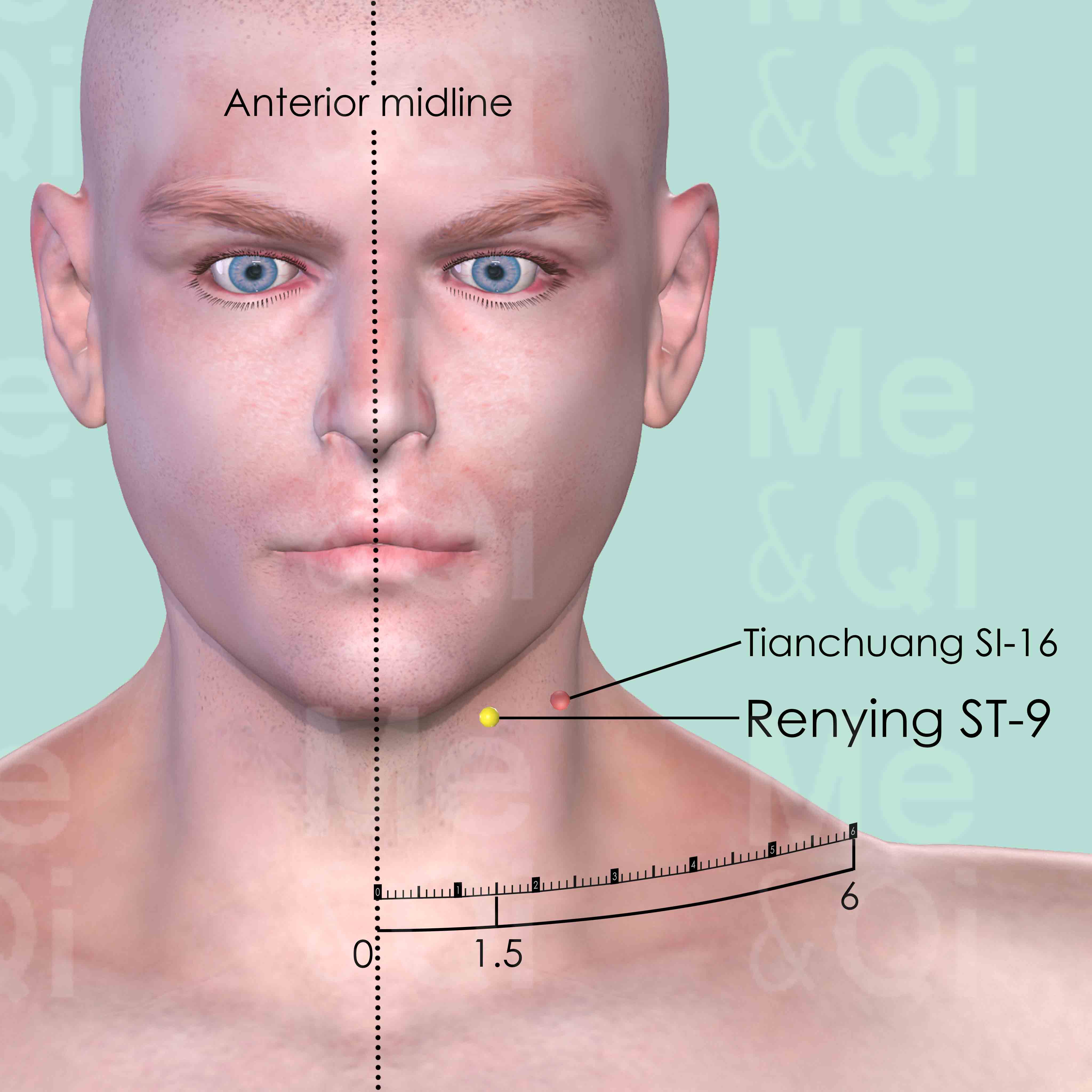
Renying ST-9
Level with the tip of Adam's apple, 1.5 cun lateral to the anterior midline, on the anterior border of the sternocleidomastoid muscle.
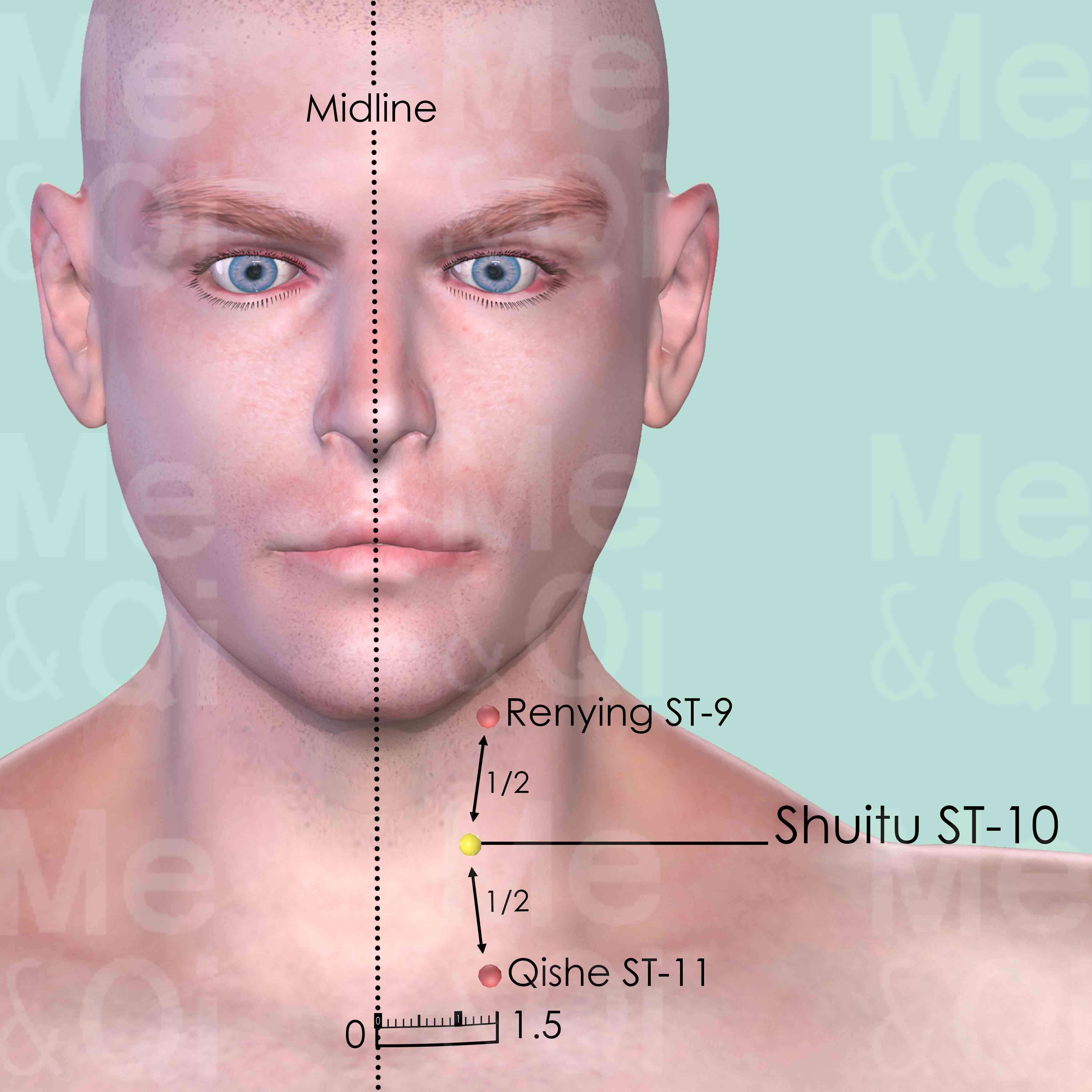
Shuitu ST-10
On the anterior border of sternocleidomastoid muscle, in the middle between Renying ST-9 and Qishe ST-11.
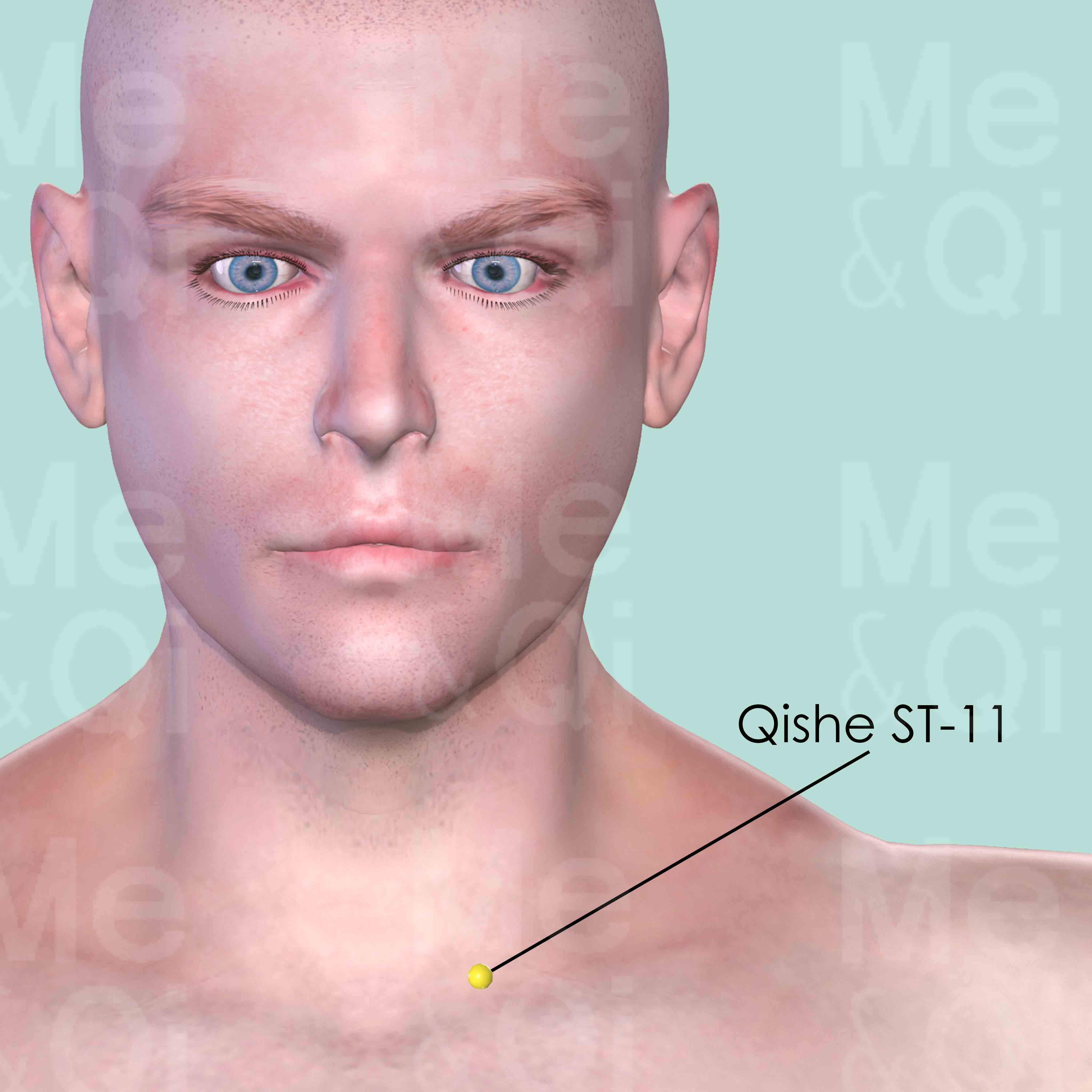
Qishe ST-11
On the upper border of the clavicle, between the tendons of the sternal and clavicular heads of the sternocleidomastoid muscle.
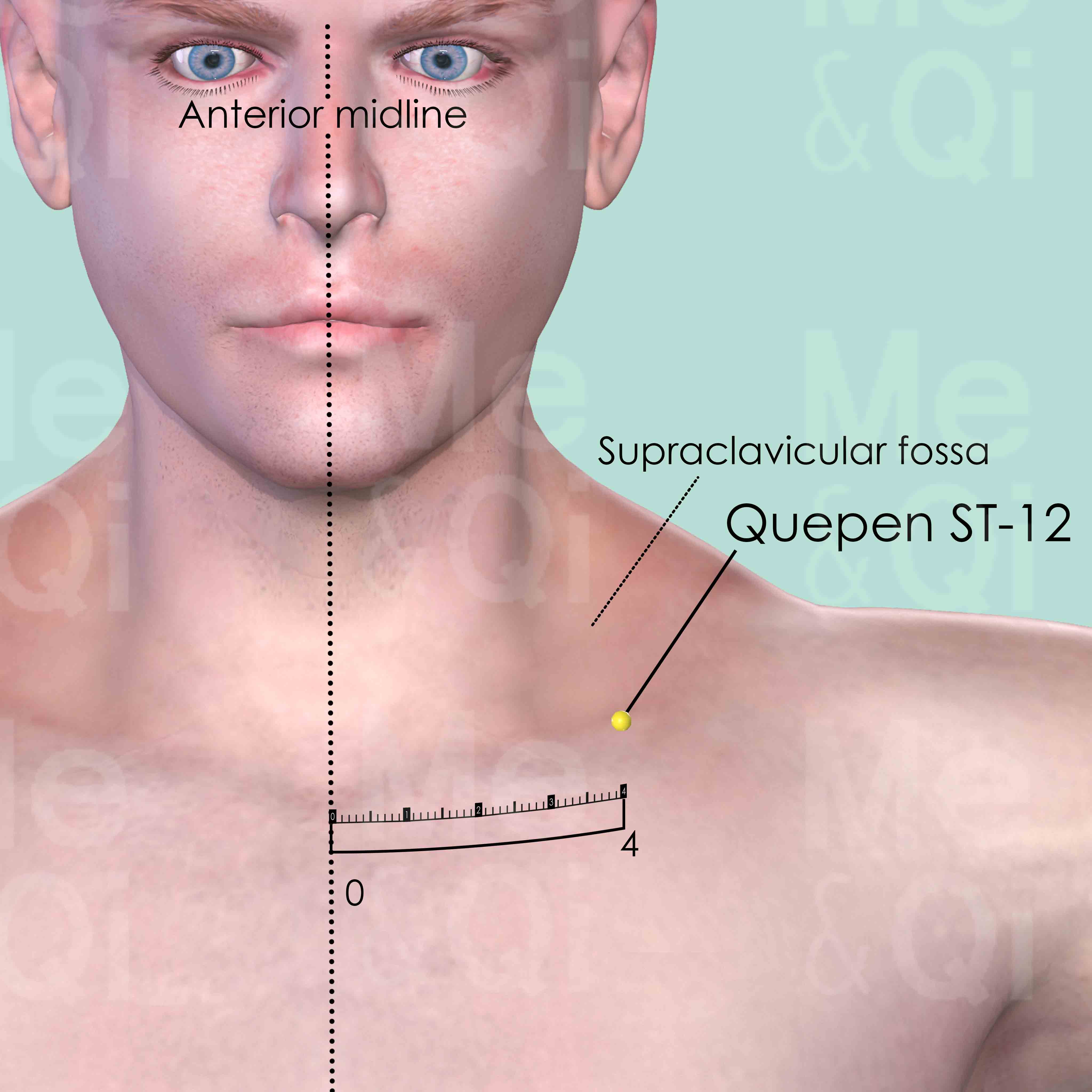
Quepen ST-12
About 4 cun lateral to the anterior midline, in the supraclavicular fossa, superior to the midpoint of the clavicle.
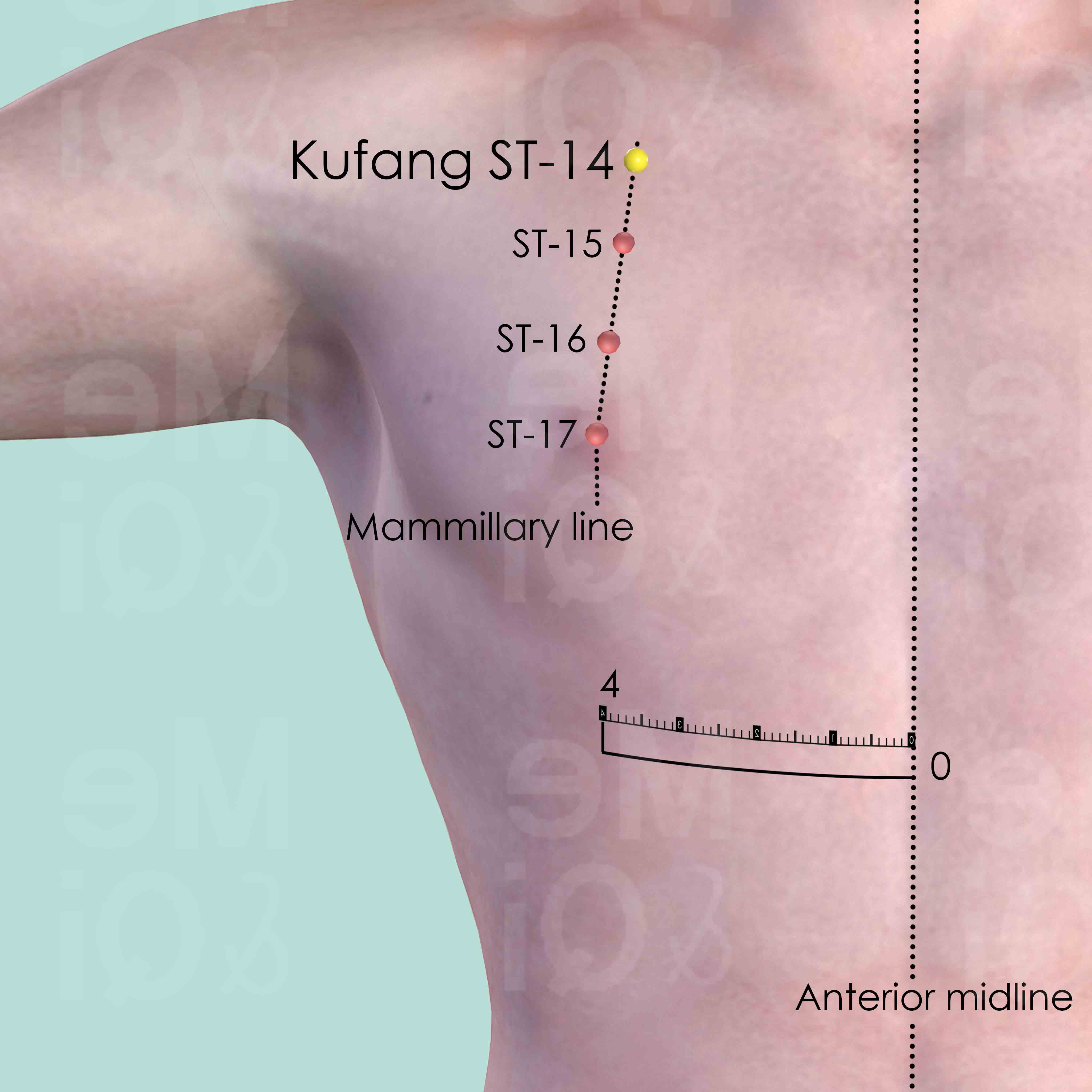
Kufang ST-14
In the 1st intercostal space, on the mammillary line, 4 cun lateral to the anterior midline.
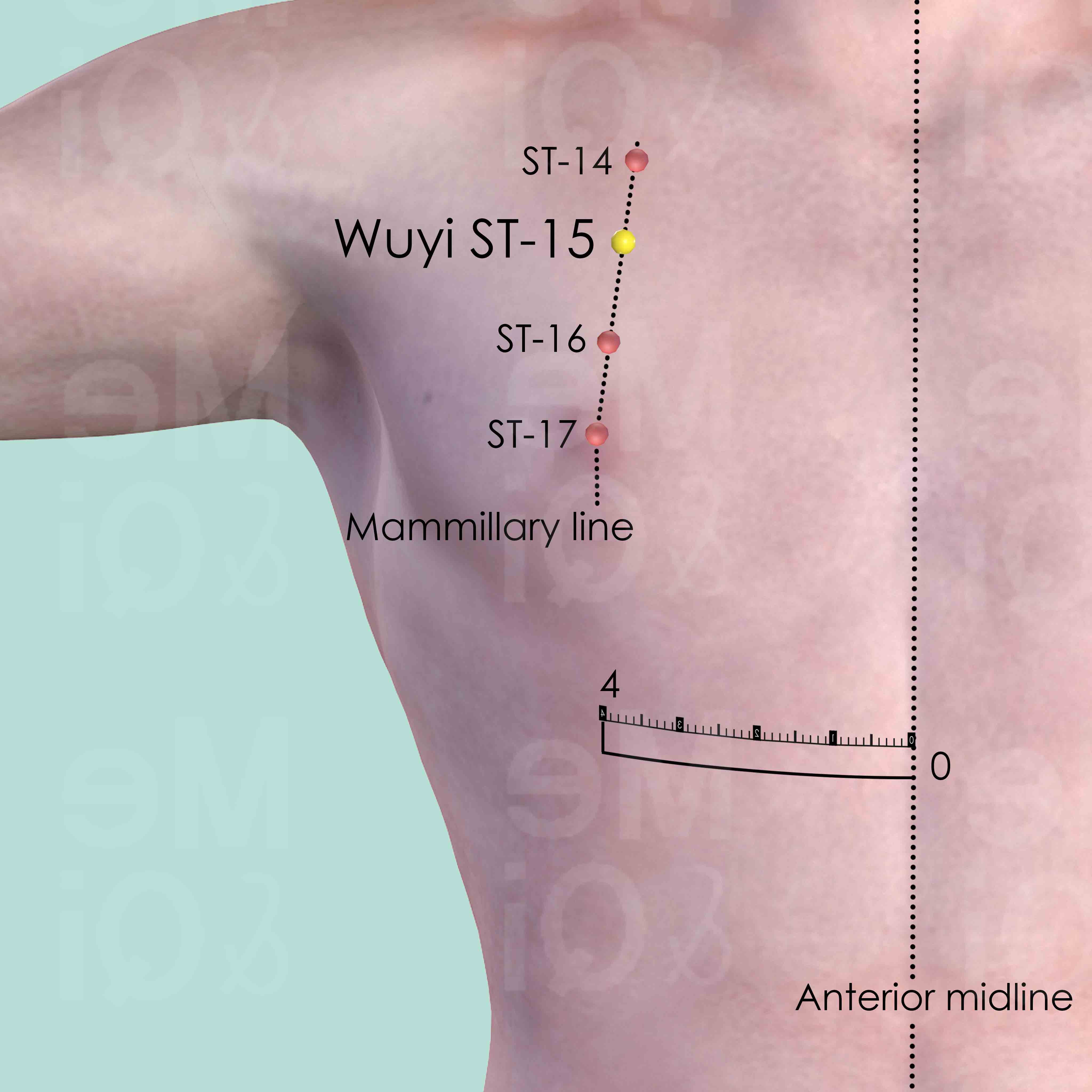
Wuyi ST-15
In the 2nd intercostal space, on the mammillary line, 4 cun lateral to the anterior midline.
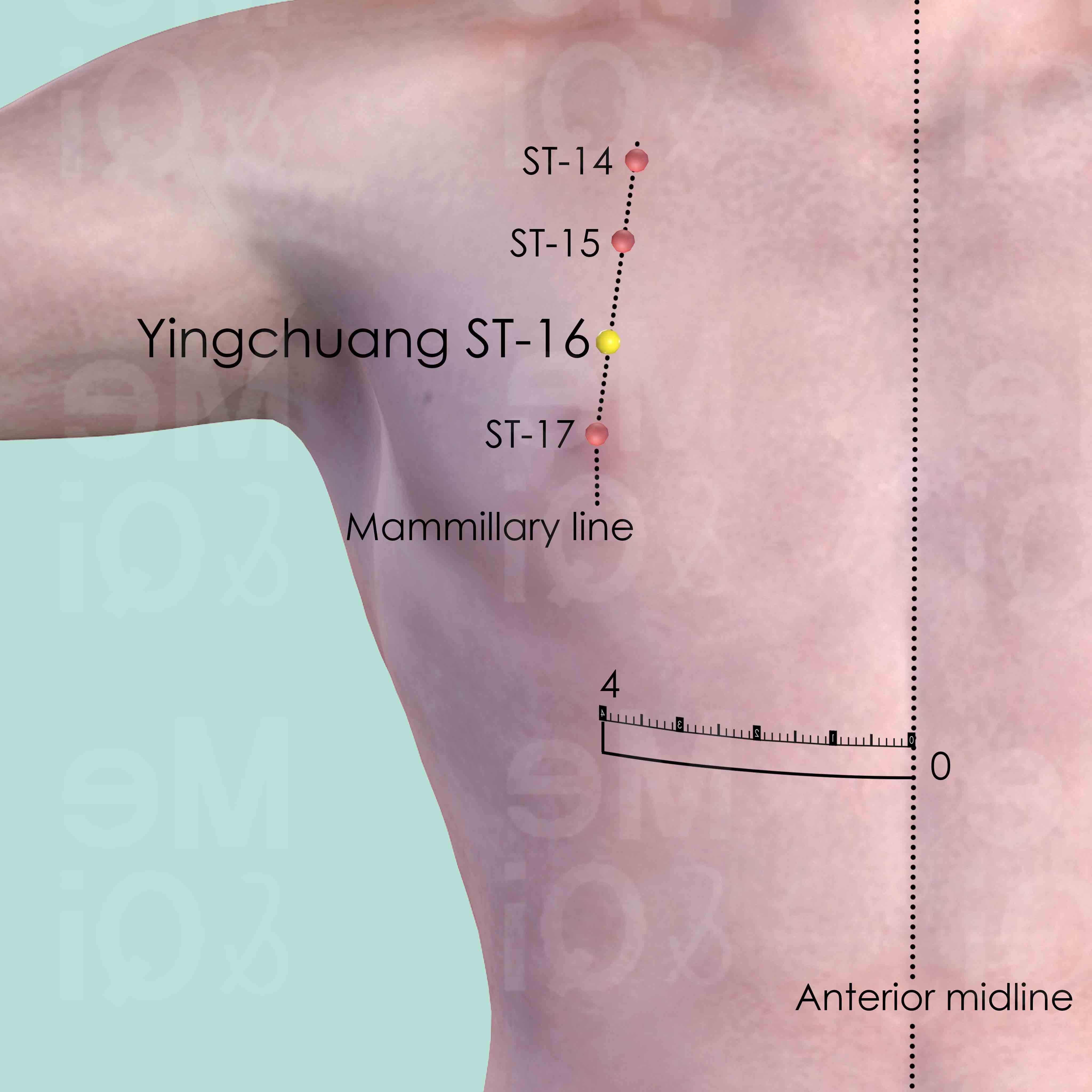
Yingchuang ST-16
In the 3nd intercostal space, on the mammillary line, 4 cun lateral to the anterior midline.
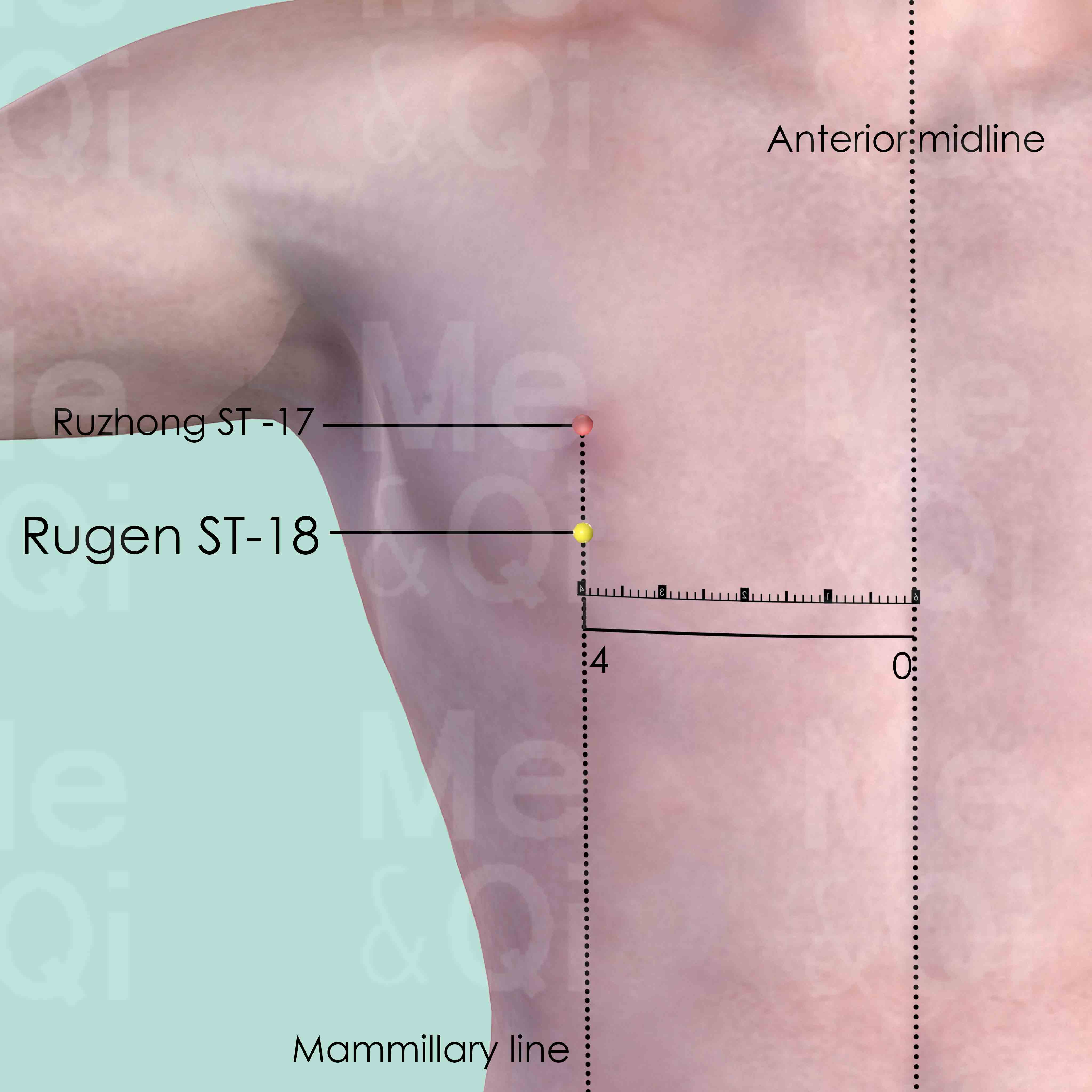
Rugen ST-18
In the 5nd intercostal space, on the mammillary line, 4 cun lateral to the anterior midline.
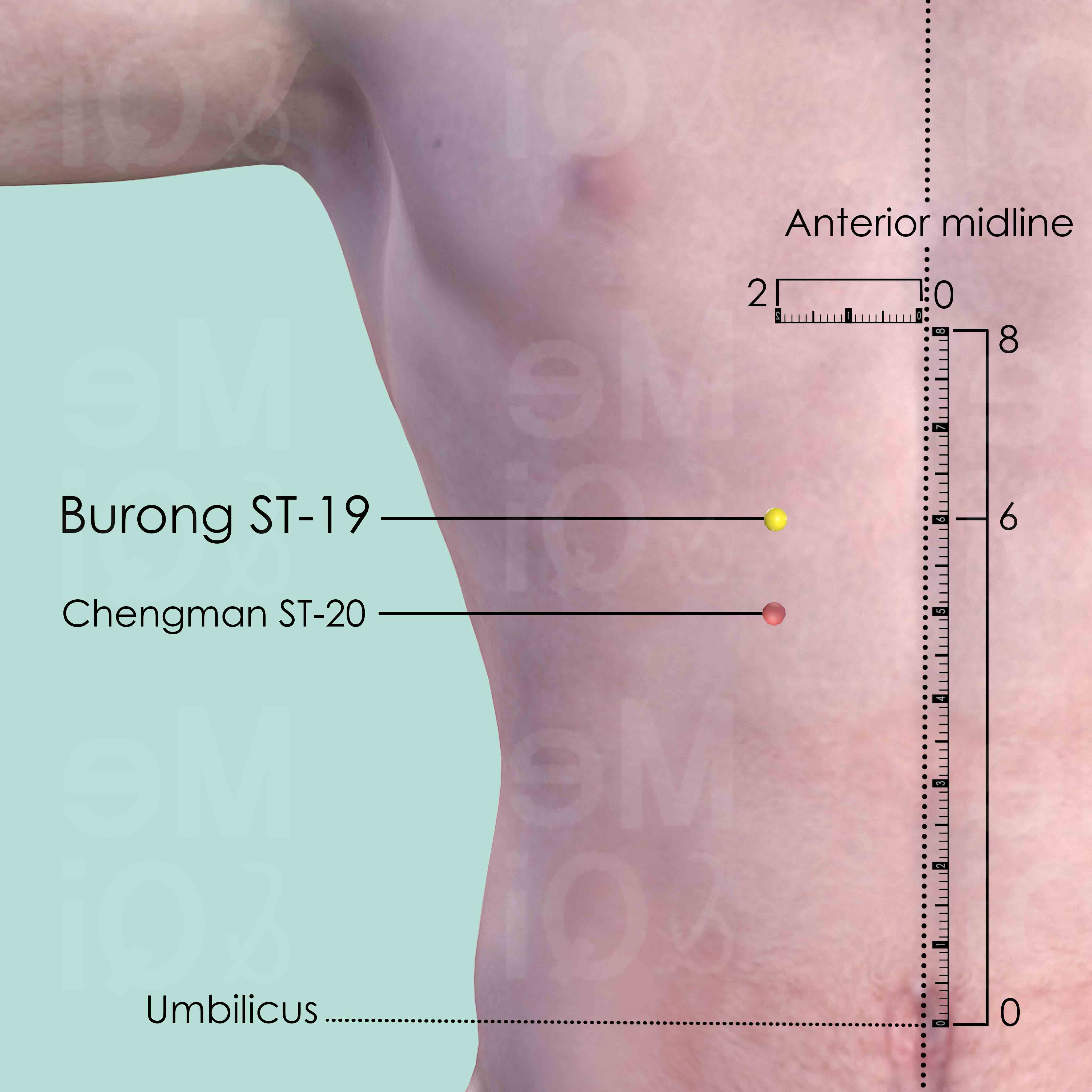
Burong ST-19
2 cun below the sternocostal angel and 6 cun above the umbilicus, 2 cun lateral to the anterior midline.
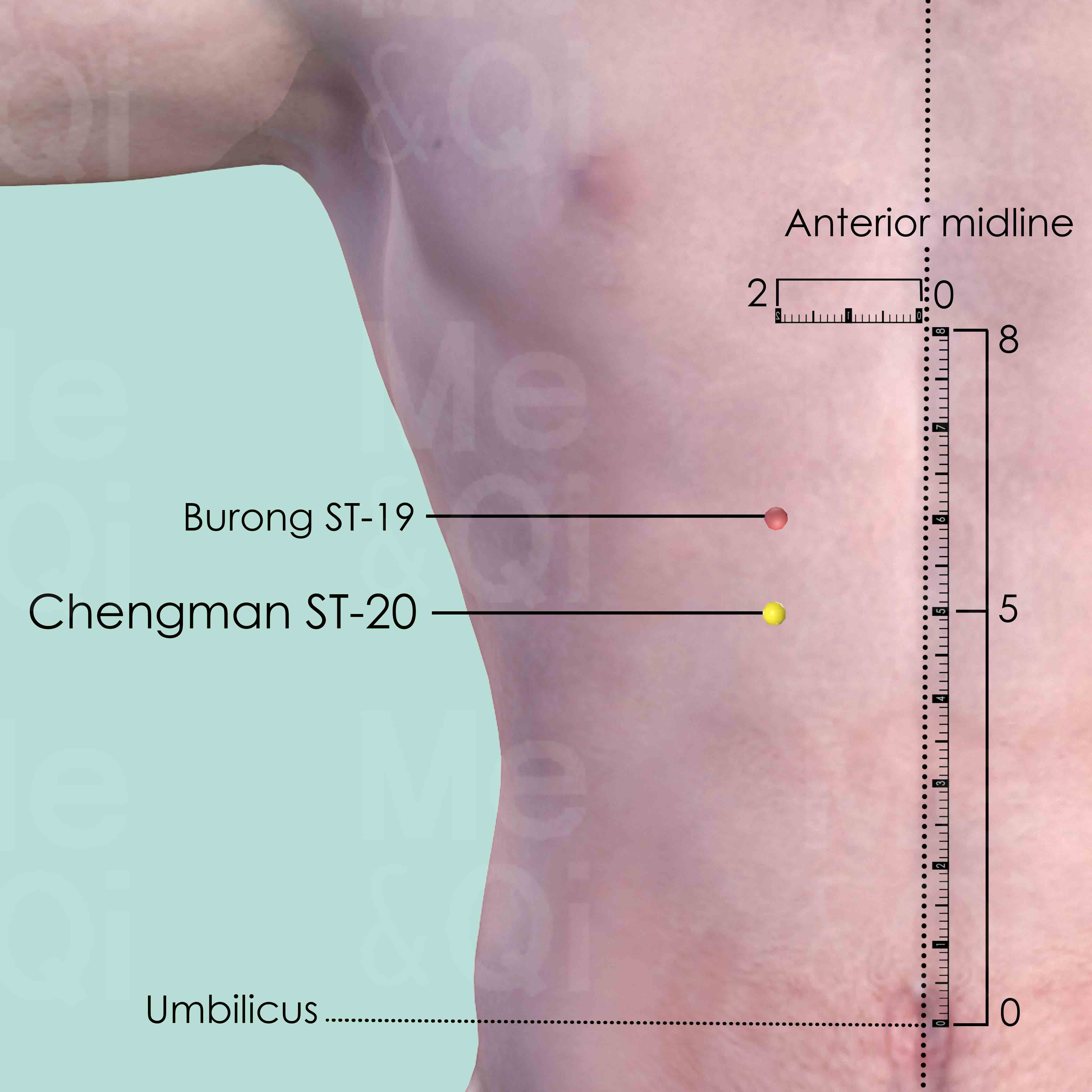
Chengman ST-20
5 cun above the umbilicus and 2 cun lateral to the anterior midline, or 1 cun below Burong ST-19.
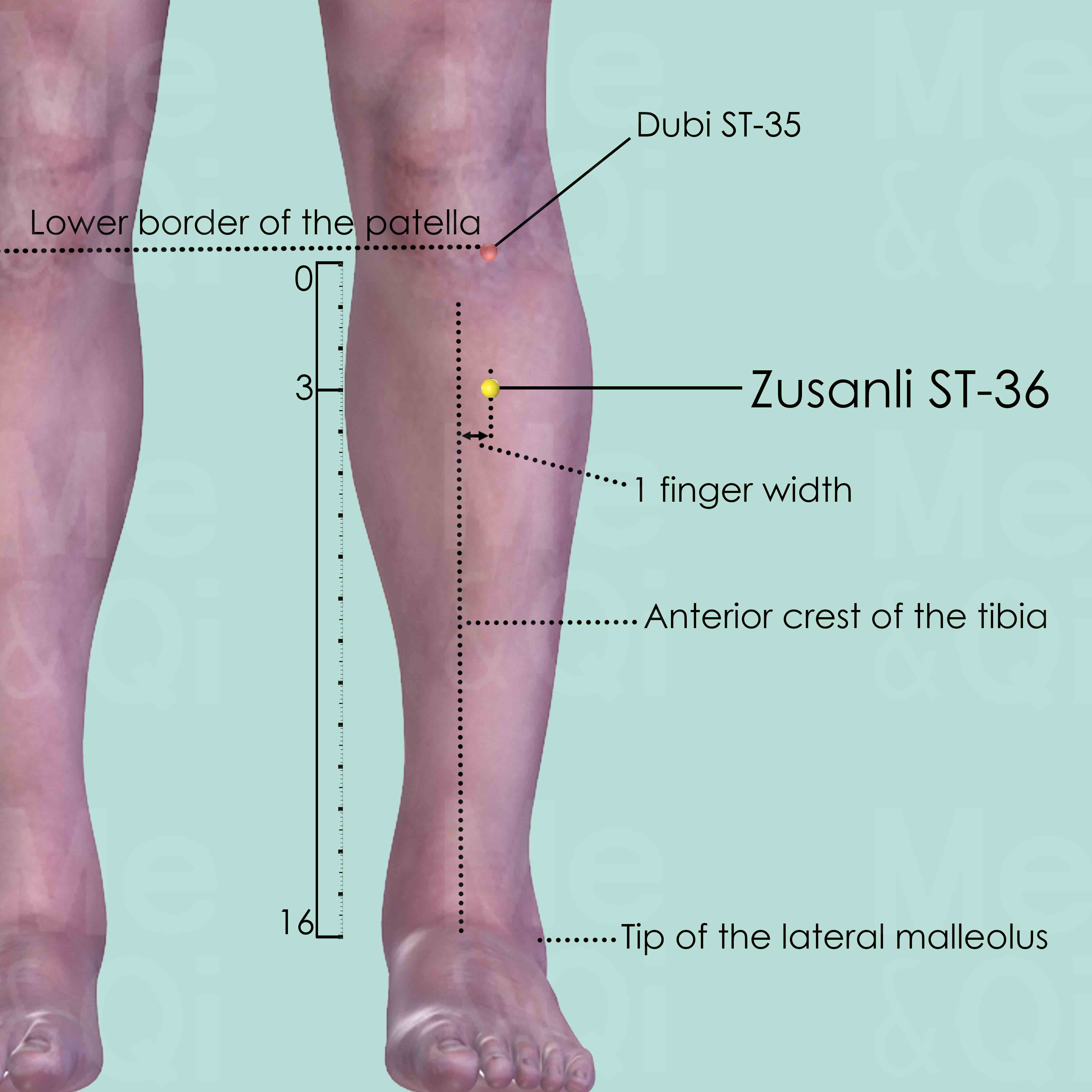
Zusanli ST-36
3 cun below Dubi ST-35, one finger breadth lateral to the anterior crest of the tibia, on the tibialis anterior muscle.
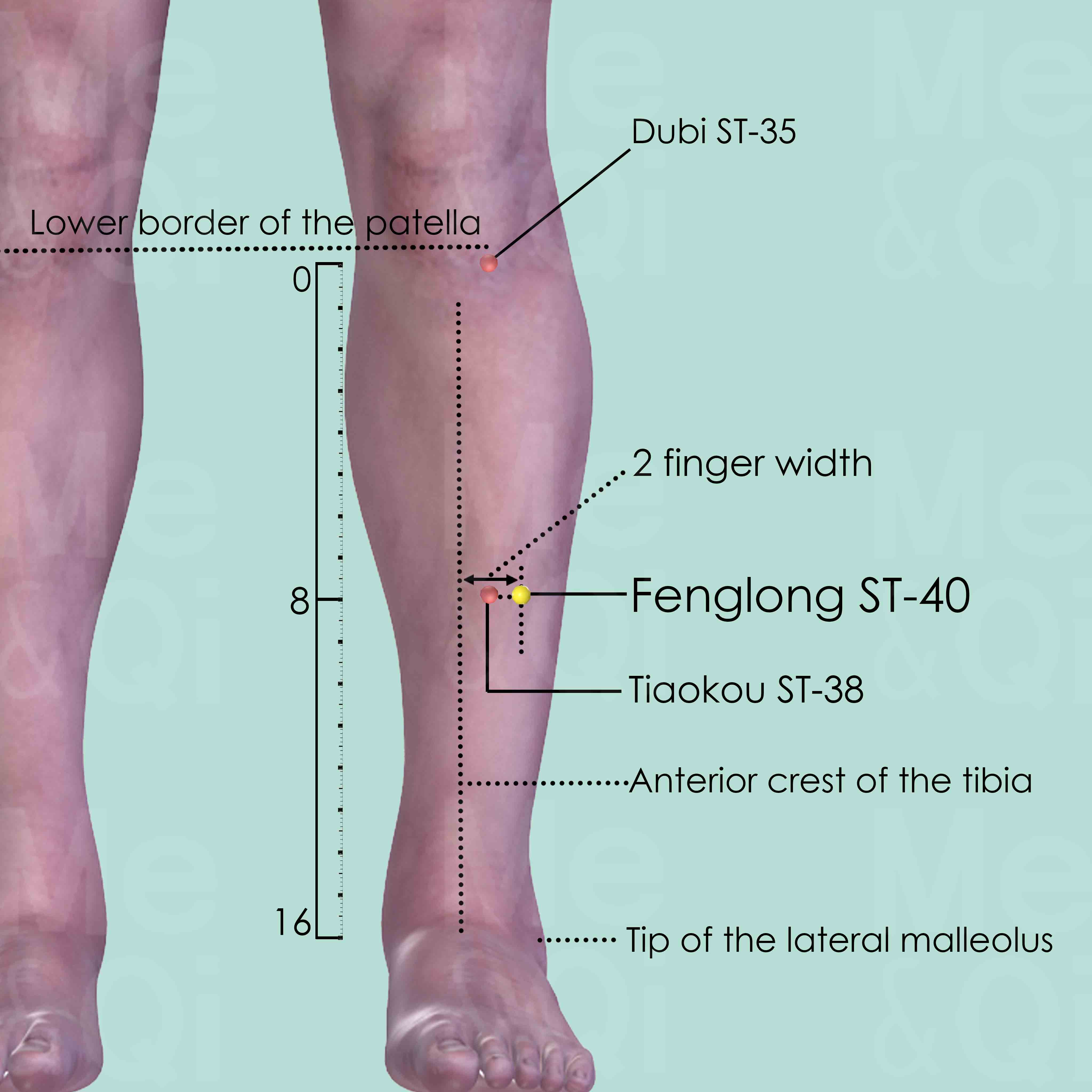
Fenglong ST-40
Midway between Dubi ST-35 and Jiexi ST-41, two middle finger-width from the anterior crest of the tibia, or one middle finger-width from Tiaokou ST-38.
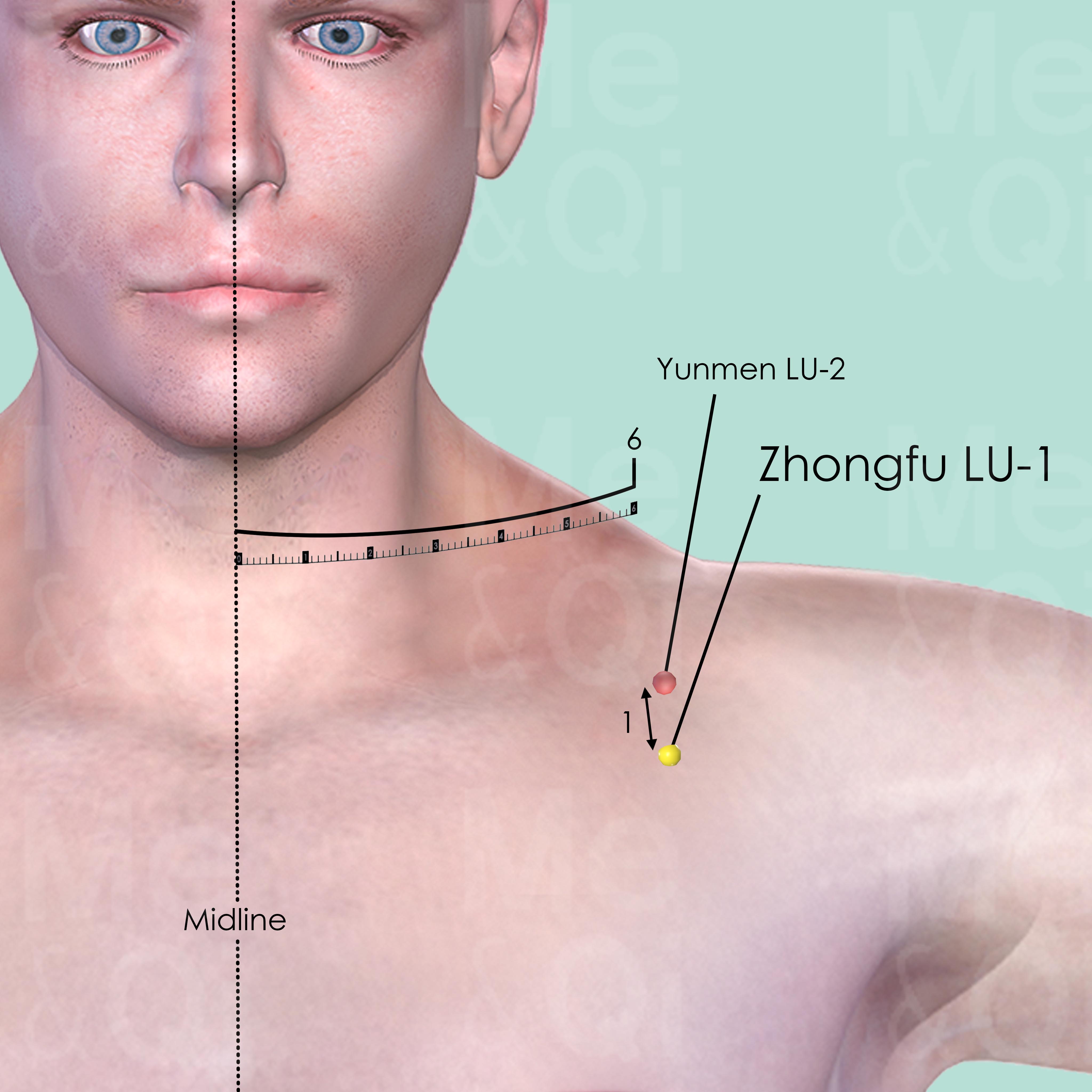
Zhongfu LU-1
On the lateral aspect of the chest, in the 1st intercostal space, 6 cun lateral to the midline, 1 cun inferior to Yunmen LU-2. Below the acromial extremity of the clavicle, slightly medial to the lower border of the coracoid process.
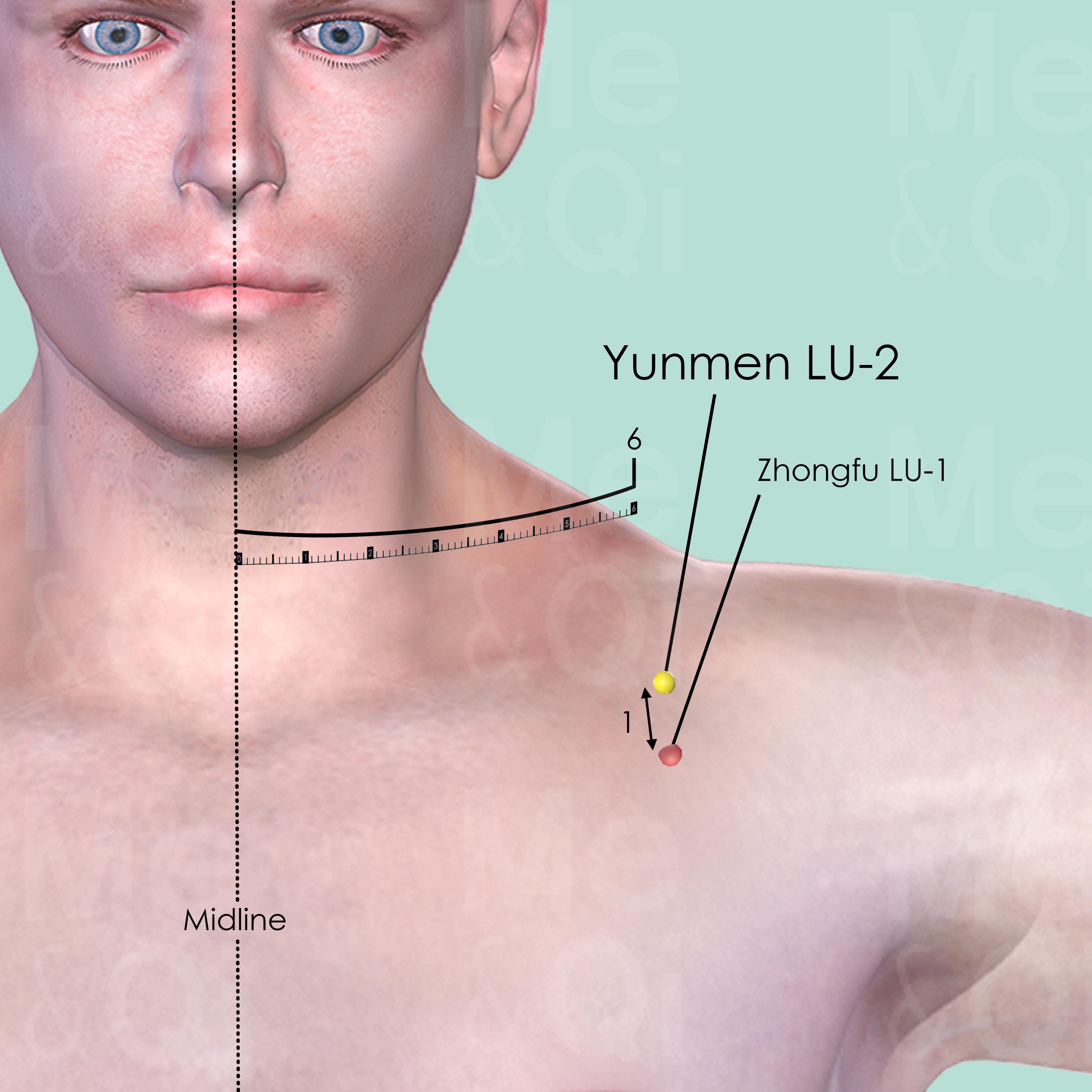
Yunmen LU-2
On the antero-lateral aspect of the chest, below the lateral extremity of the clavicle, about 6 cun lateral to the anterior midline in the centre of the deltopectoral triangle.
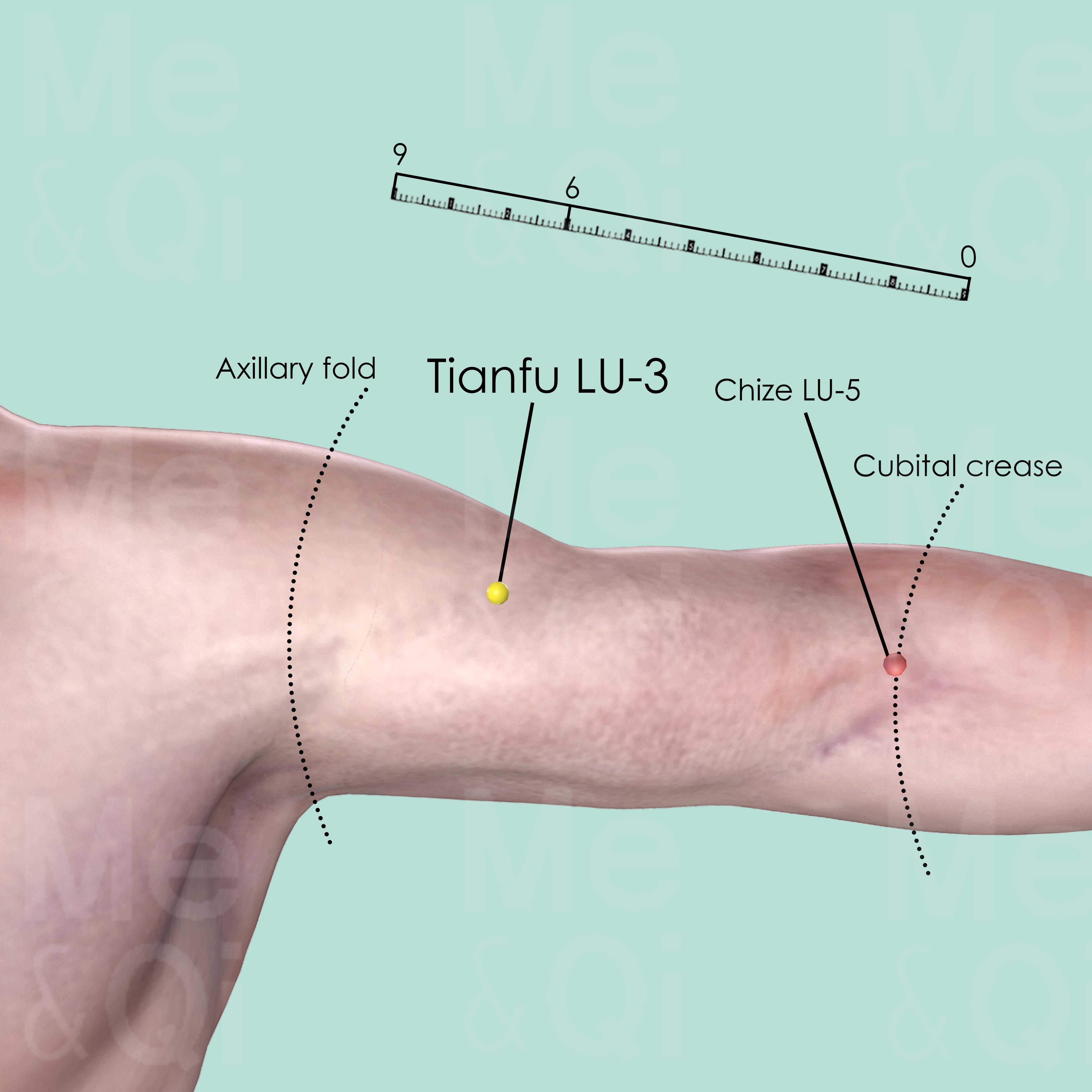
Tianfu LU-3
On the medial aspect of the upper arm, 3 cun below the end of the axillary fold and 6 cun above Chize LU-5, in the depression on the lateral border of biceps muscle.
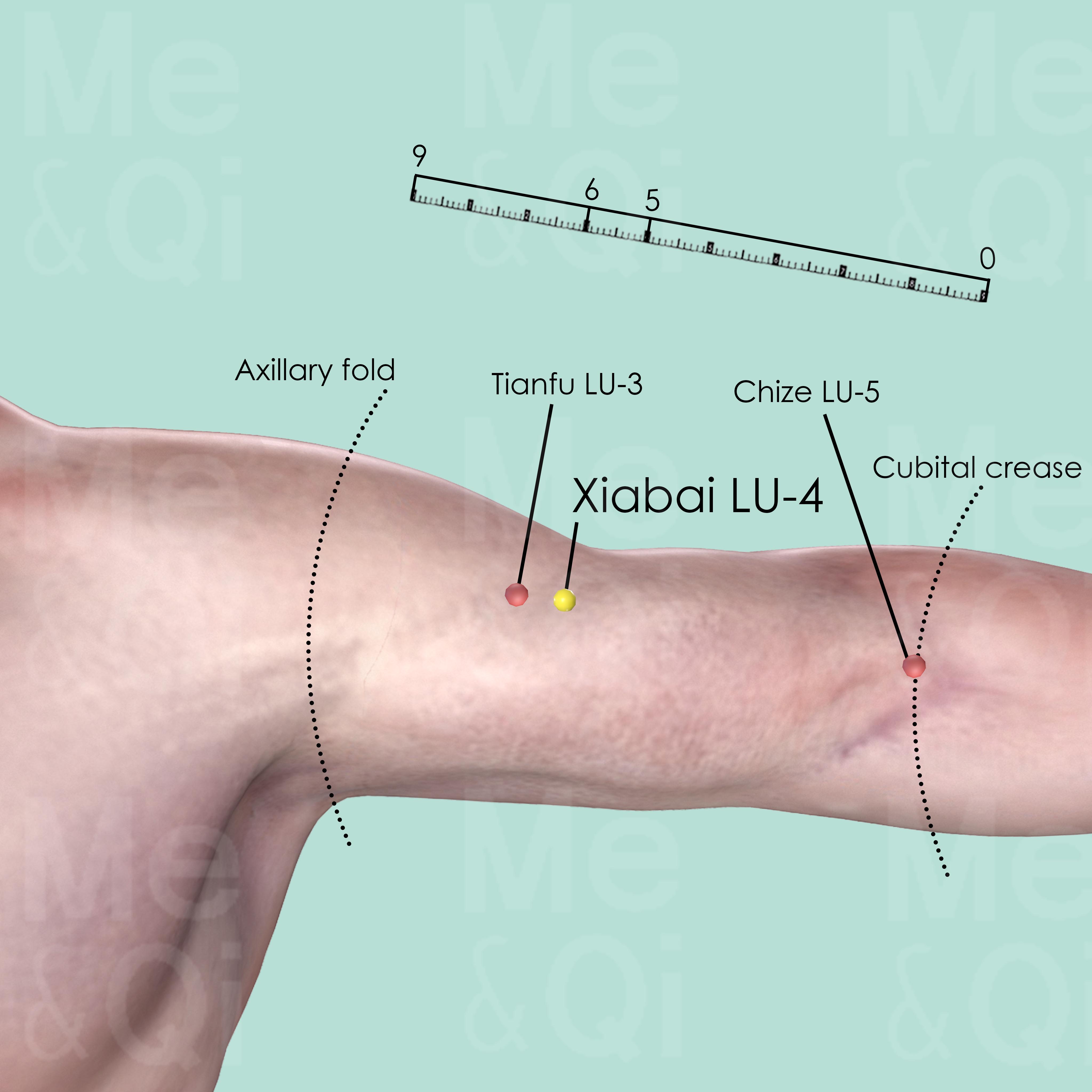
Xiabai LU-4
On the medial aspect of the upper arm, 1 cun below Tianfu LU-3, on the radial side of biceps brachii muscle.
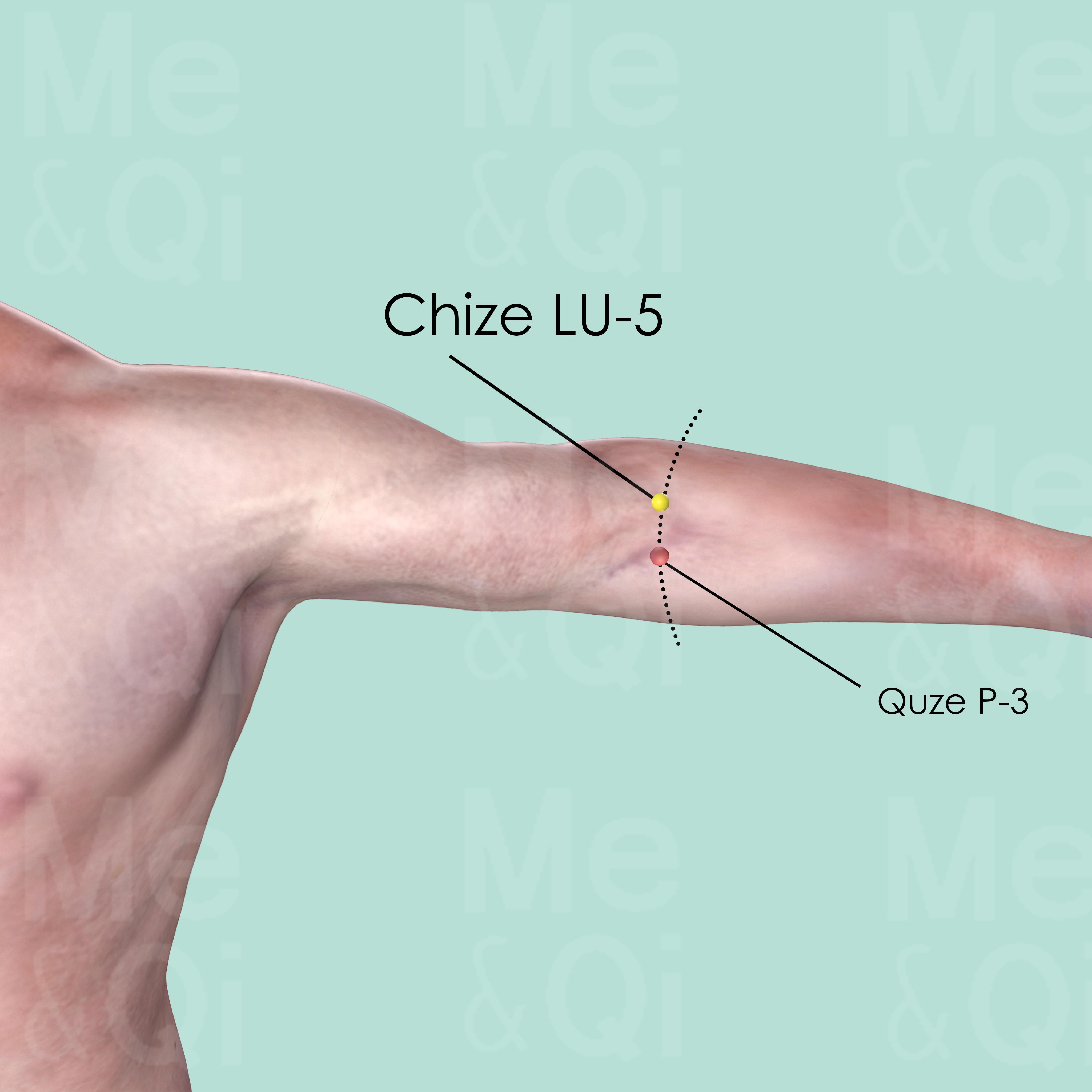
Chize LU-5
On the cubital crease, on the redial aspect of the biceps tendon. It can be easily identified when the elbow is slightly flexed.
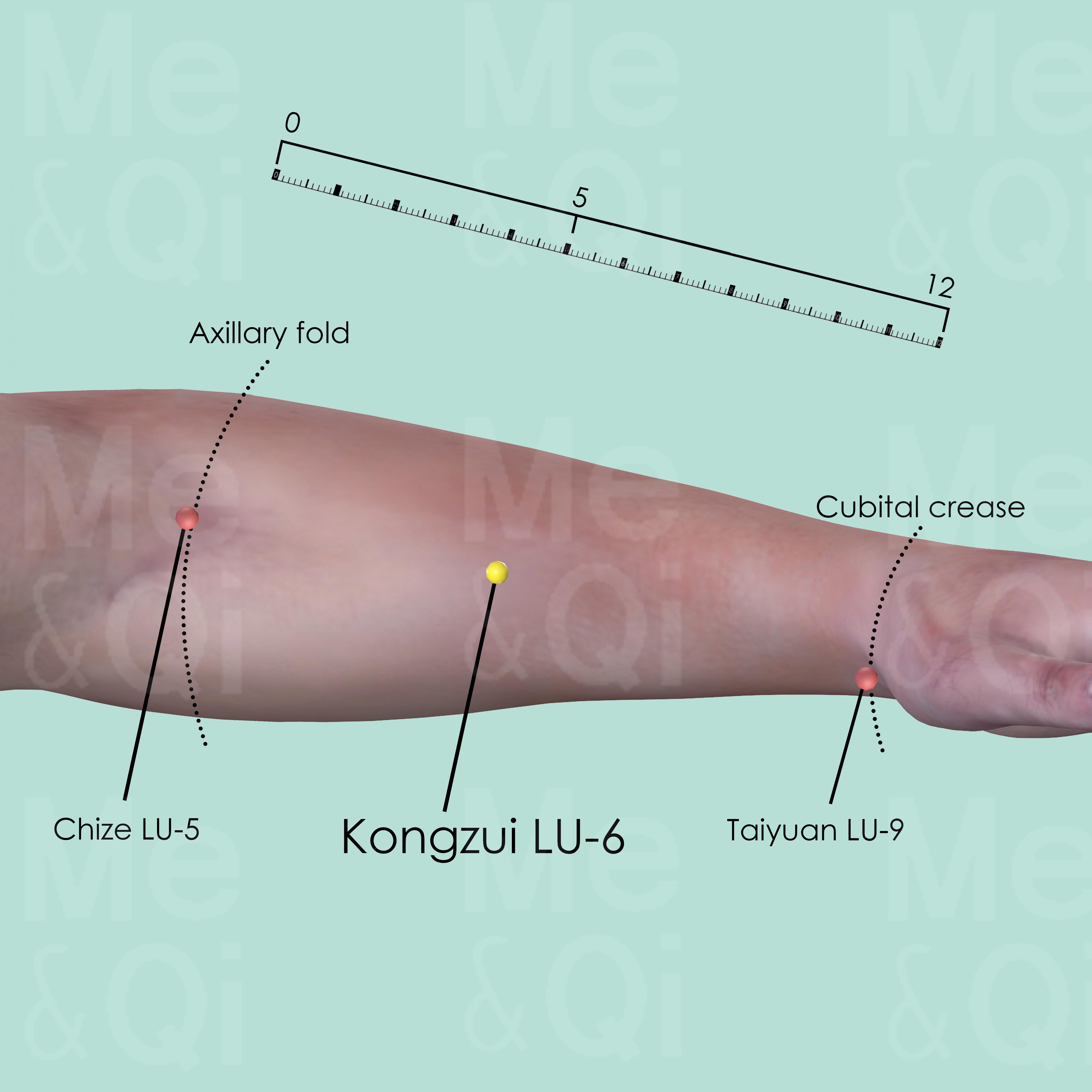
Kongzui LU-6
On the palmar aspect of the forearm, on the line joining Taiyuan LU-9 and Chize LU-5, 7 cun above Taiyuan LU-9.
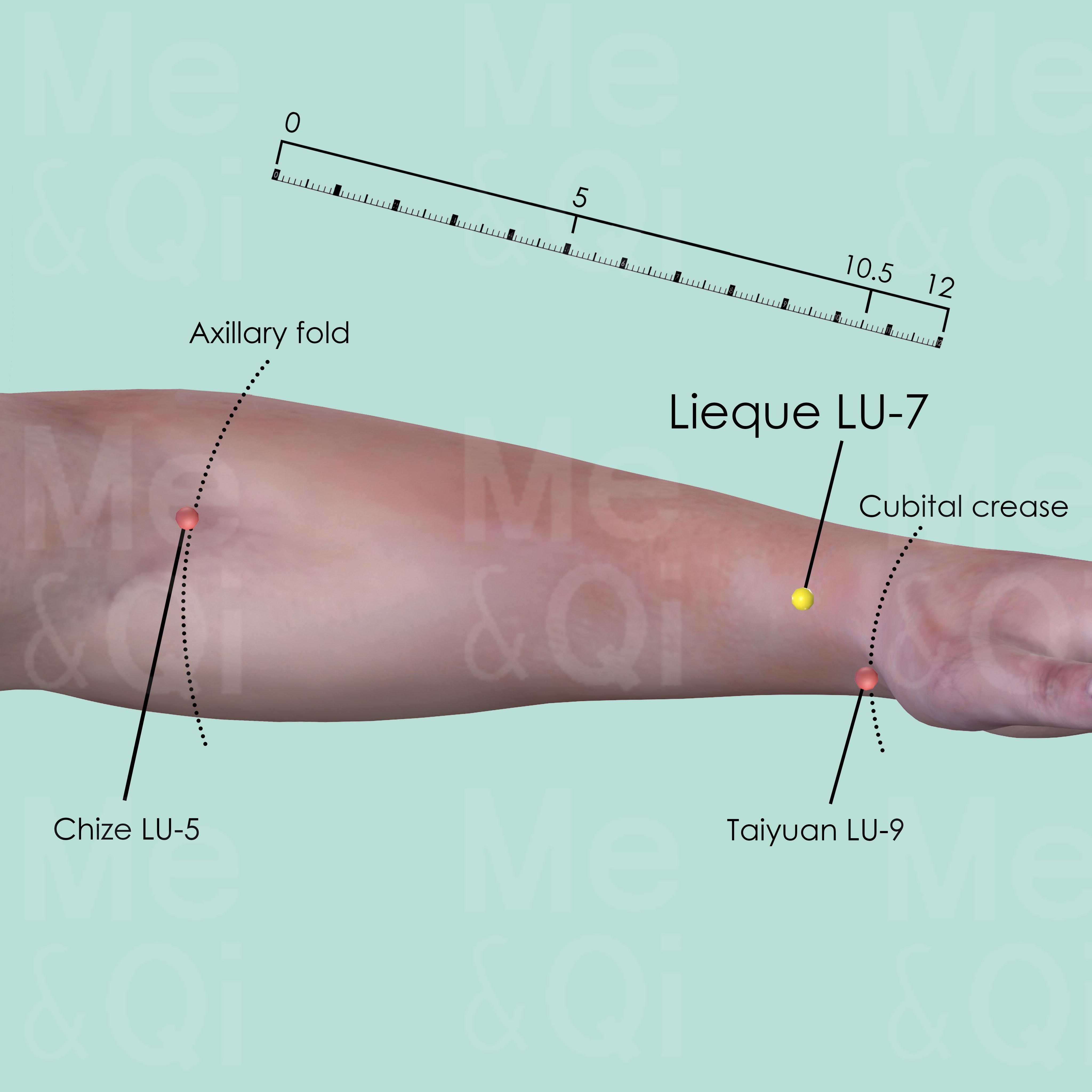
Lieque LU-7
Above the styloid process of the radius, about 1.5 cun proximal to the wrist crease (wrist joint space) in a V-shaped depression.
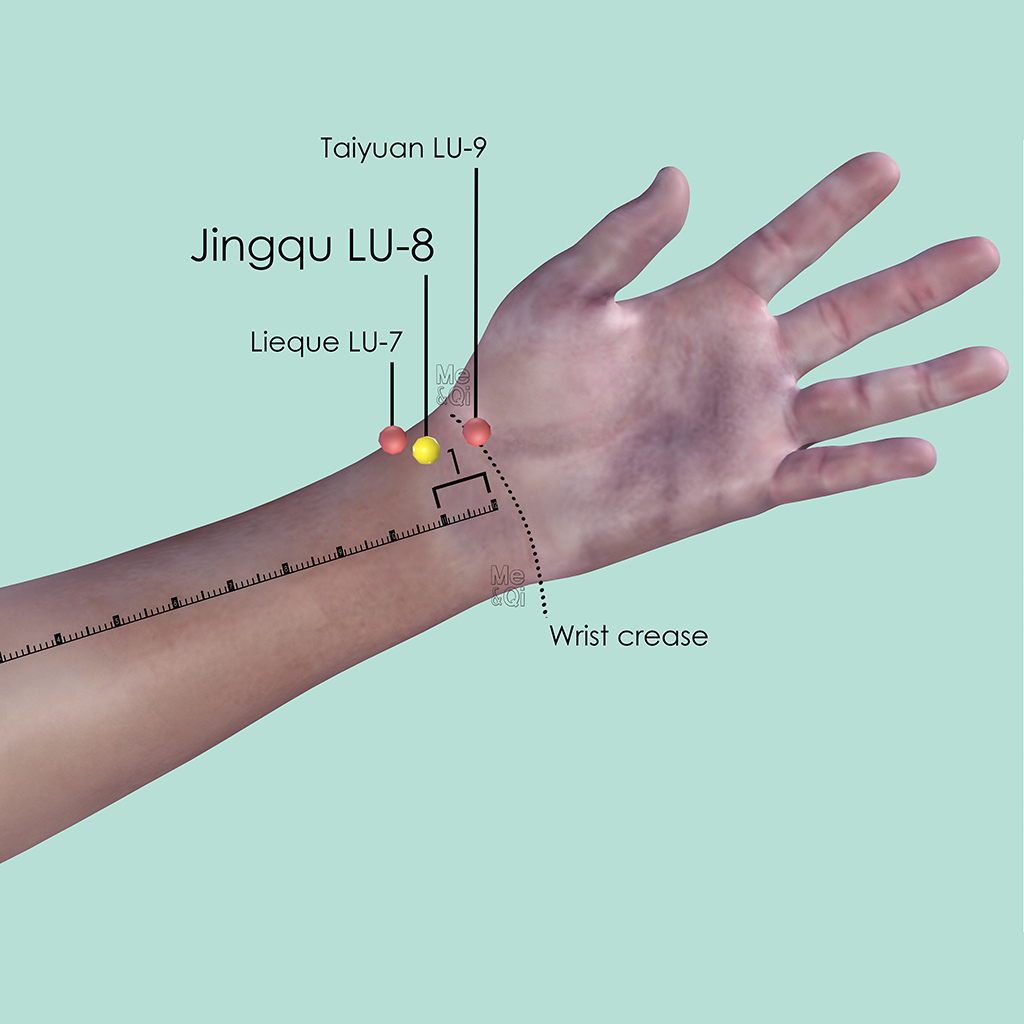
Jingqu LU-8
1 cun proximal to the wrist crease (wrist joint space), in the depression on the radial side of the radial artery.
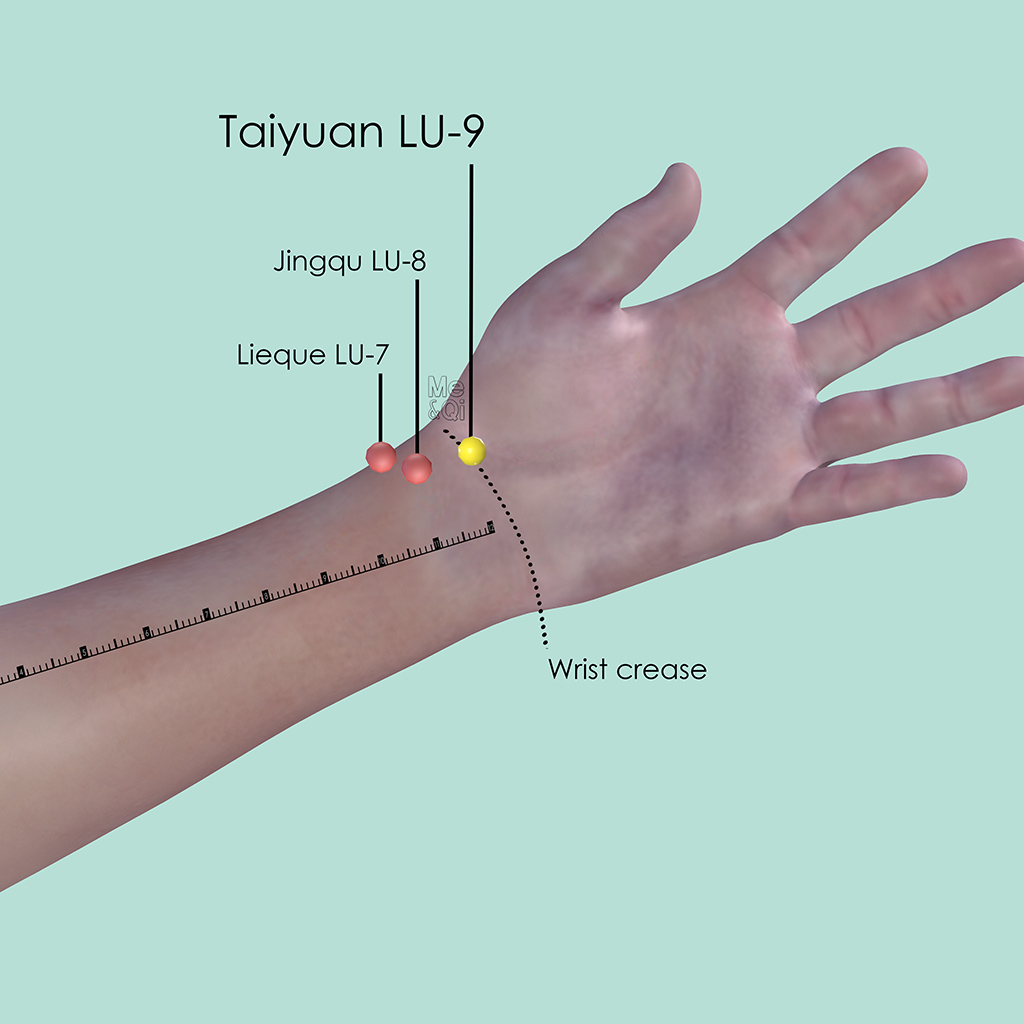
Taiyuan LU-9
At the wrist crease (wrist joint space), in the depression on the radial aspect of the radial artery and ulnar to the tendon of the abductor pollicis longus muscle.
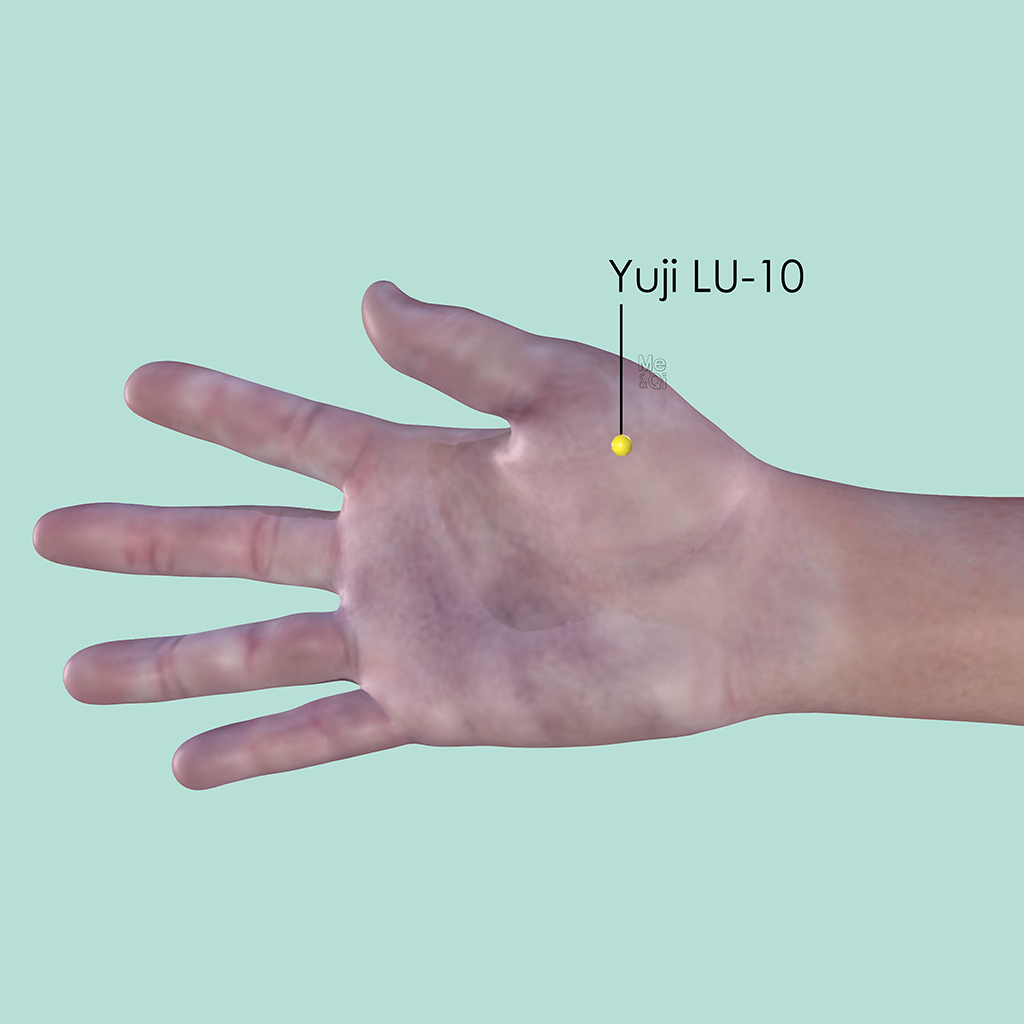
Yuji LU-10
On the radial aspect of the midpoint of the first metacarpal bone, on the junction of the red and white skin (the junction of the dorsum and palm of the hand).
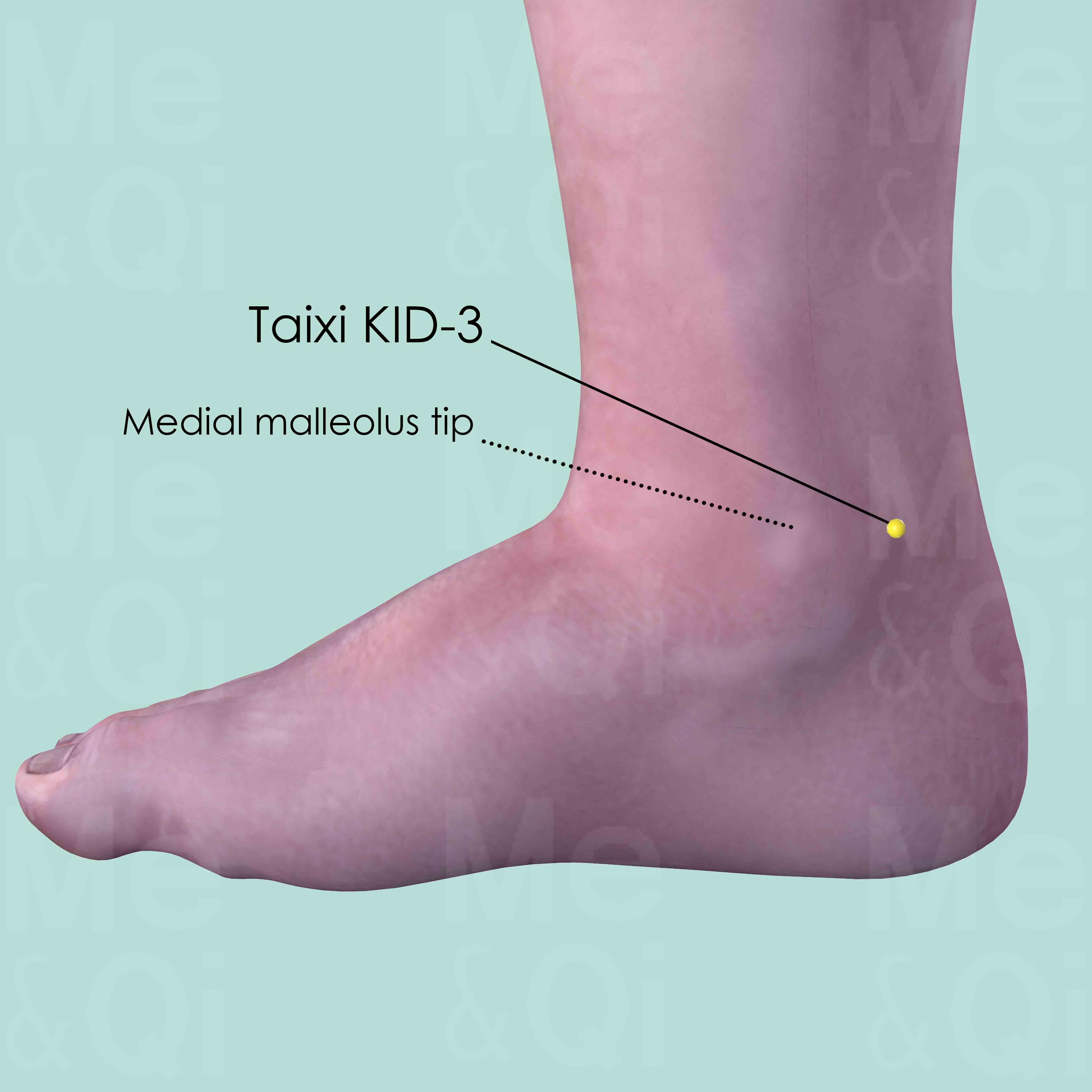
Taixi KID-3
In the depression between the medial malleolus tip and Achilles tendon (Calcaneal tendon), level with the tip of the medial malleolus.
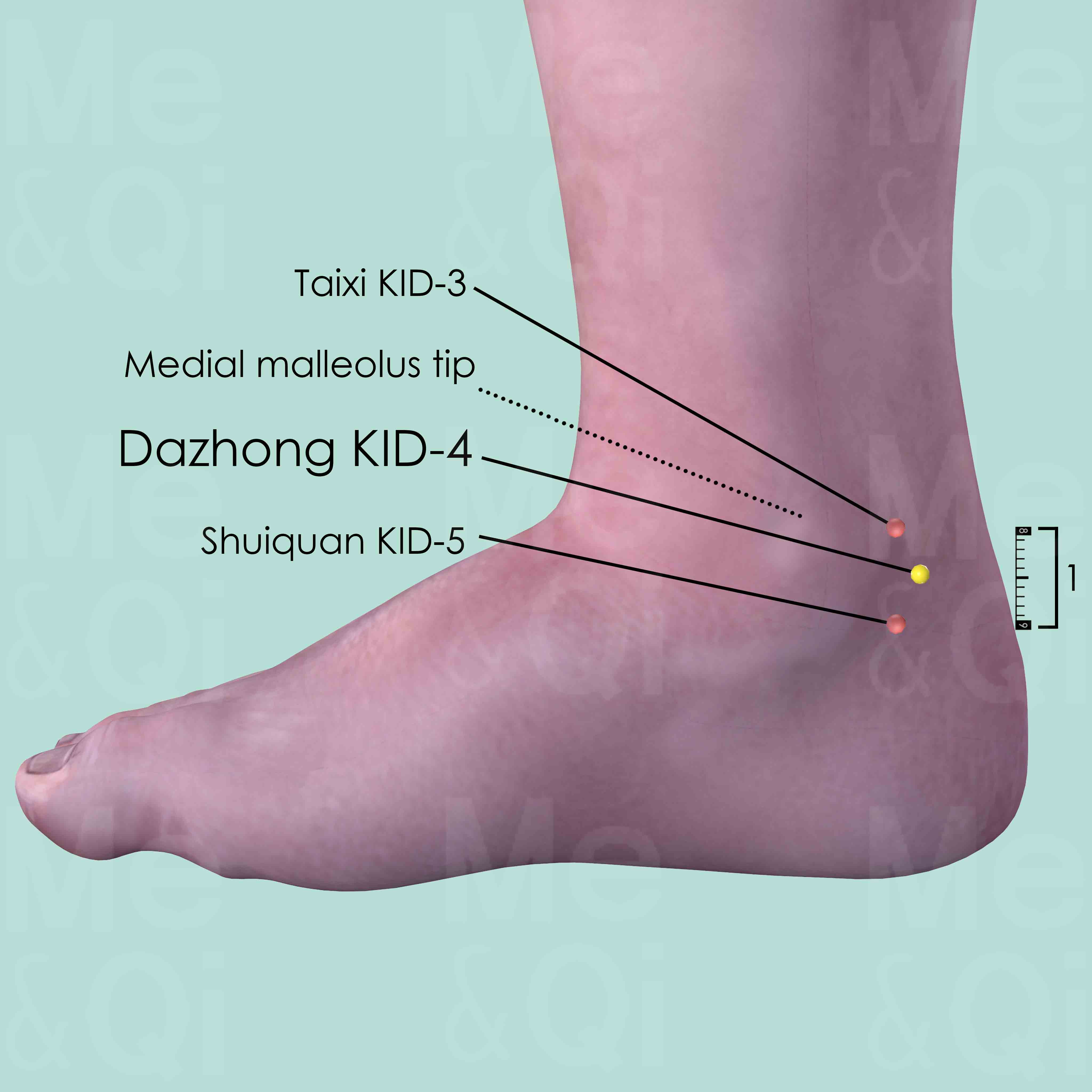
Dazhong KID-4
Posterior and inferior to the medial malleolus, in the depression medial to the Achilles tendon, superior to its insertion at the calcaneus.
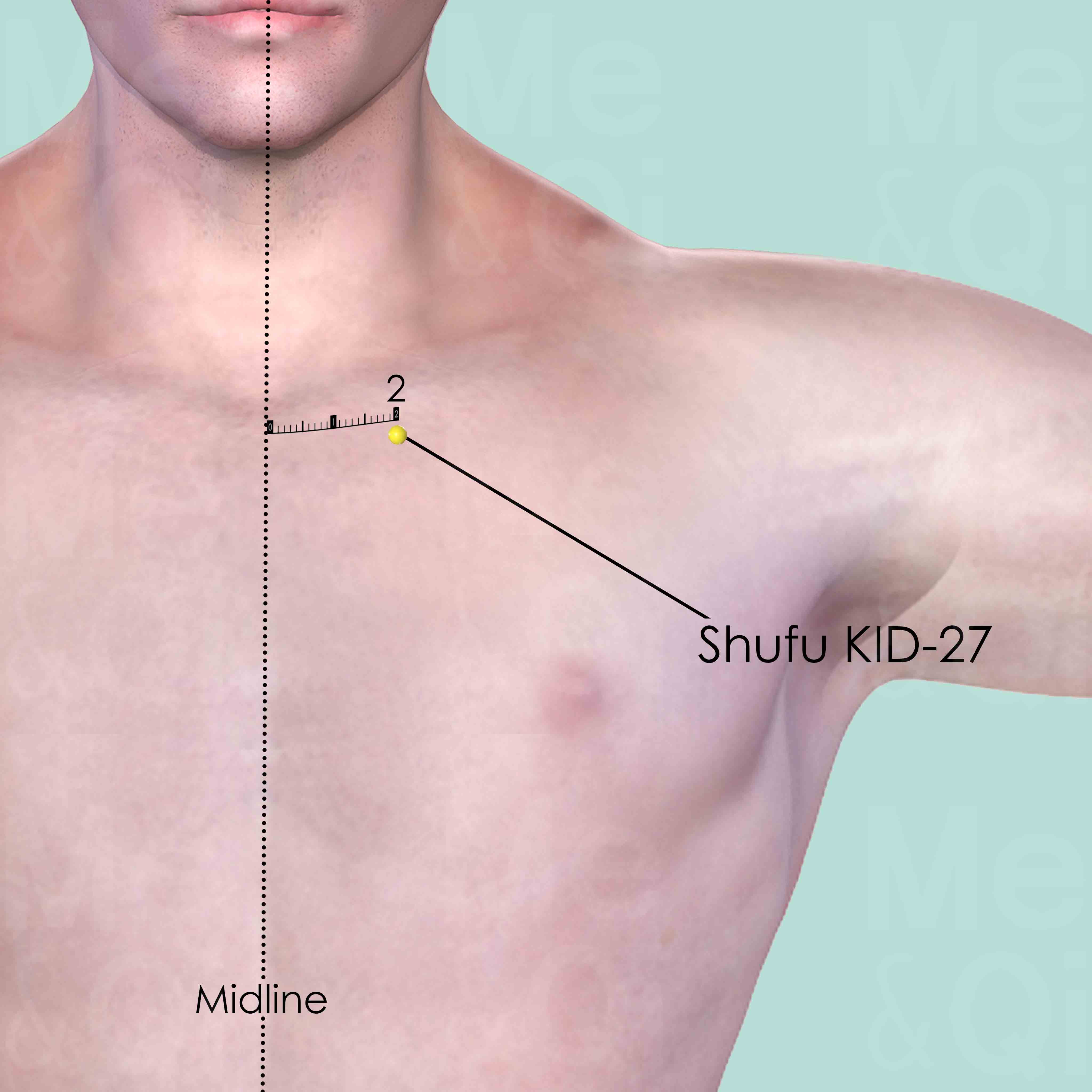
Shufu KID-27
In the depression on the lower border of the clavicle, 2 cun lateral to the anterior midline.
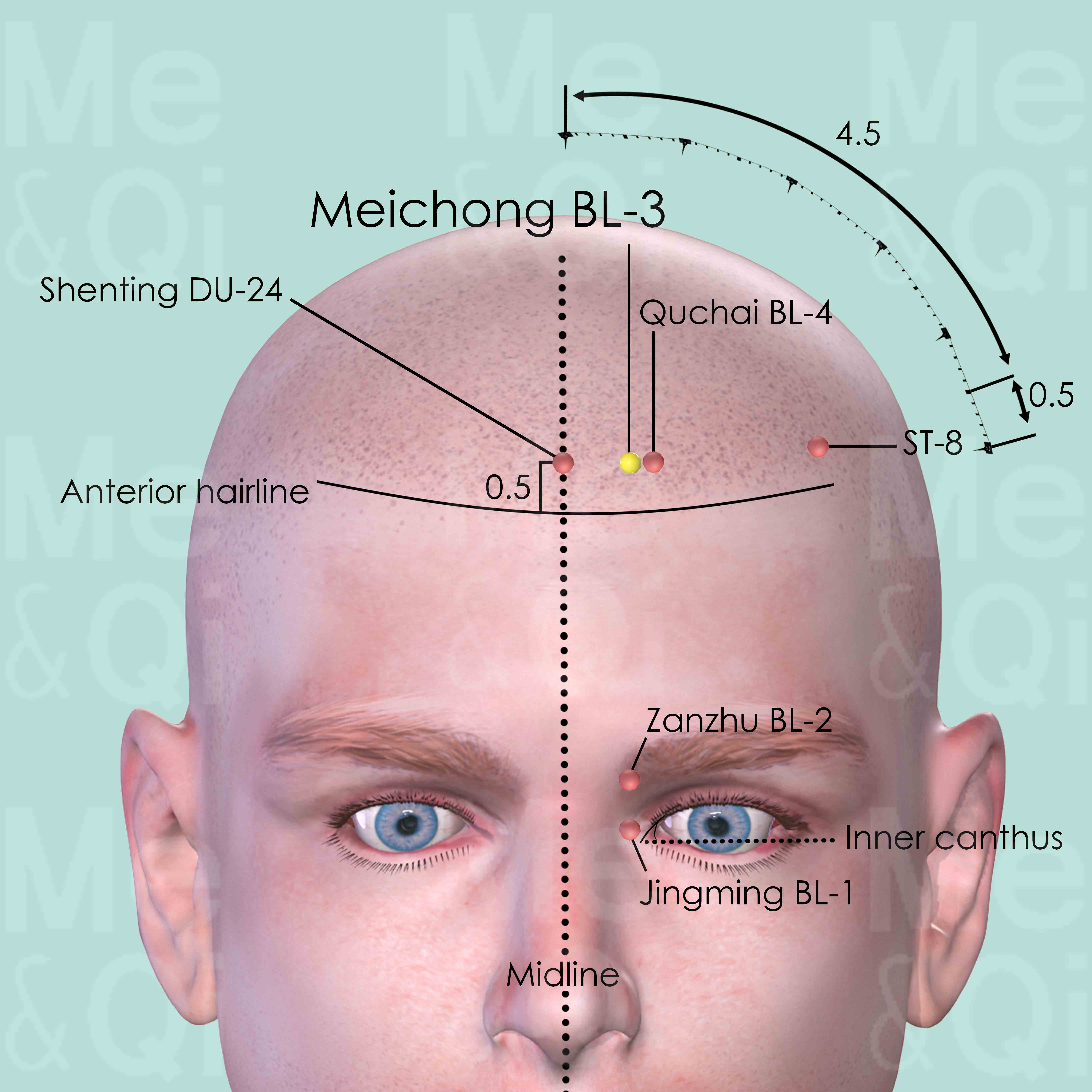
Meichong BL-3
Vertically above the medial extremity of the eyebrow and medial canthus of the eye, 0.5 cun within the anterior hairline, between Shenting DU-24 and Quchai BL-4.
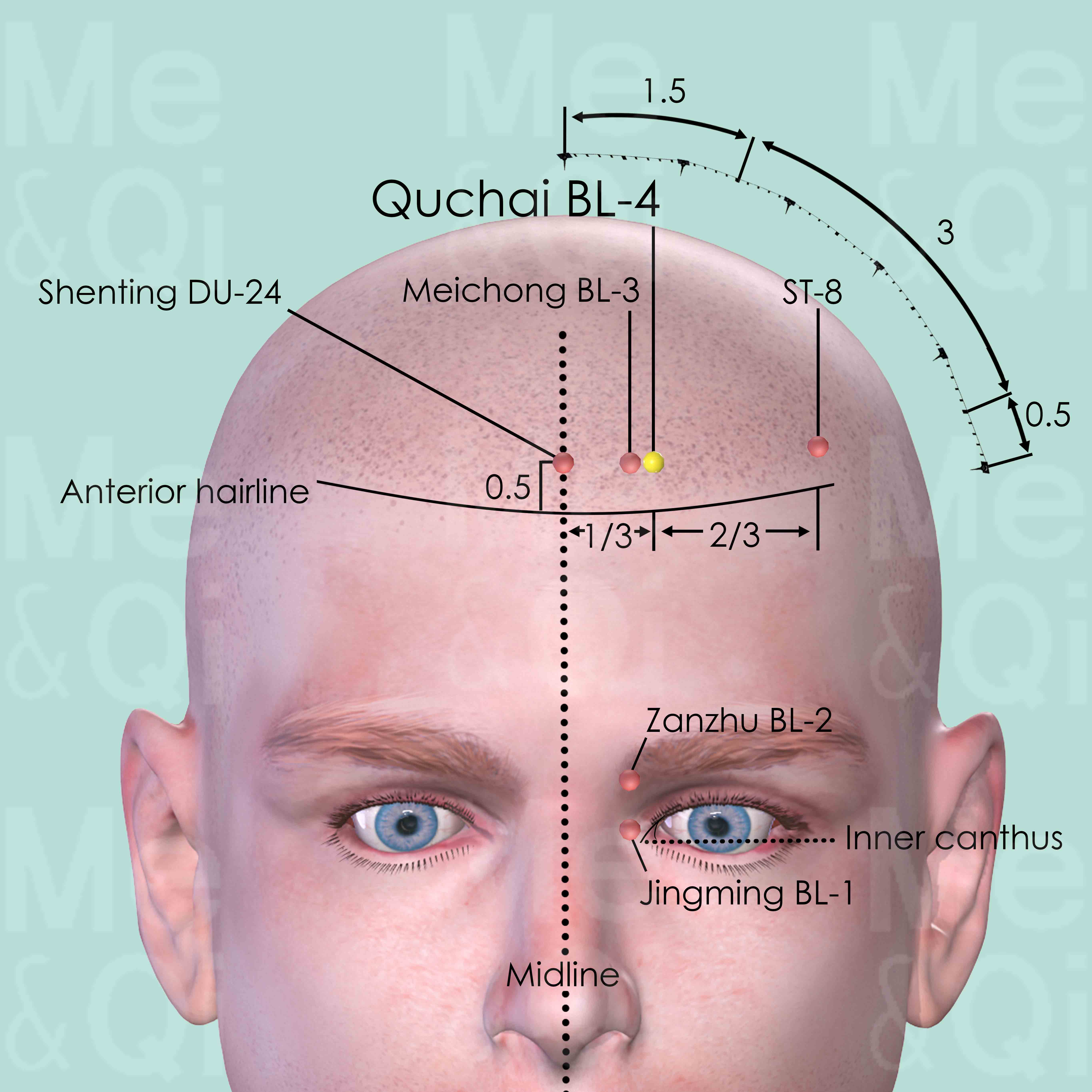
Qucha BL-4
0.5 cun superior to the anterior hairline and 1.5 cun lateral to the anterior midline, at the junction of the medial third and lateral two-thirds of the distance from anterior midline to Touwei ST-8.
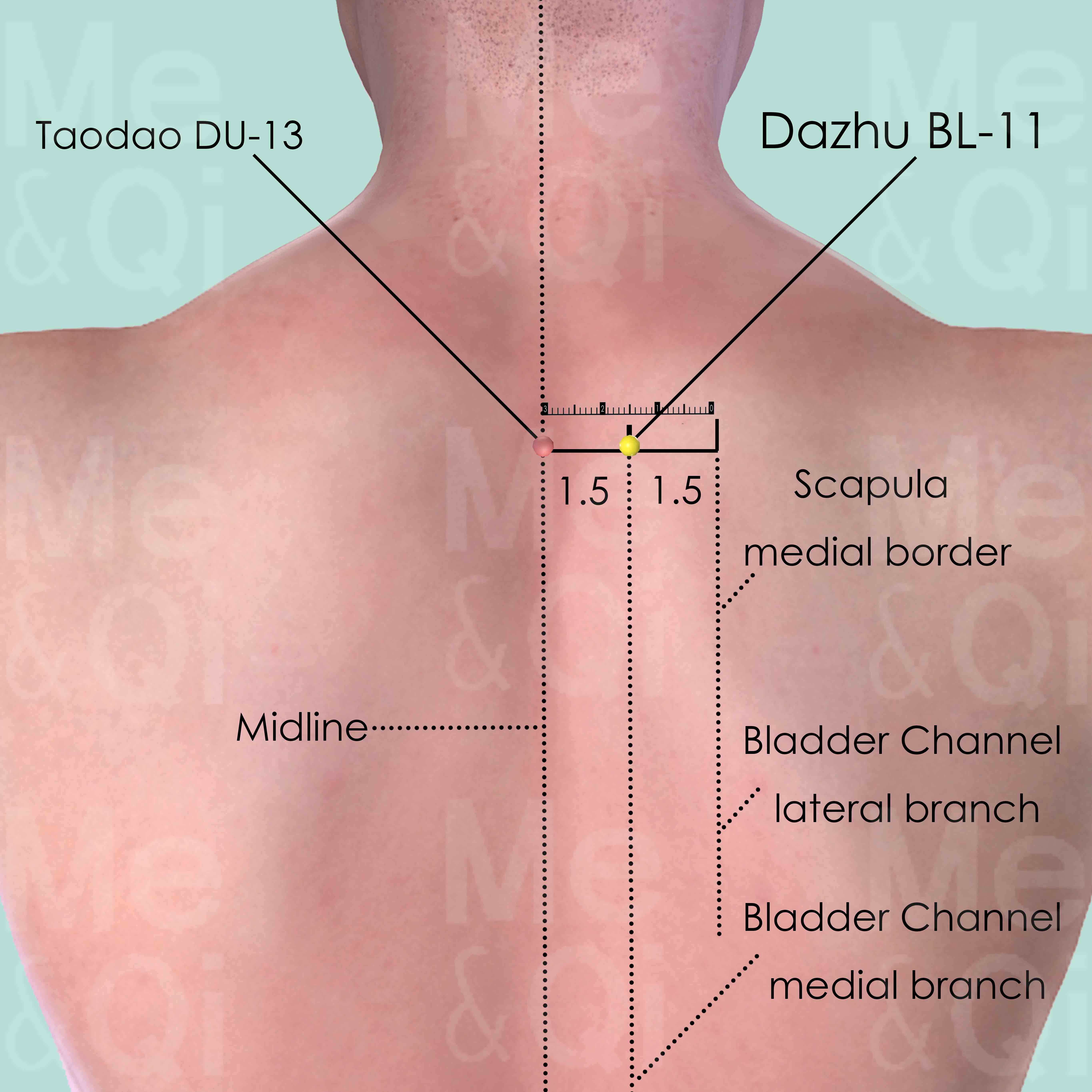
Dazhu BL-11
On the level of the lower border of the spinous process of the 1st thoracic vertebra (T1), 1.5 cun (about 2 finger-breadths) lateral to the posterior midline.
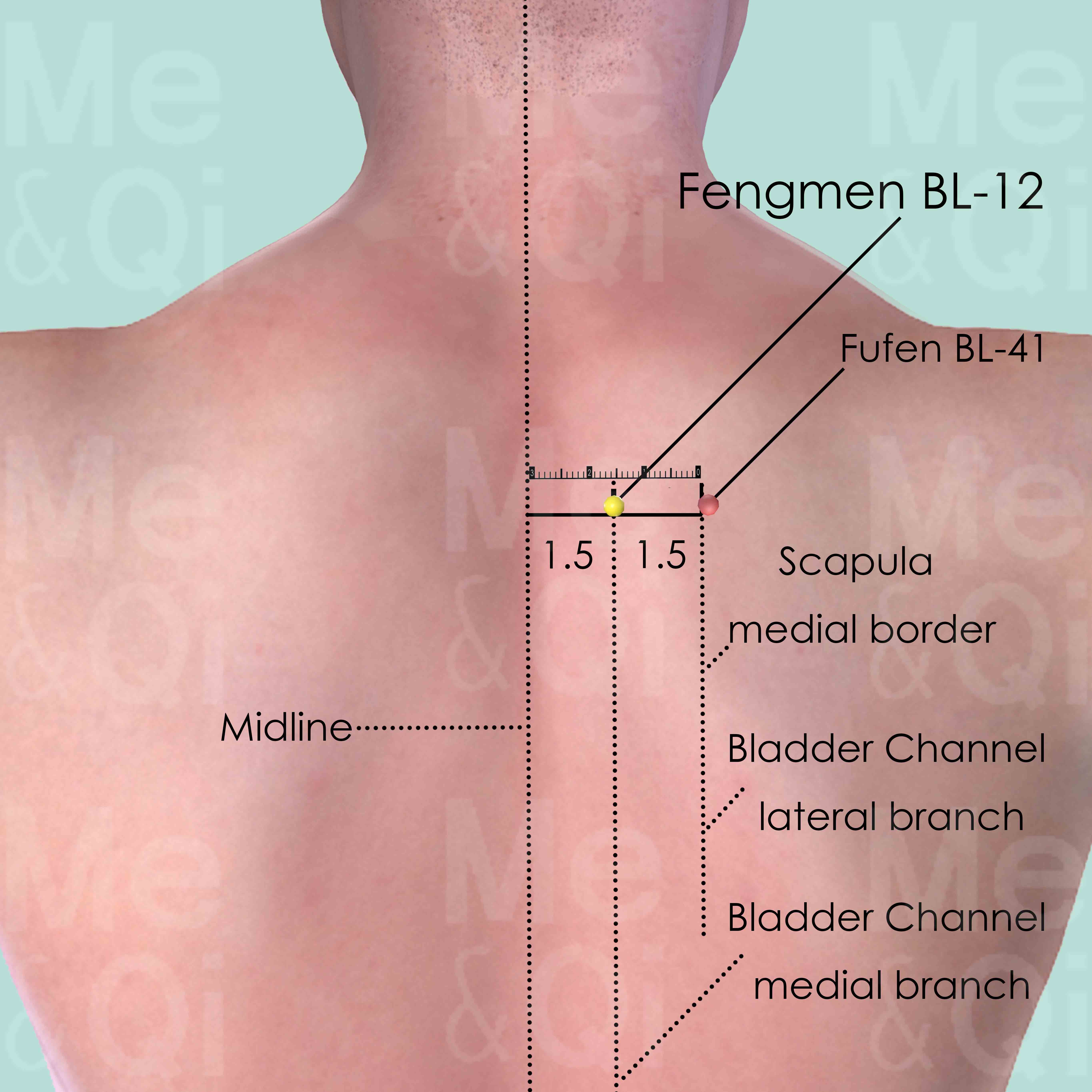
Fengmen BL-12
1.5 cun lateral to the lower border of the spinous process of the 2nd thoracic vertebra (T2).
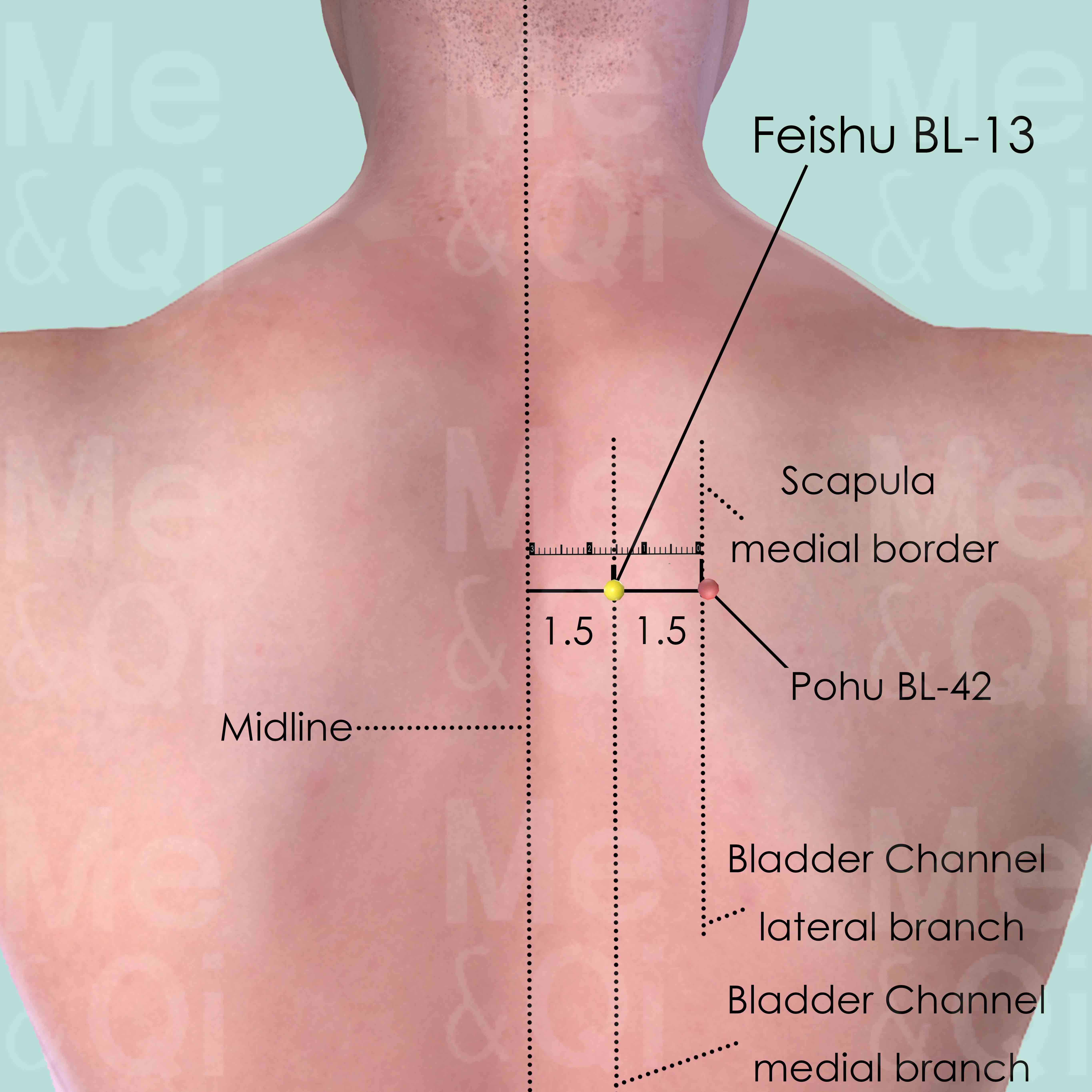
Feishu BL-13
1.5 cun lateral to the lower border of the spinous process of the 3rd thoracic vertebra (T3).
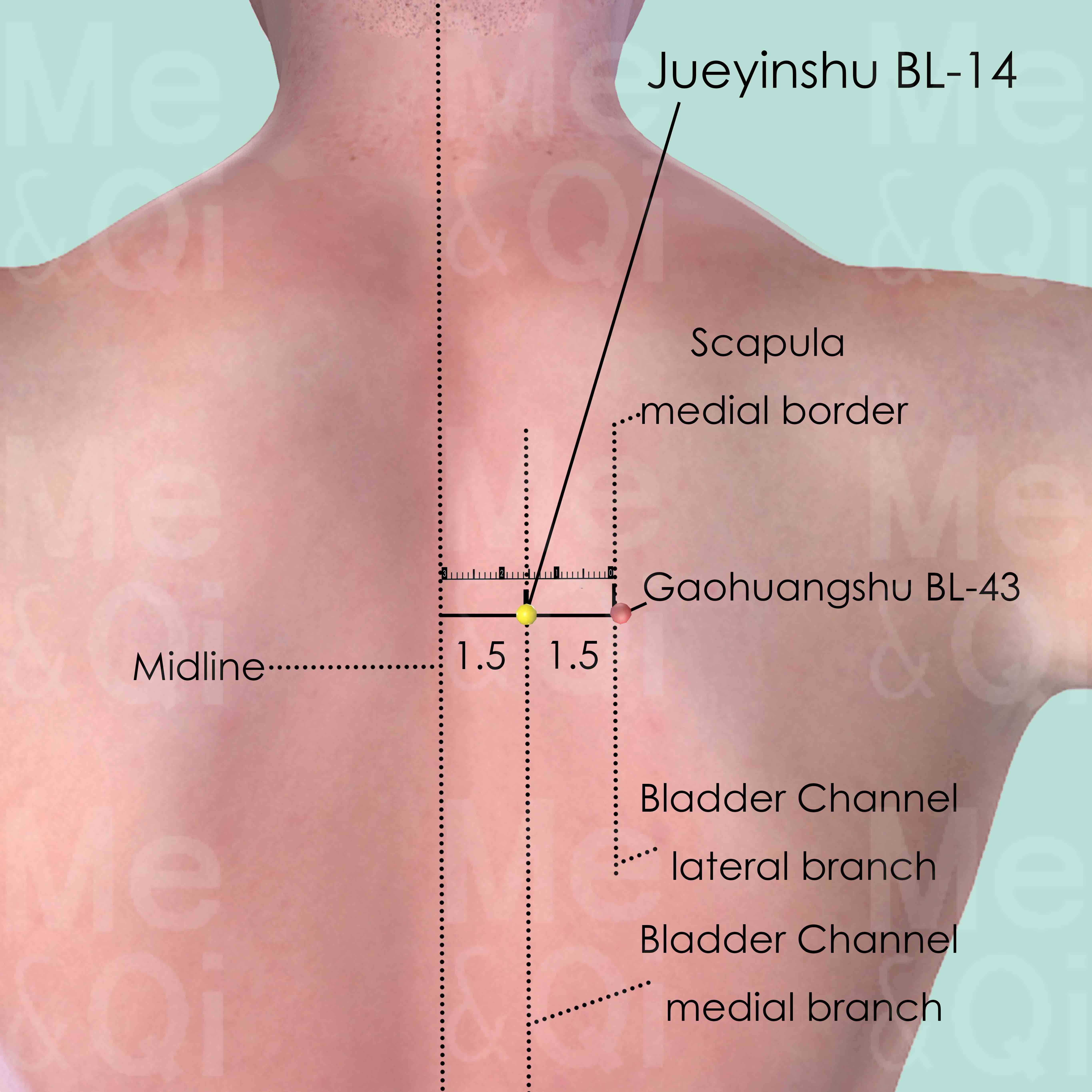
Jueyinshu BL-14
1.5 cun lateral to the lower border of the spinous process of the 4th thoracic vertebra (T4).
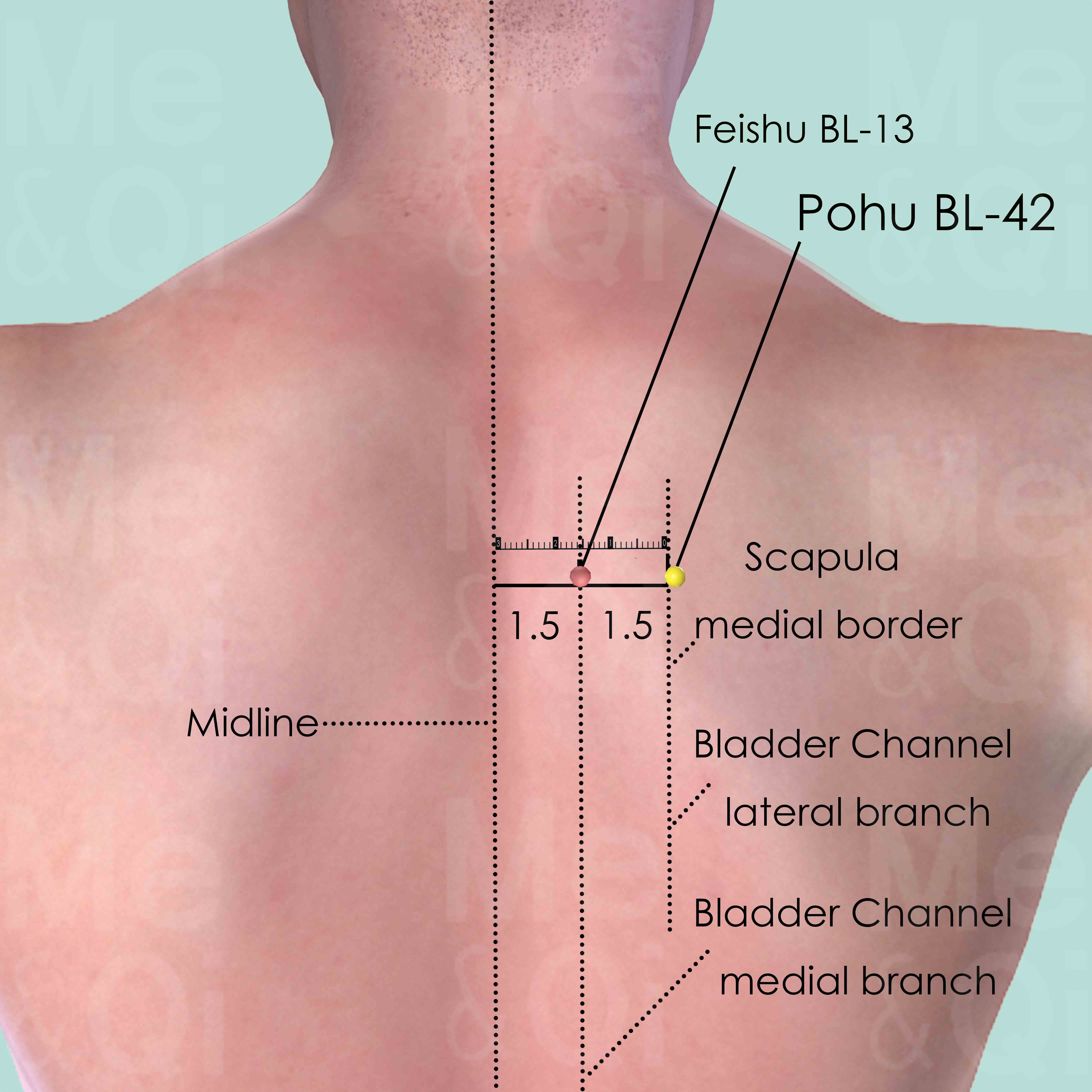
Pohu BL-42
3 cun (about 4 finger-breadths) lateral to the lower border of the spinous process of the 3rd thoracic vertebra (T3).
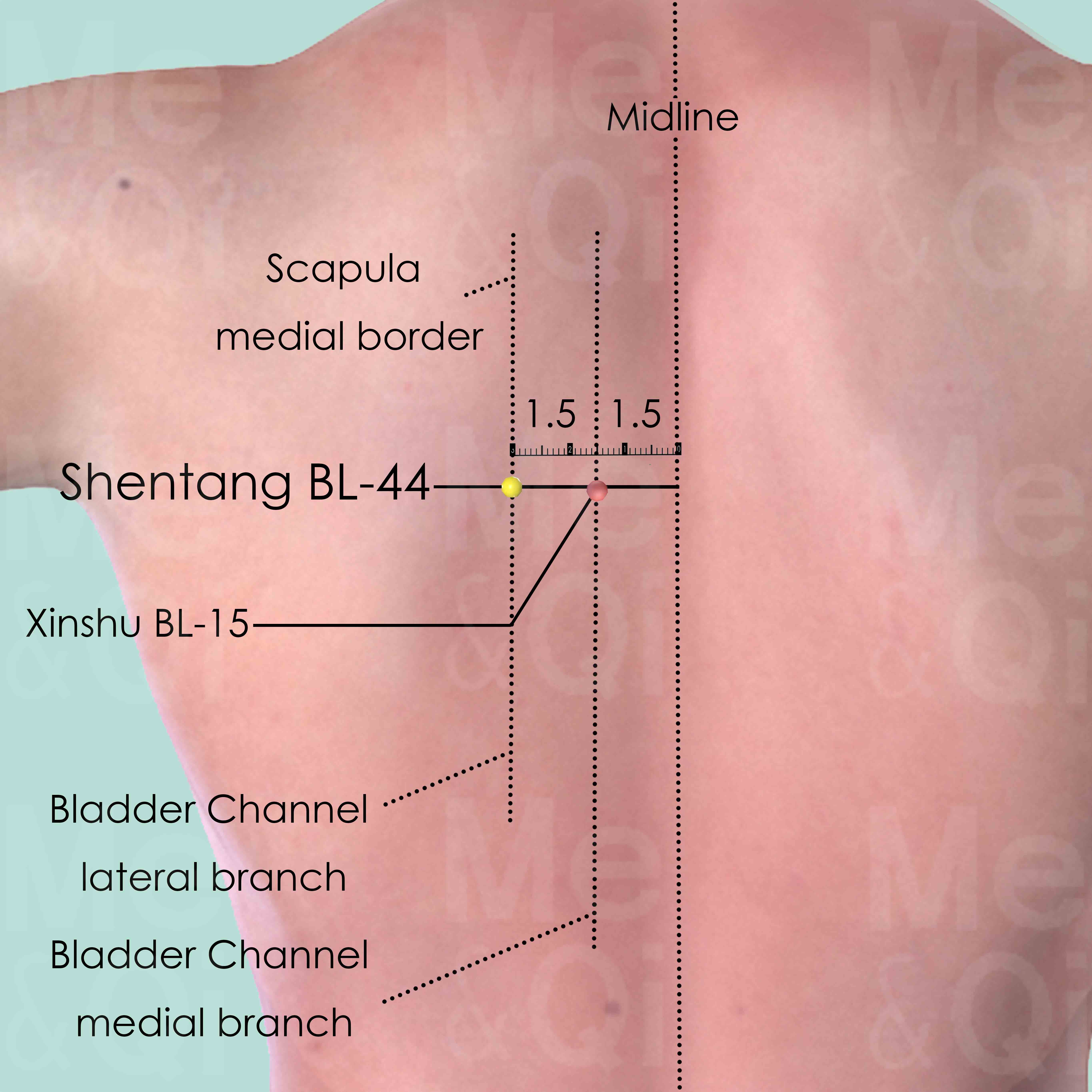
Shentang BL-44
3 cun (about 4 finger-breadths) lateral to the lower border of the spinous process of the 5th thoracic vertebra (T5).
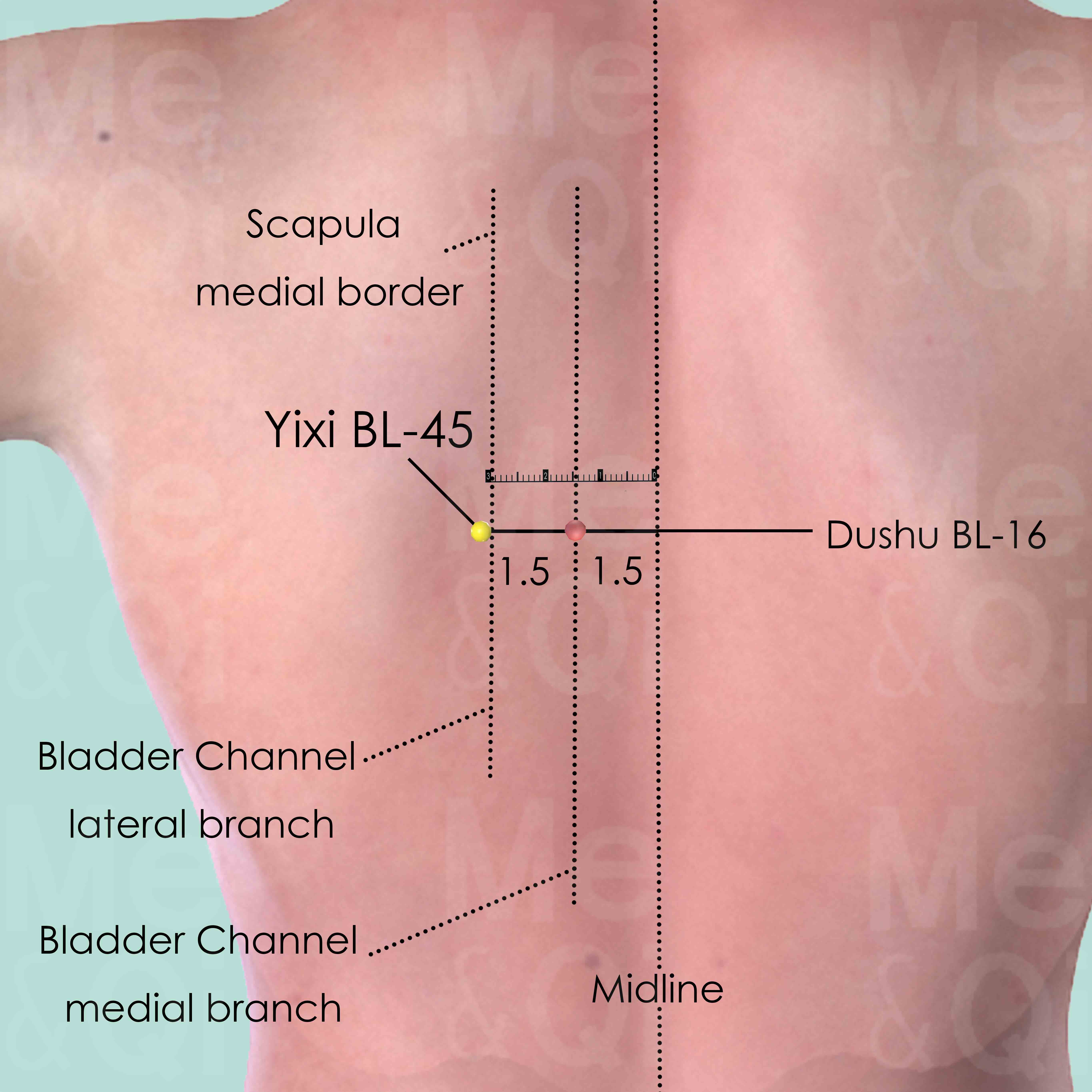
Yixi BL-45
3 cun (about 4 finger-breadths) lateral to the lower border of the spinous process of the 6th thoracic vertebra (T6).
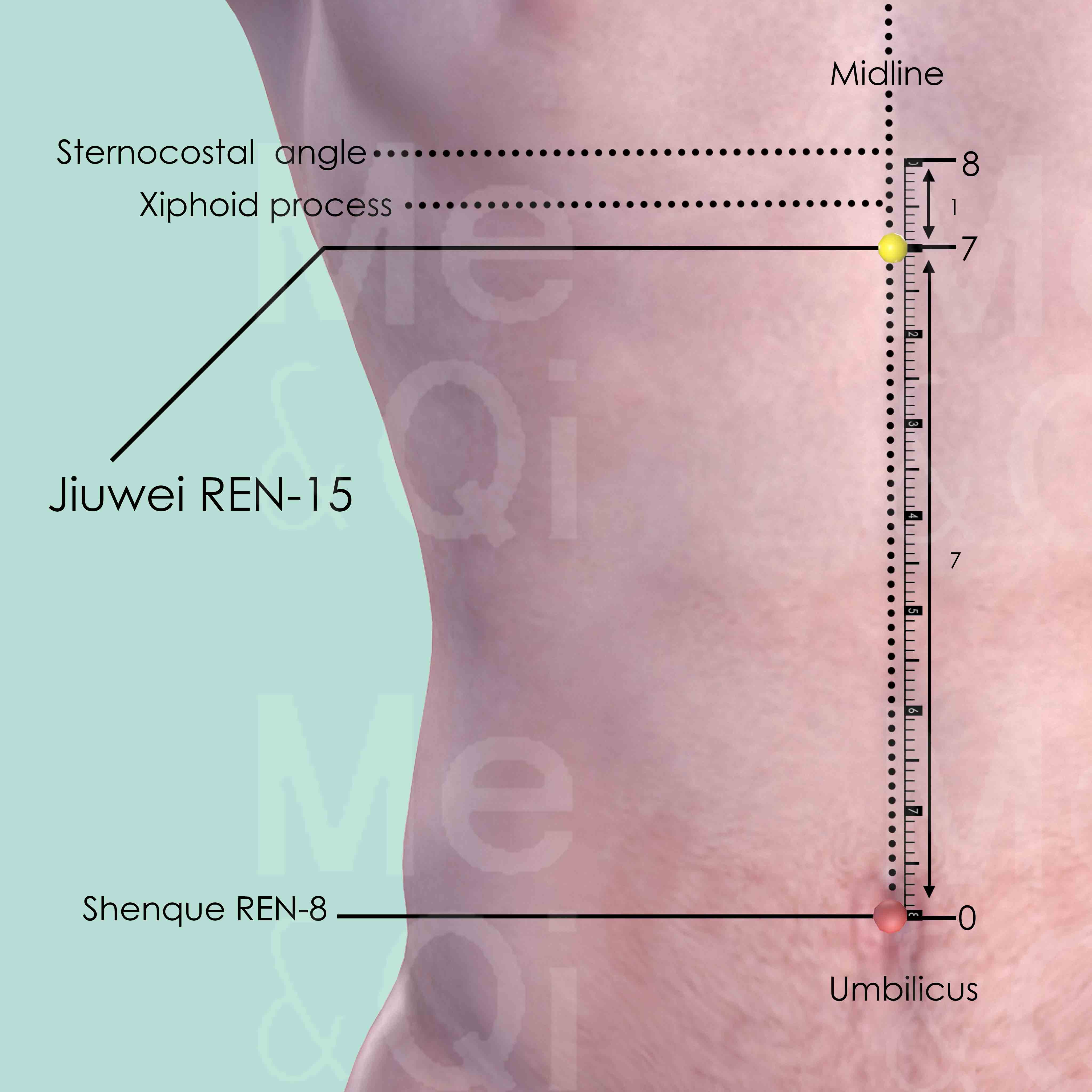
Jiuwei REN-15
On the midline of the abdomen, 7 cun above the umbilicus and 1 cun below the sternocostal angle. This point is located at the tip of the xiphoid process, which is commonly known as ‘dove-tail’ in China, hence the name of the point.
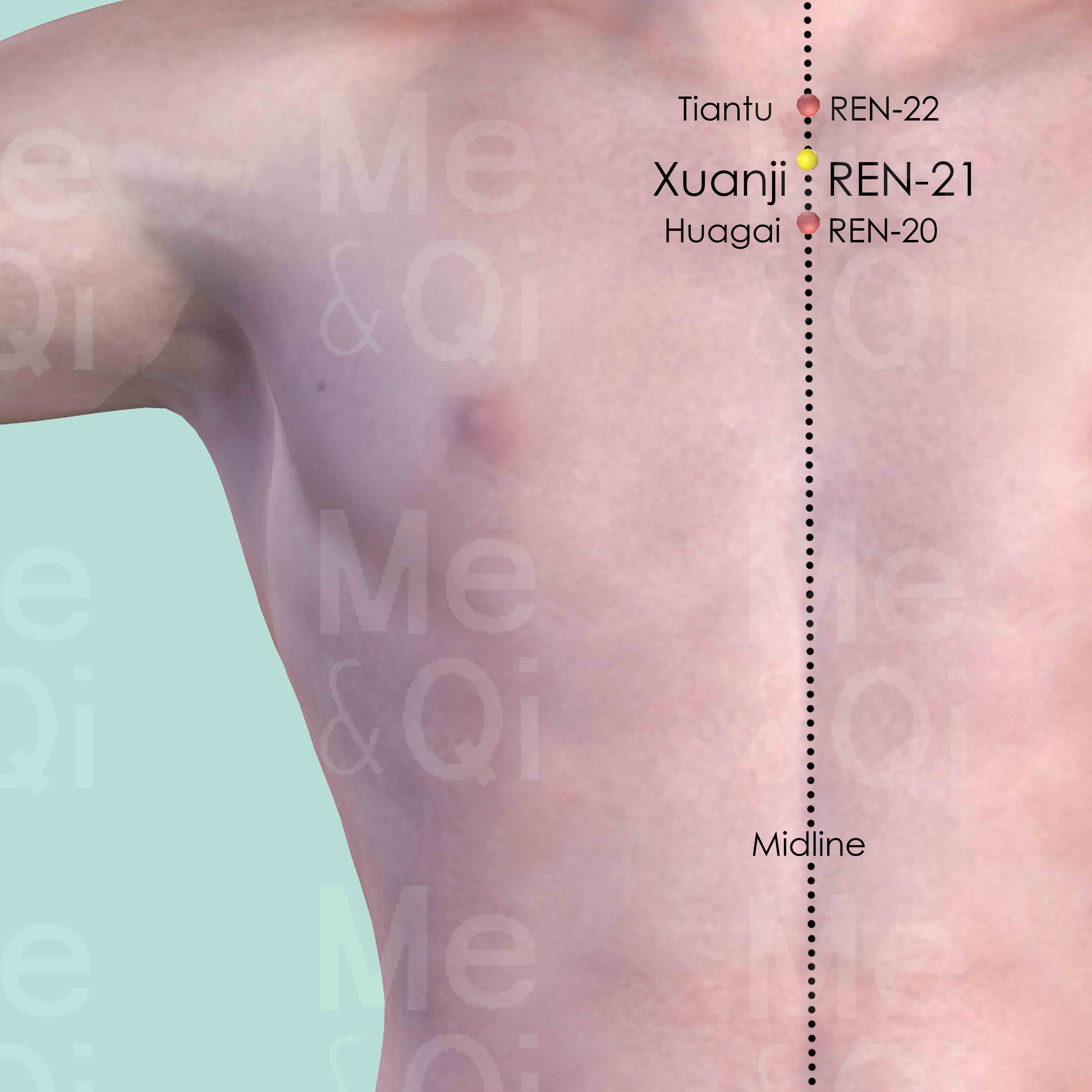
Xuanji REN-21
On the midline of the sternum, below the upper border of the manubrium sterni and midway between Huagai REN-20 and Tiantu REN-22.
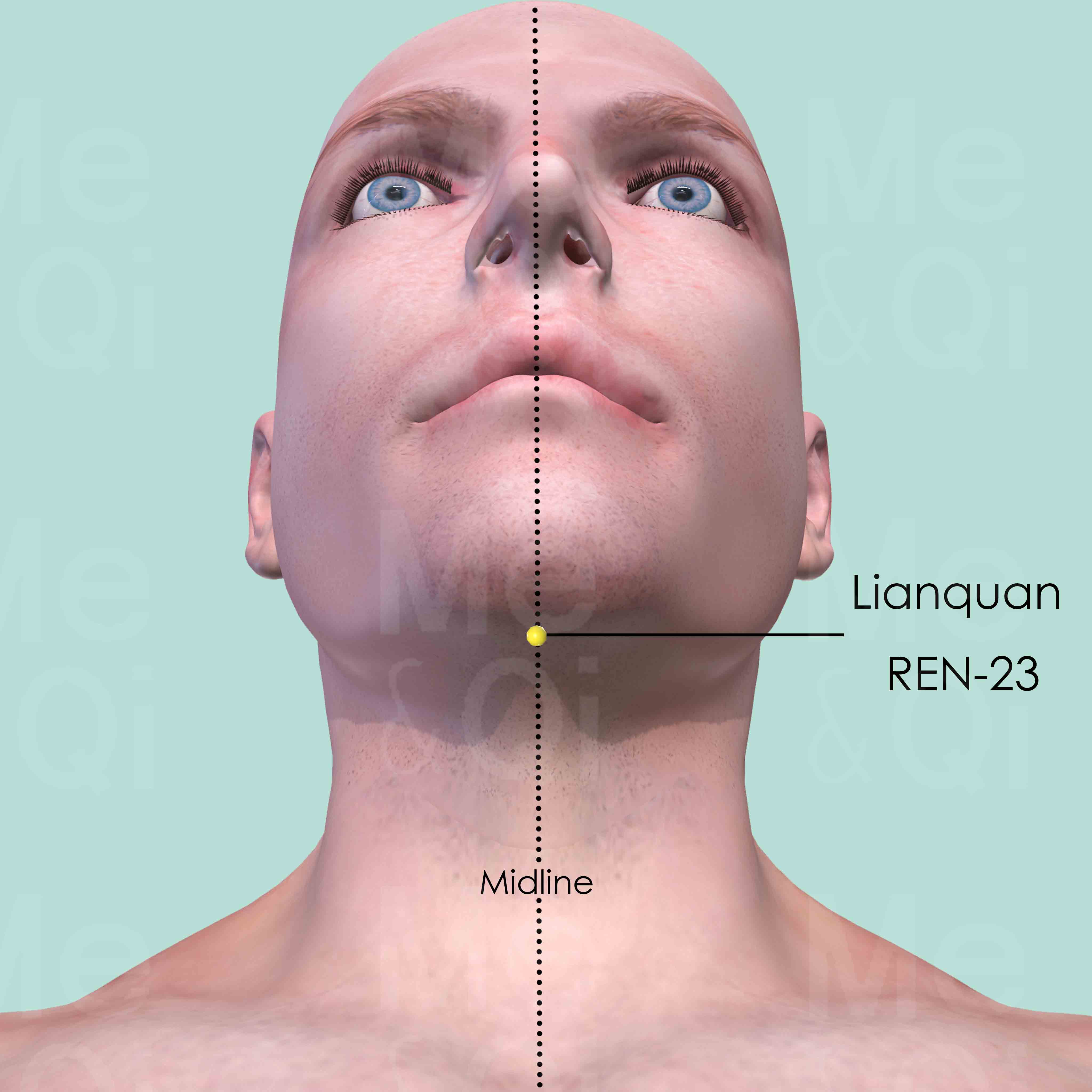
Lianquan REN-23
On the anterior midline of the neck, above the Adm's apple, in the depression at the upper border of the hyoid bone.
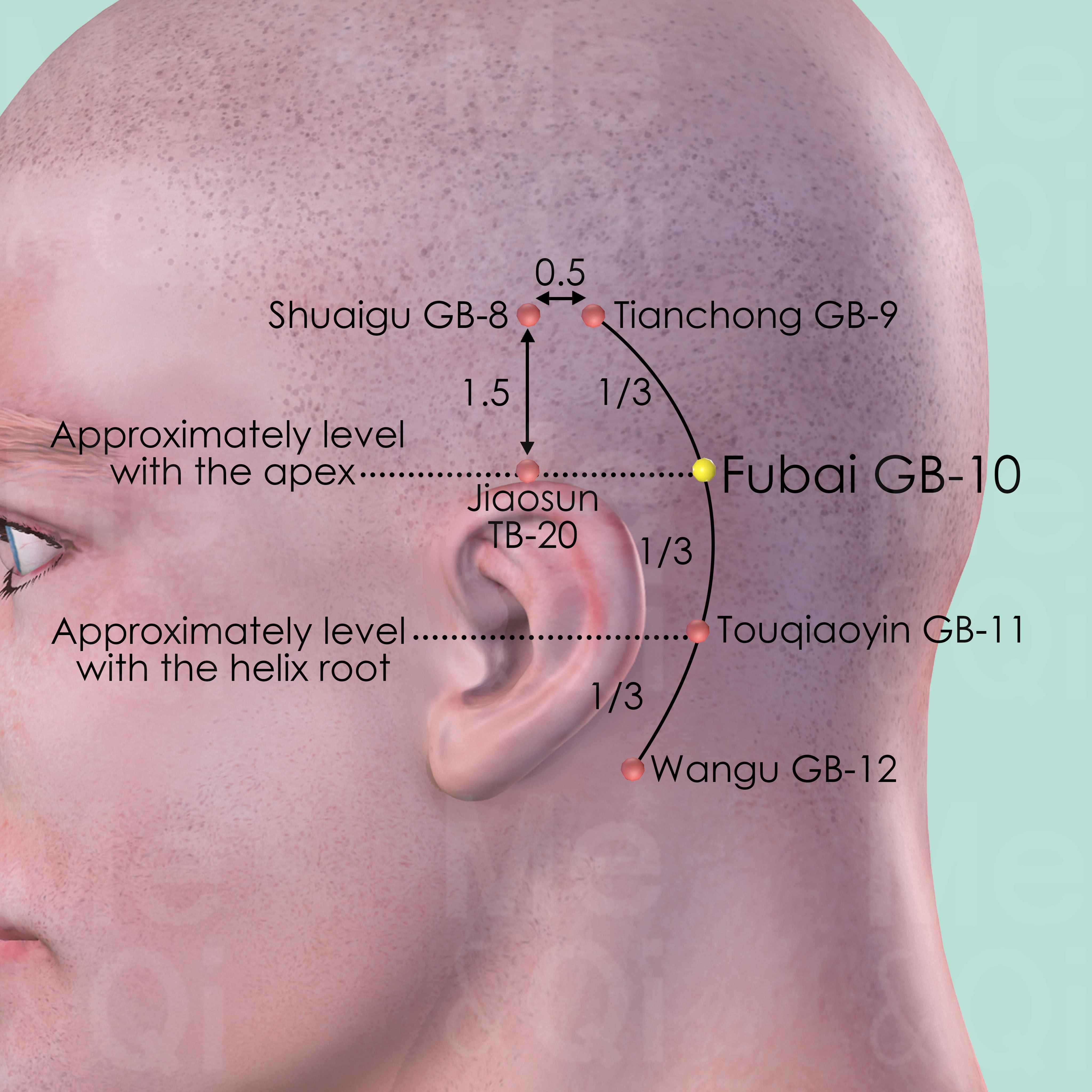
Fubai GB-10
Posterior and superior to the mastoid process, at the junction of the upper third and the two lower thirds of the curved line connecting Tianchong GB-9 and Wangu GB-12.
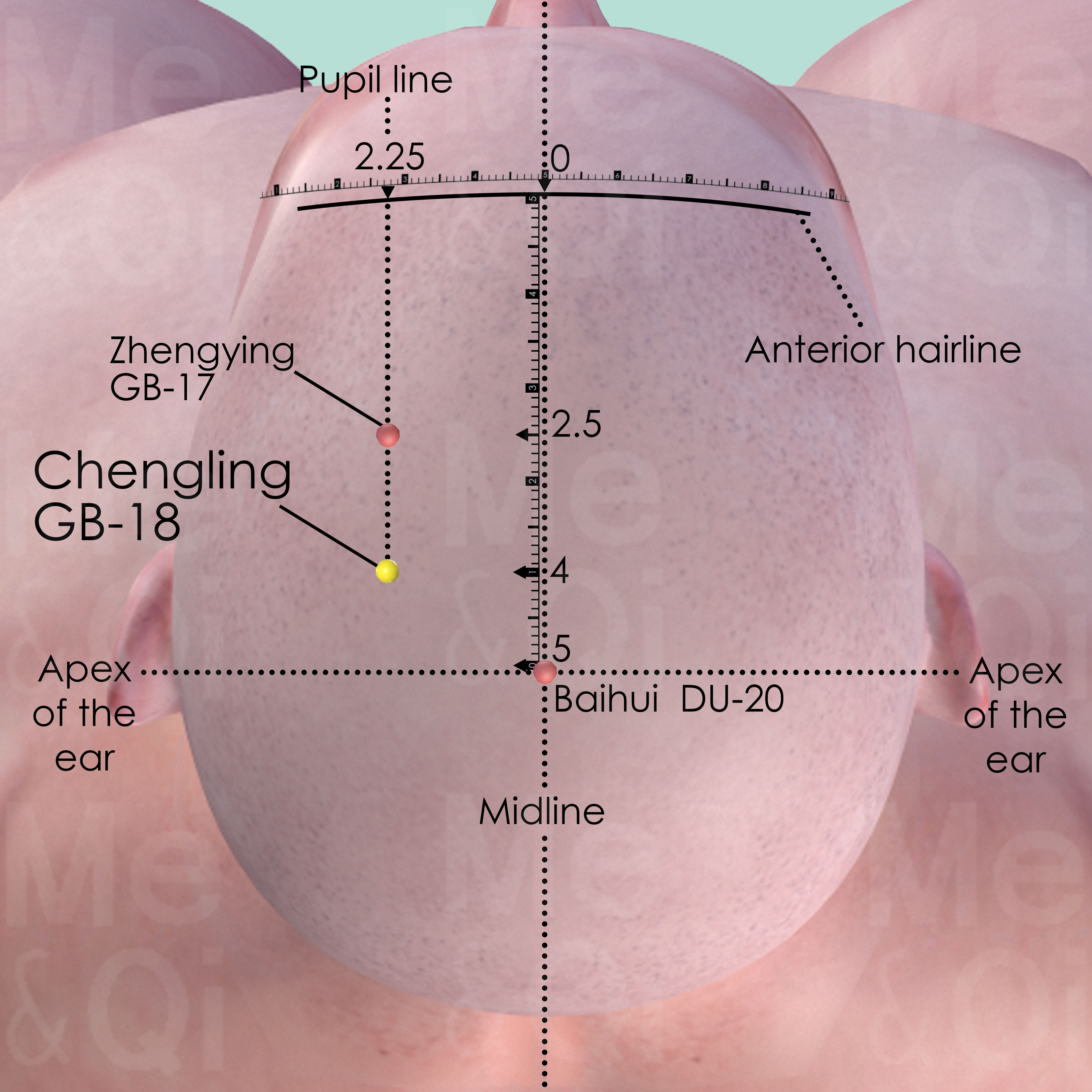
Chengling GB-18
1.5 cun posterior to Zhengying GB-17 or 4 cun posterior to the anterior hairline. Or 1 cun anterior and 2.25 cun lateral to Baihui DU-20, which is at the vertex of the head.
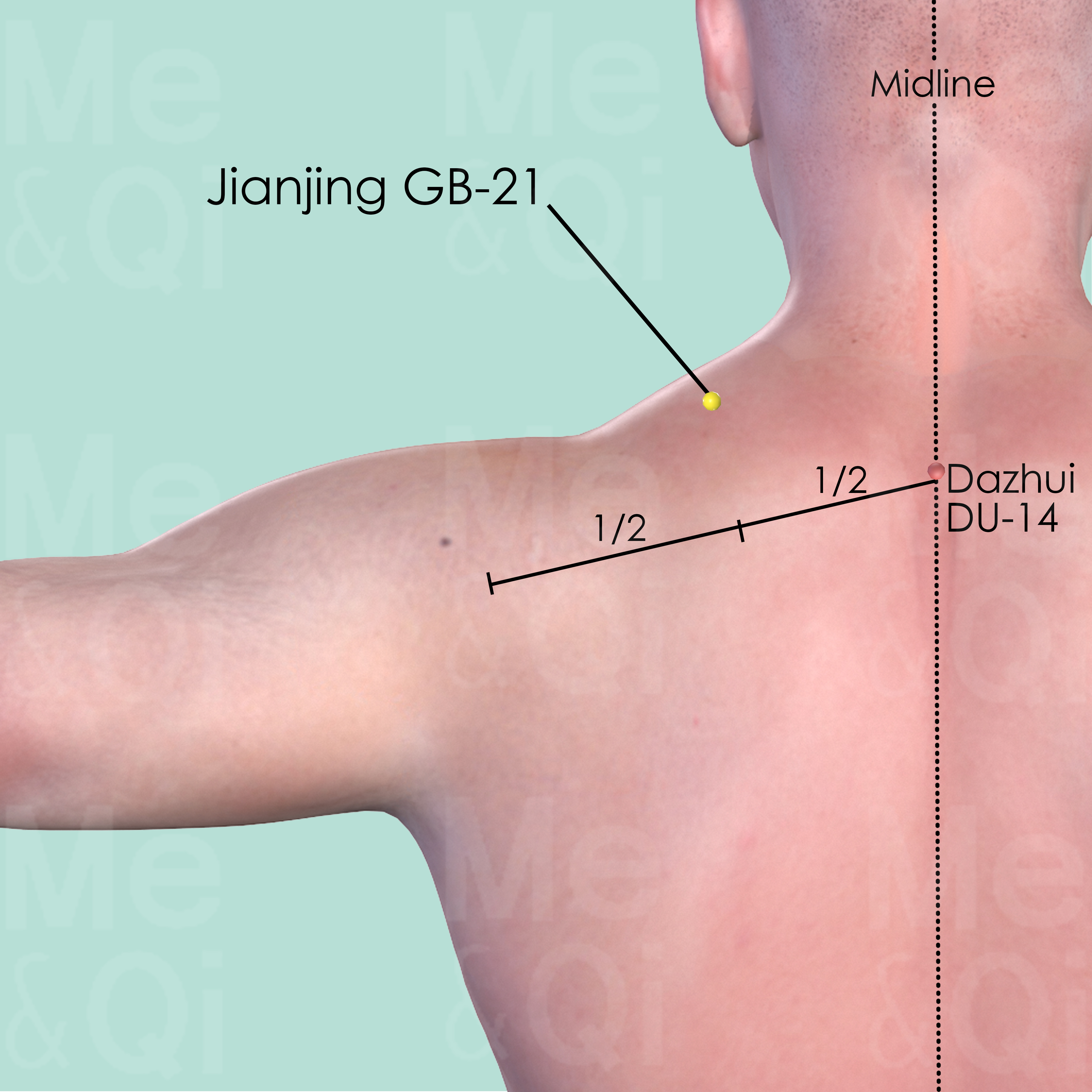
Jianjing GB-21
Midway between Dazhui DU-14 and the lateral extremity of the acromion, at the highest point of the shoulder.
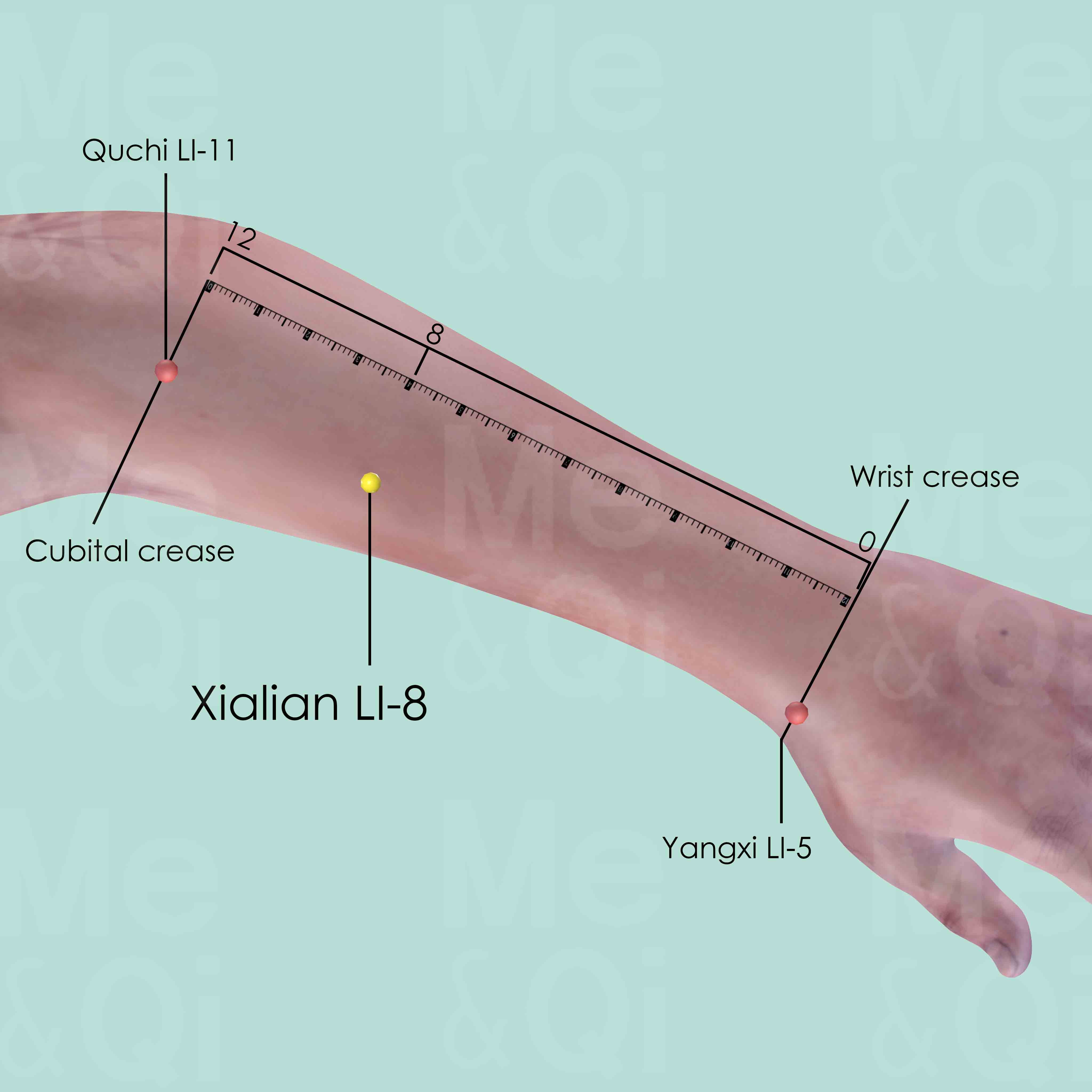
Xialian LI-8
When a fist is made, with the ulnar side downward and elbow flexed, the point is 4 cun distal to Quchi LI-11 of the line joining Yangxi LI-5 and Quchi LI-11.
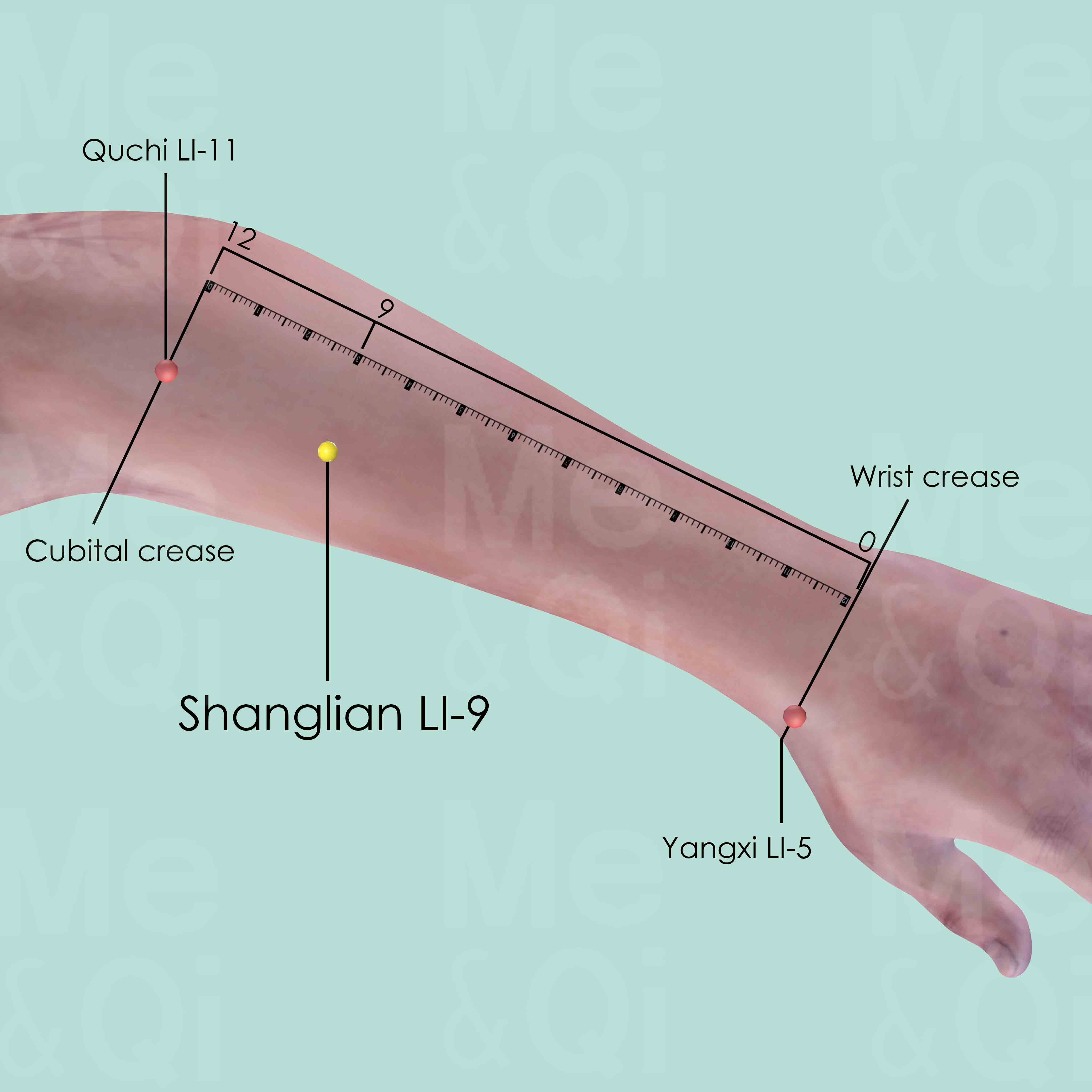
Shanglian LI-9
When a fist is made, with the ulnar side downward and elbow flexed, the point is 3 cun distal to Quchi LI-11 of the line joining Yangxi LI-5 and Quchi LI-11.
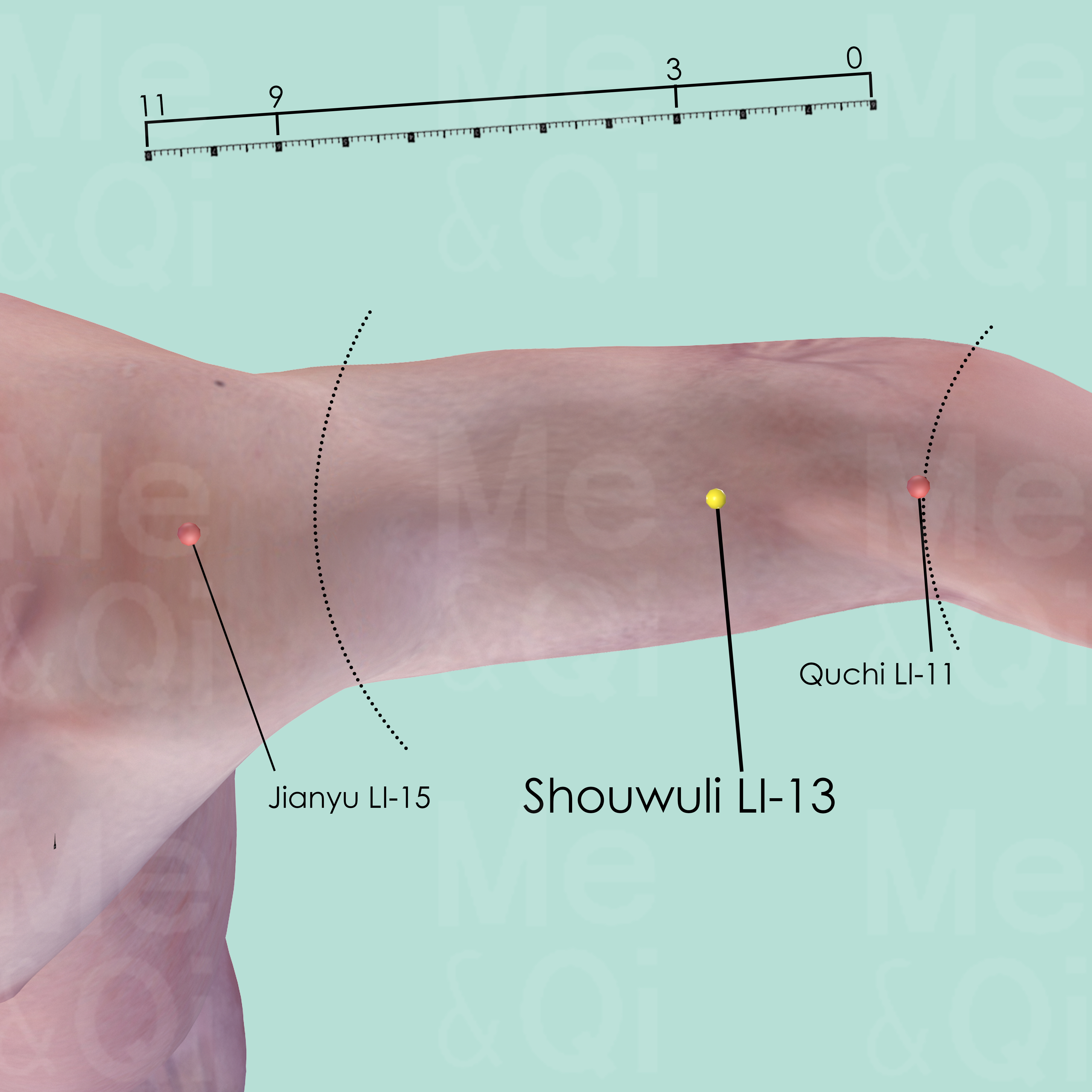
Shouwuli LI-13
Superior to the lateral epicondyle of the humerus, 3 cun above Quchi LI-11, on the line connecting Quchi LI-11 and Jianyu LI-15.
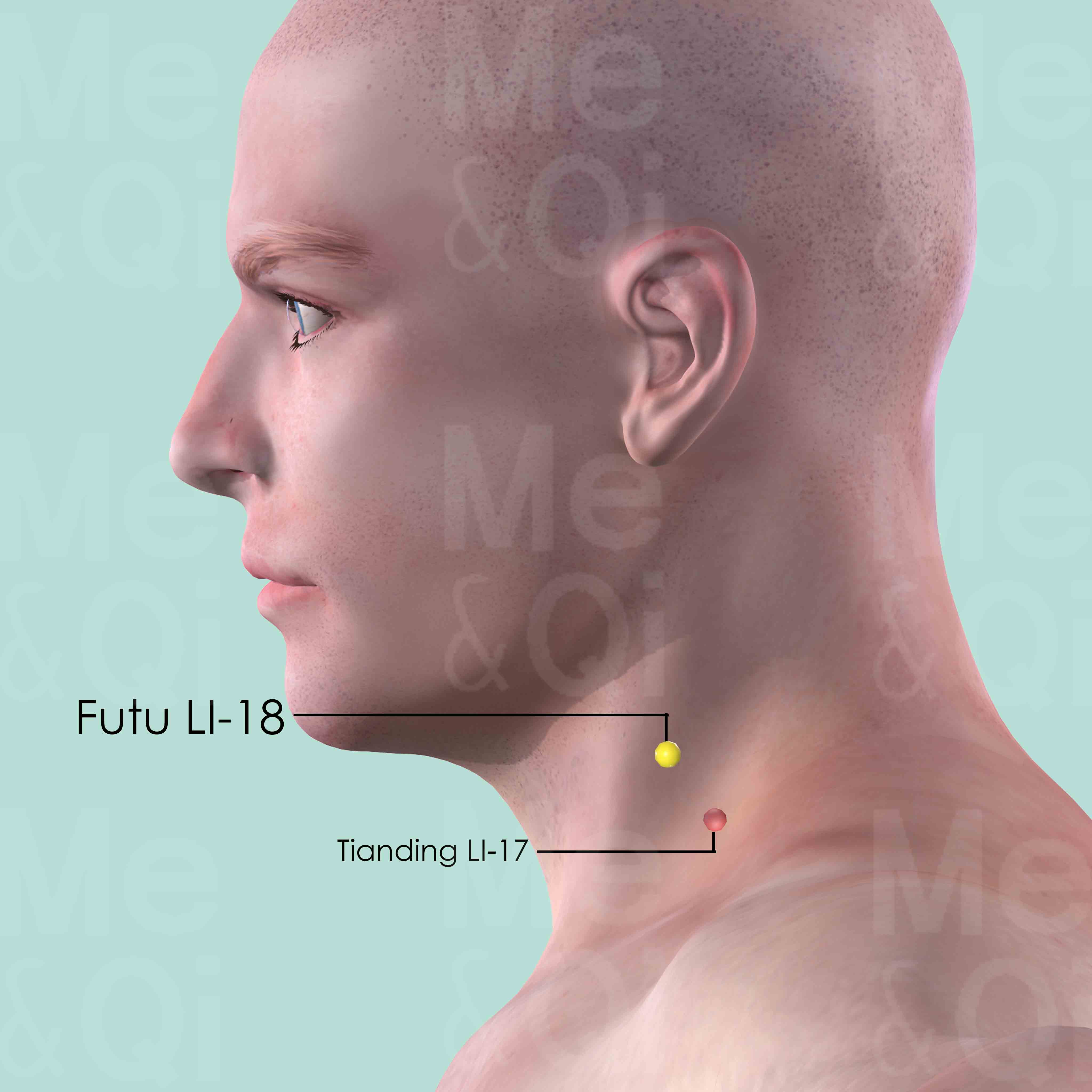
Futu LI-18
On the lateral side of the neck, level with the tip of Adam's apple, between the sternal head and clavicular head of sternocleidomastoid muscle.
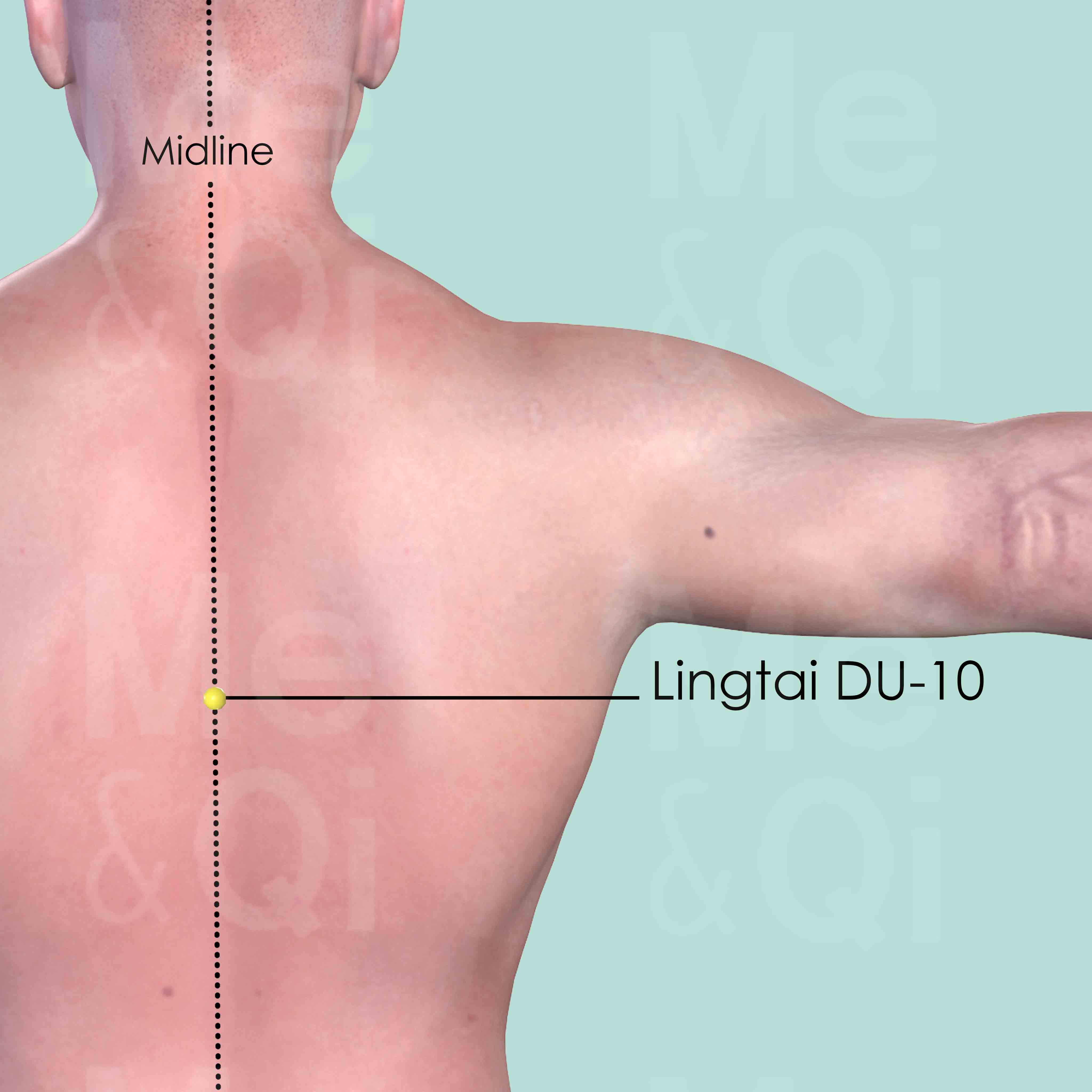
Lingtai DU-10
On the back midline, in the depression below the spinous process of the 6th thoracic vertebra (T6).
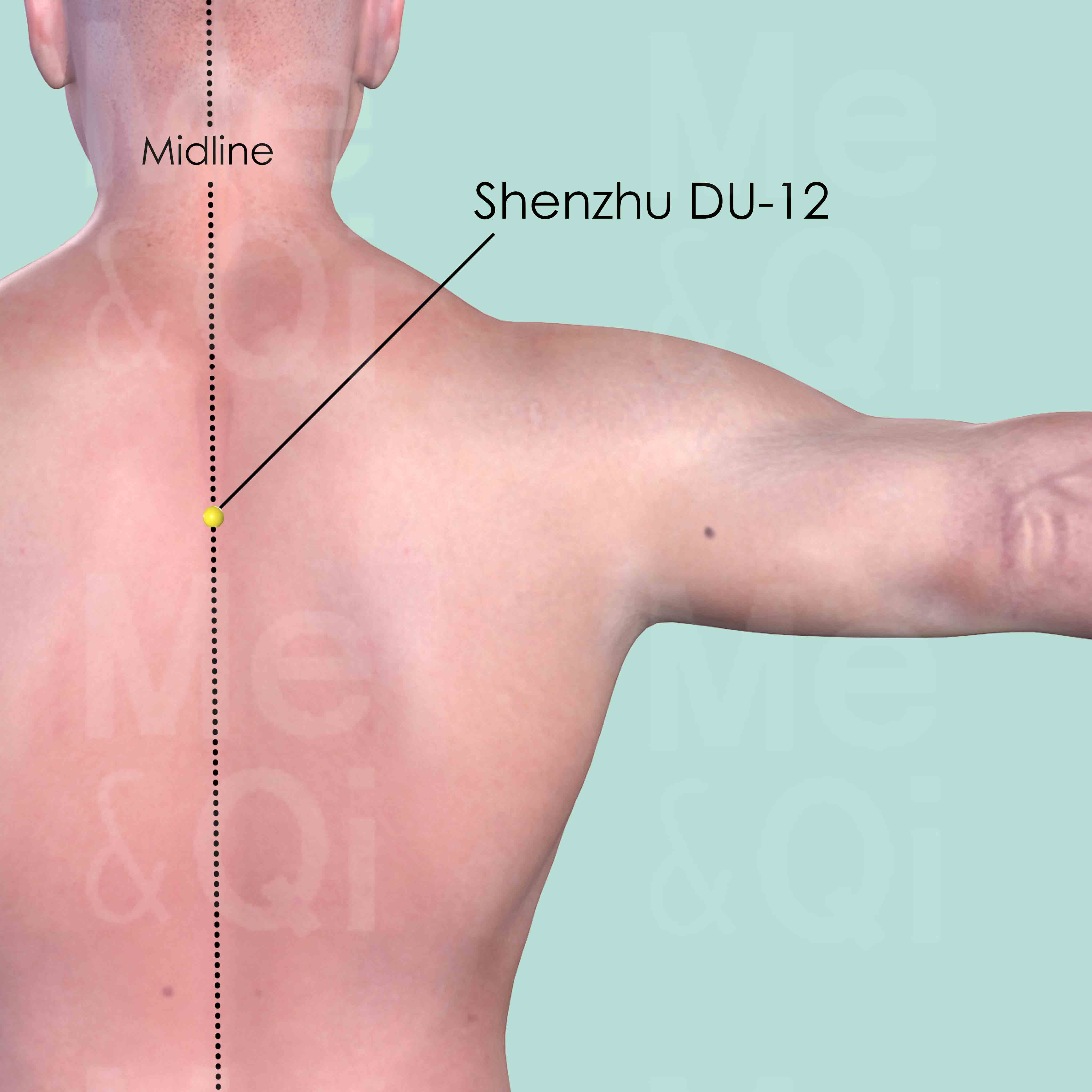
Shenzhu DU-12
On the back midline, in the depression below the spinous process of the 3th thoracic vertebra (T3).
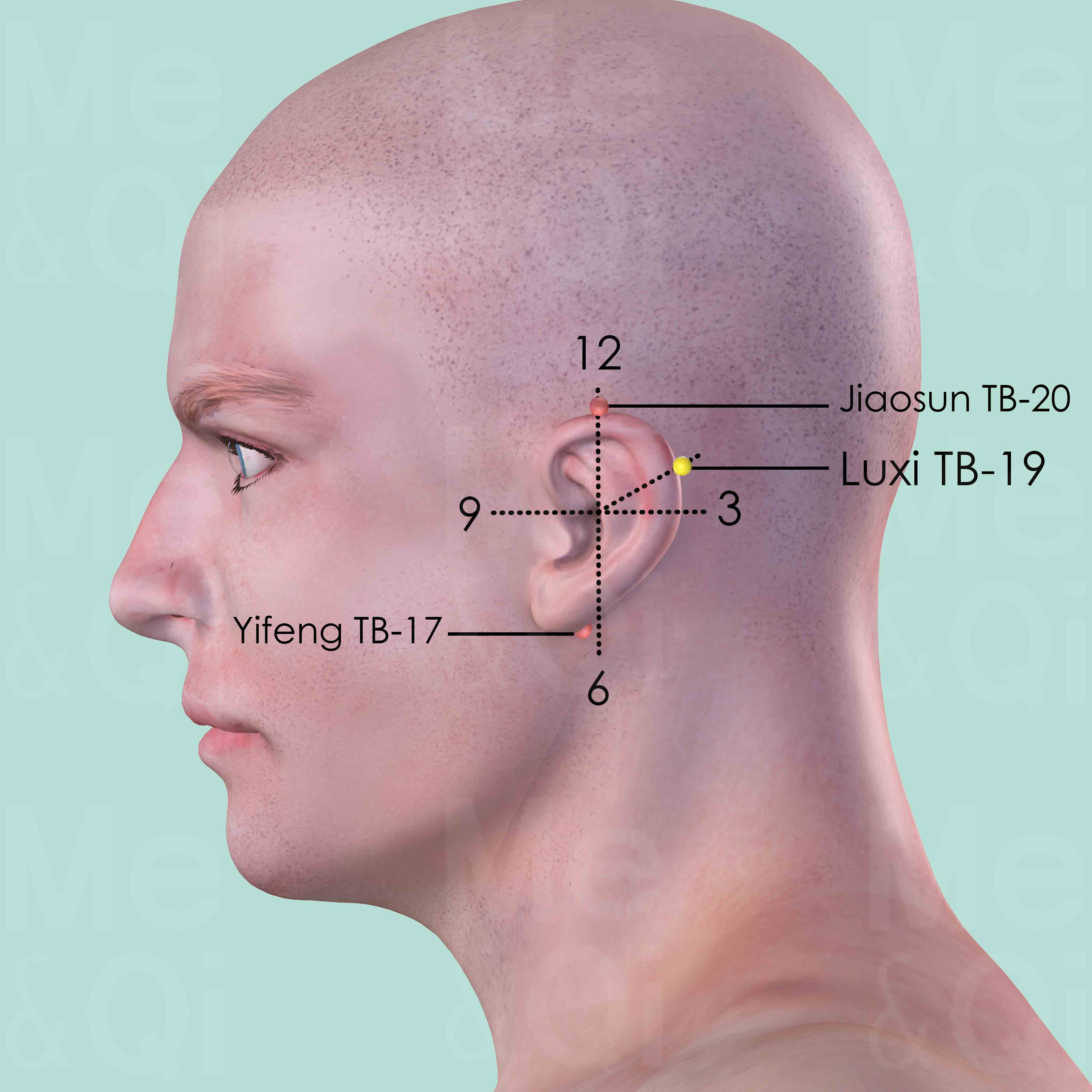
Luxi TB-19
Posterior to the ear, at the junction of the upper and middle third of the curve formed by Yifeng ST-17 and Jiaosun ST-20 behind the helix.
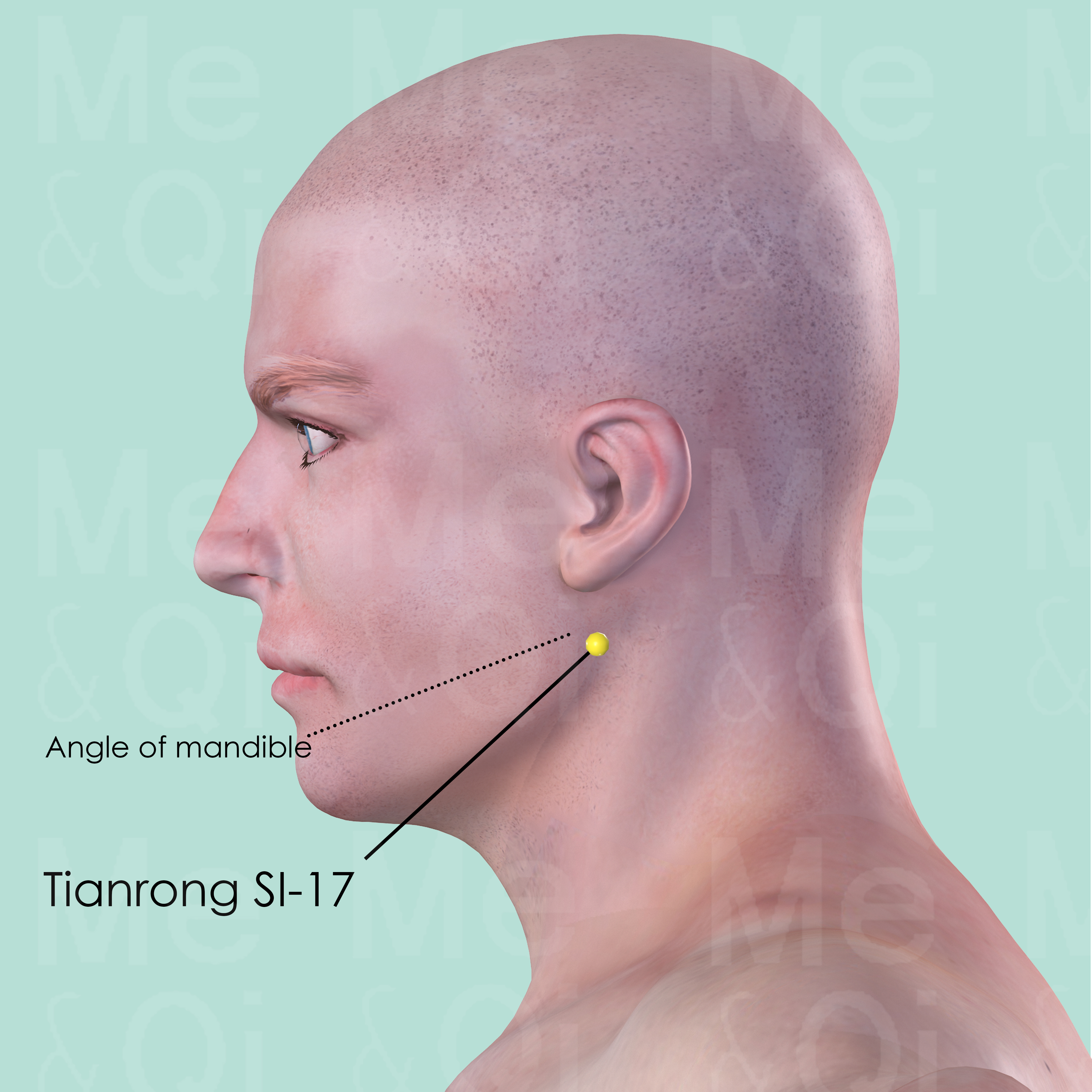
Tianrong SI-17
Posterior to the angle of mandible, in the depression on the anterior border of sternocleidomastoid muscle.
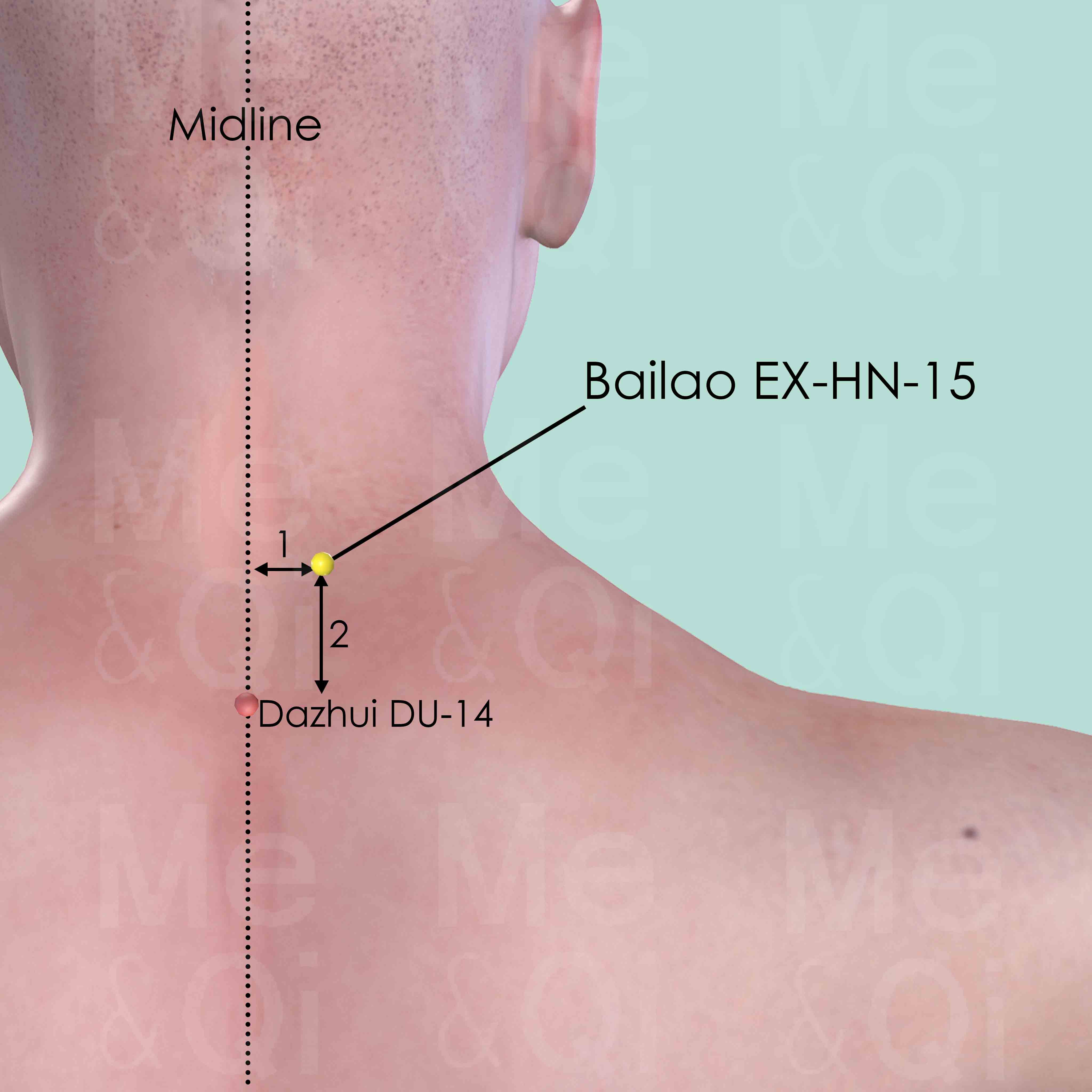
Bailao EX-HN-15
2 cun above the lower border of the spinous process of the 7th cervical vertebra (C7) and 1 cun lateral to the midline.
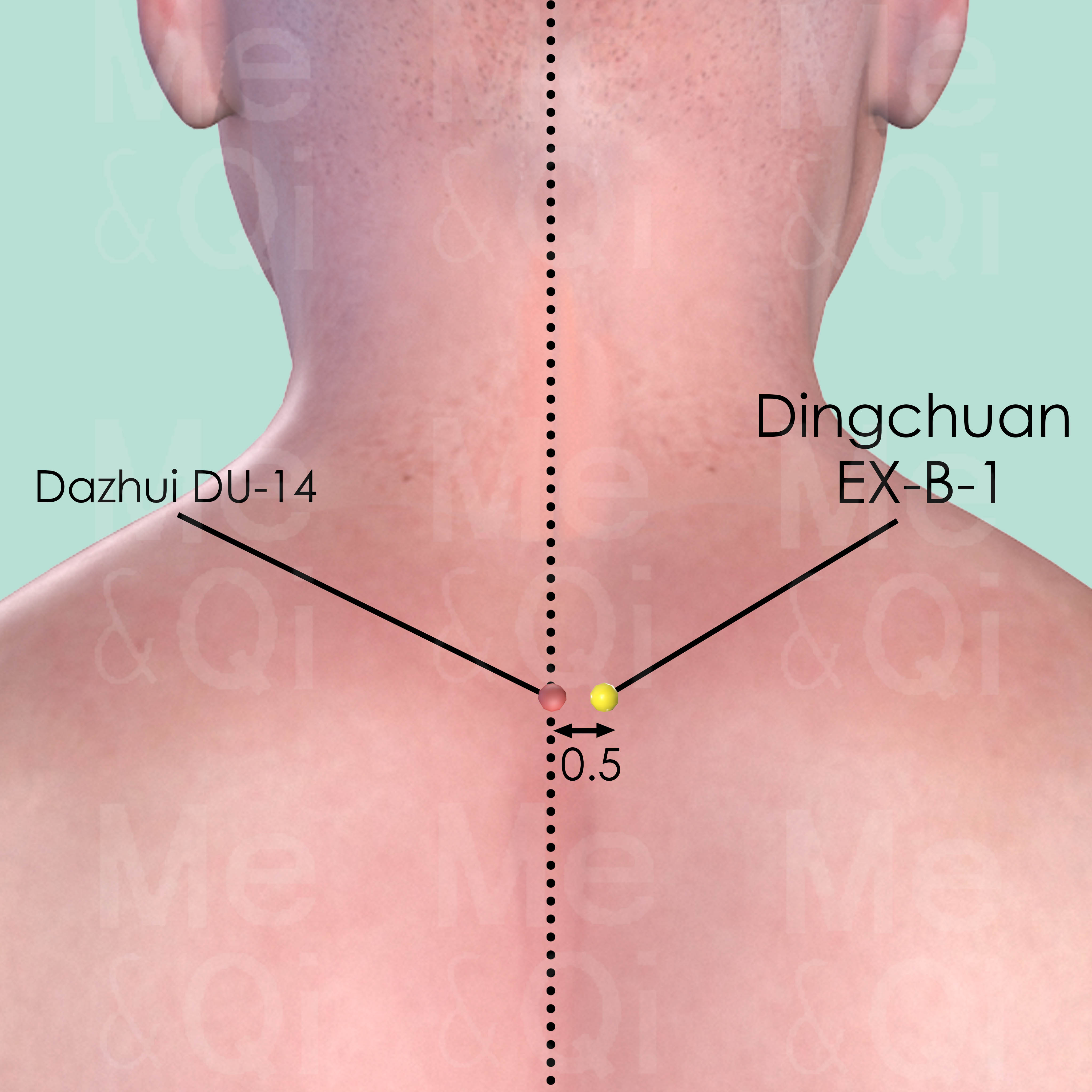
Dingchuan EX-B-1
0.5 cun lateral to the lower border of the spinous process of the 7th cervical vertebra (C7).

